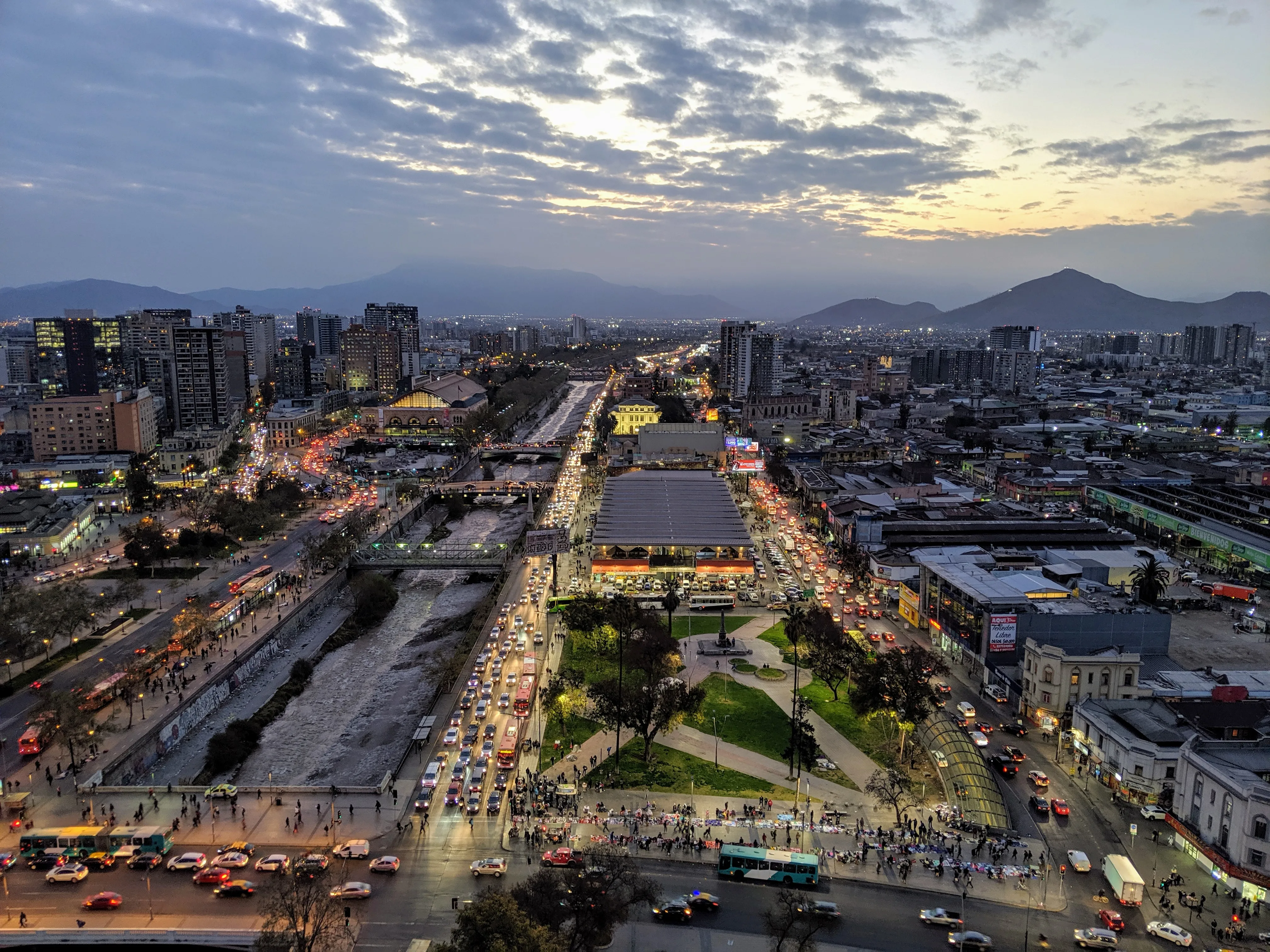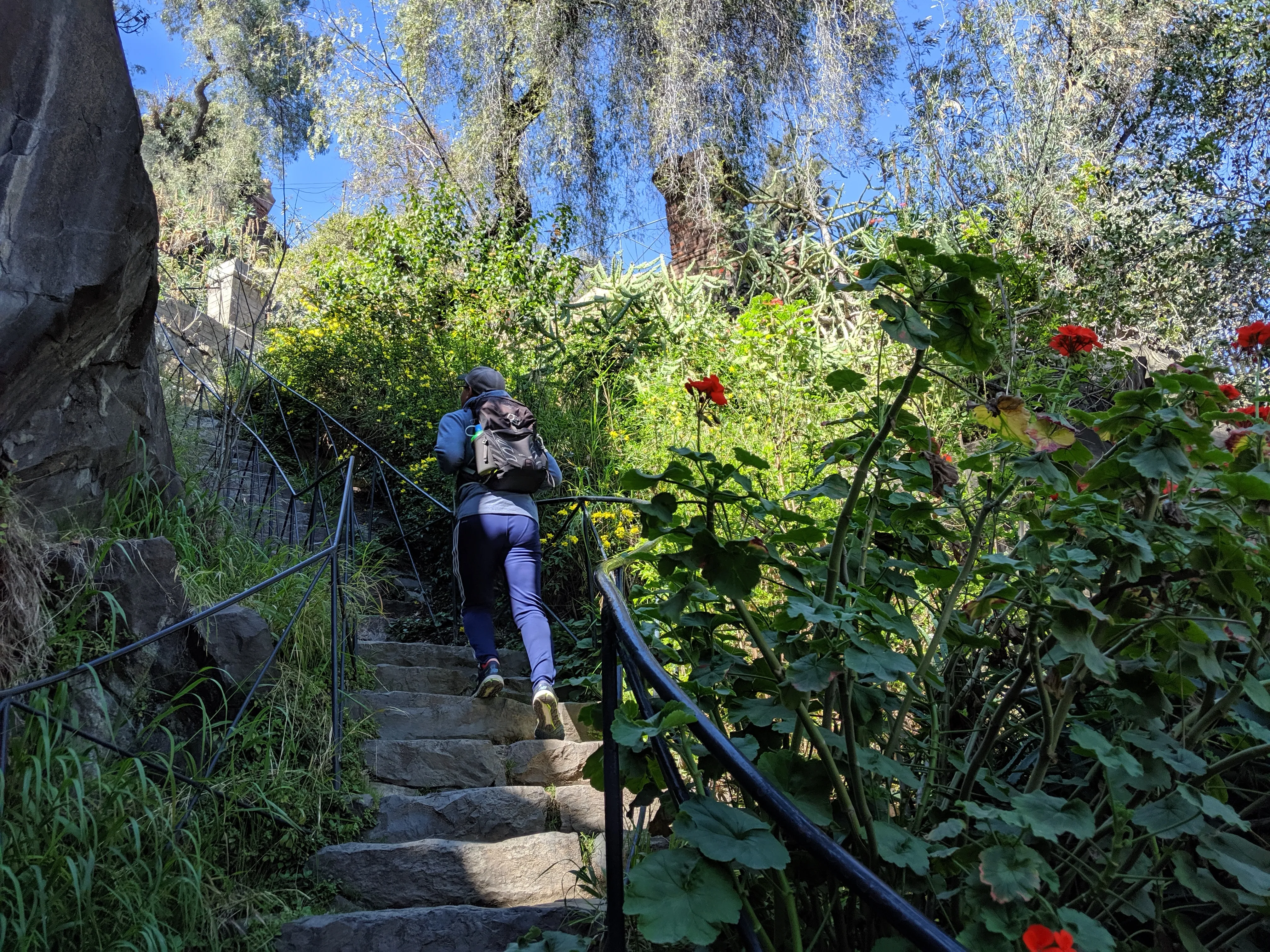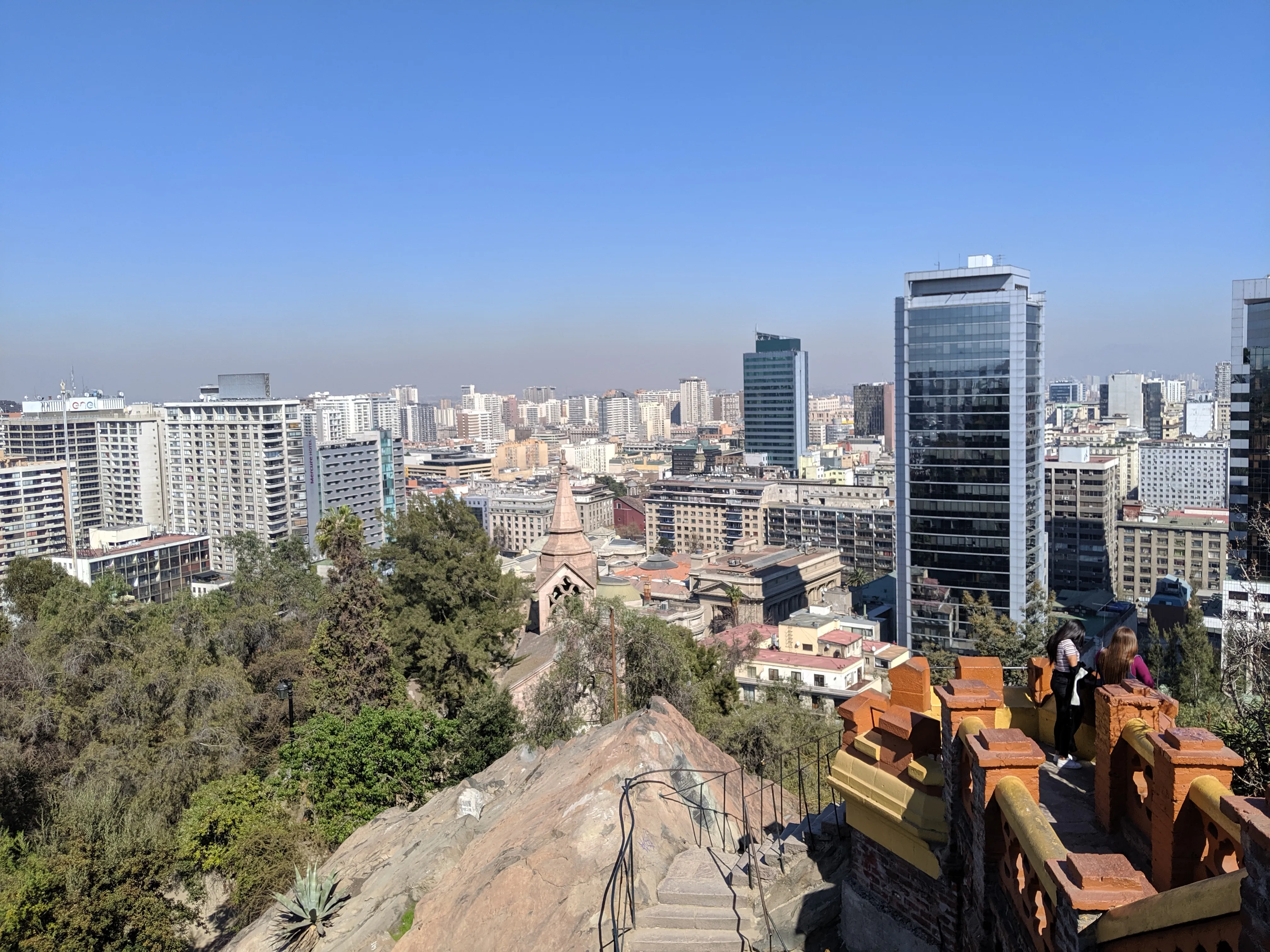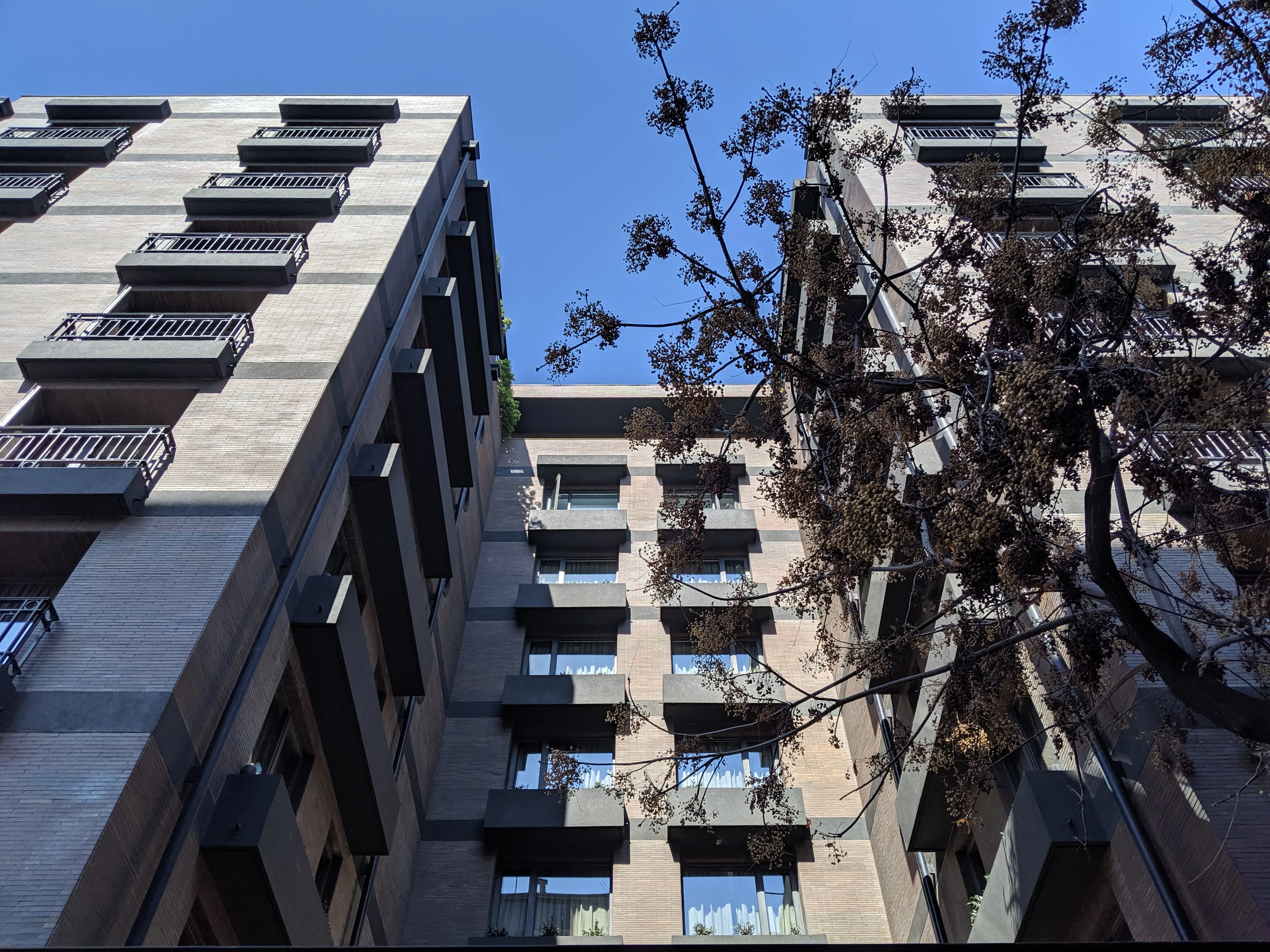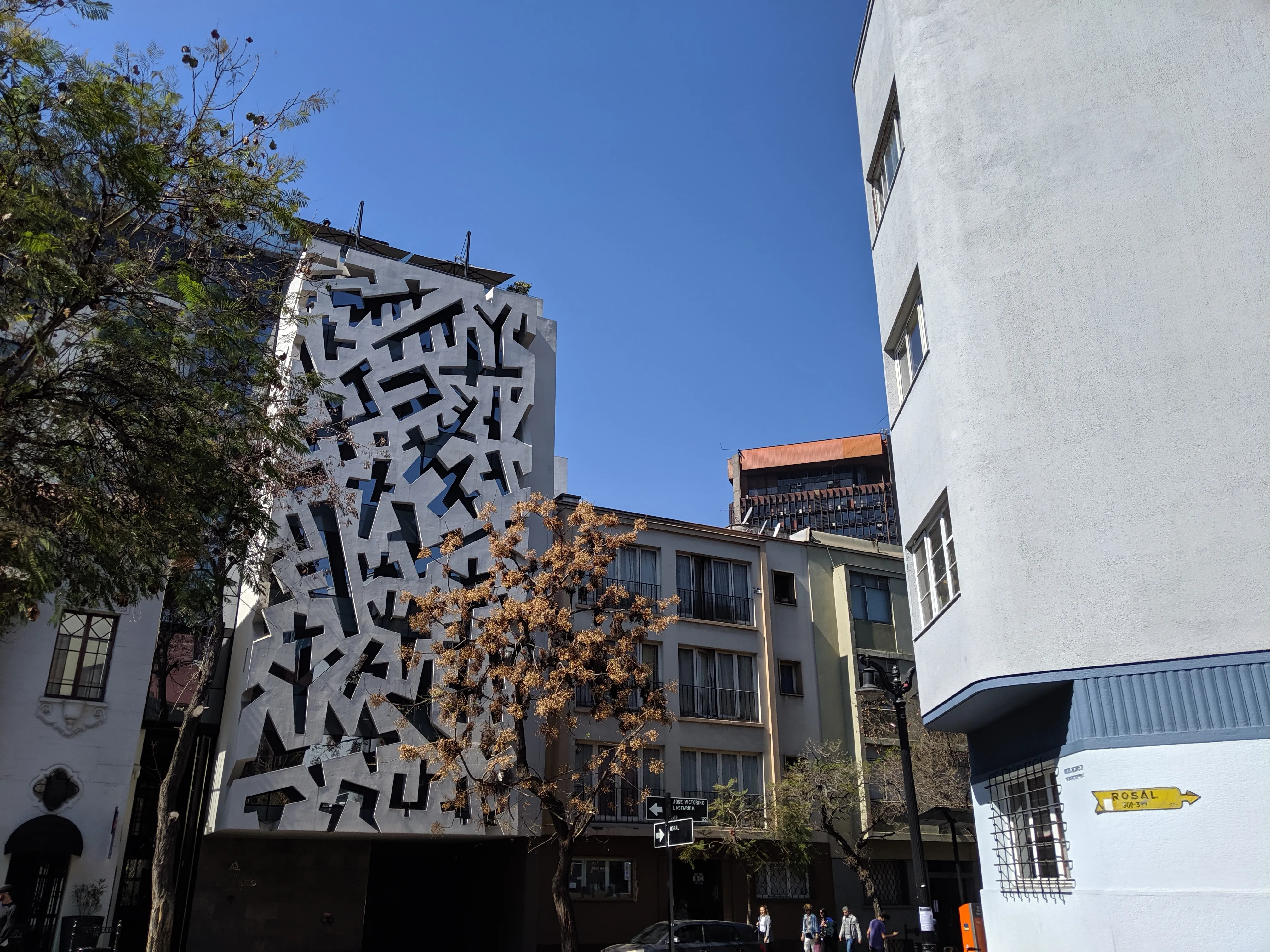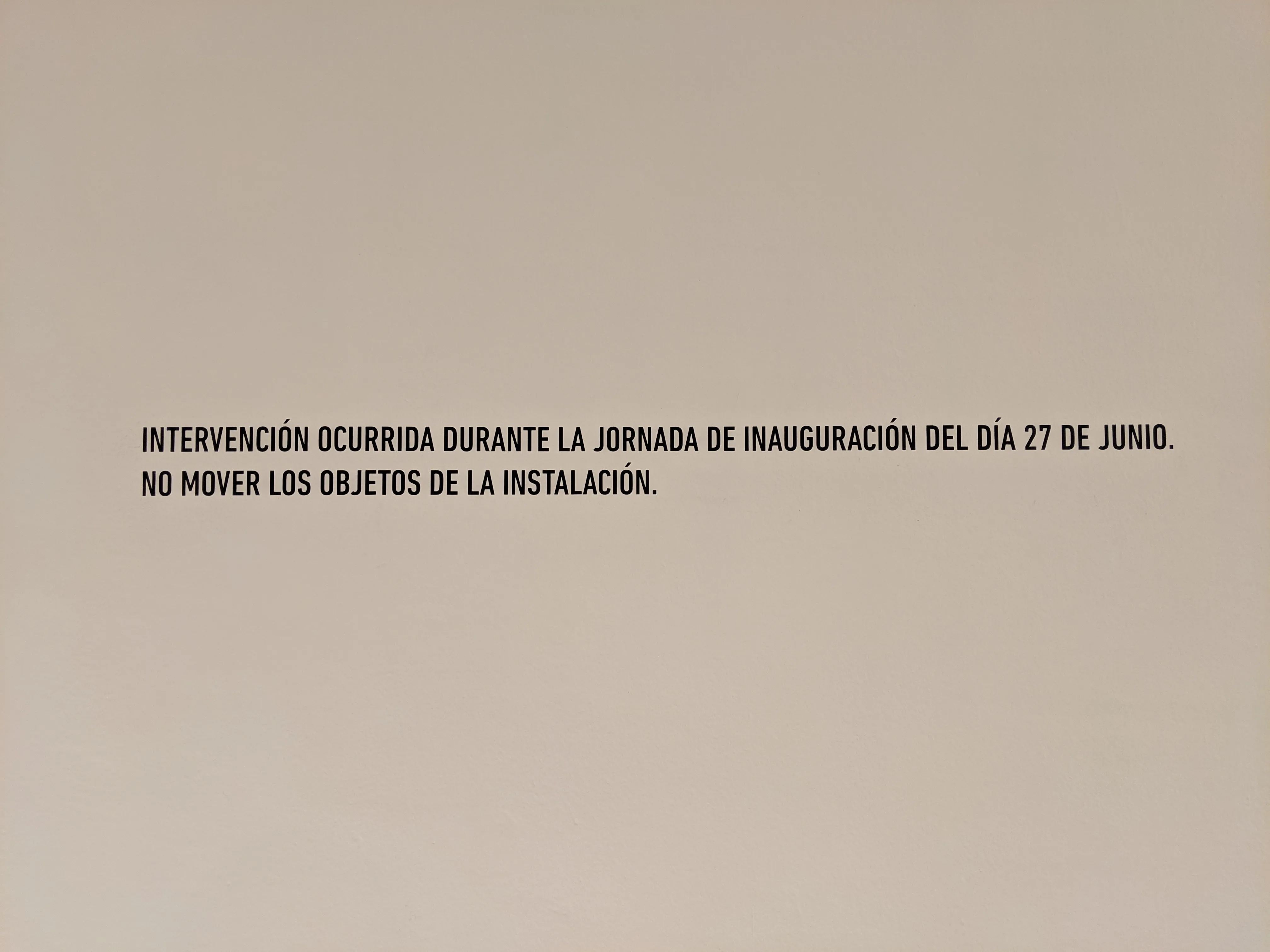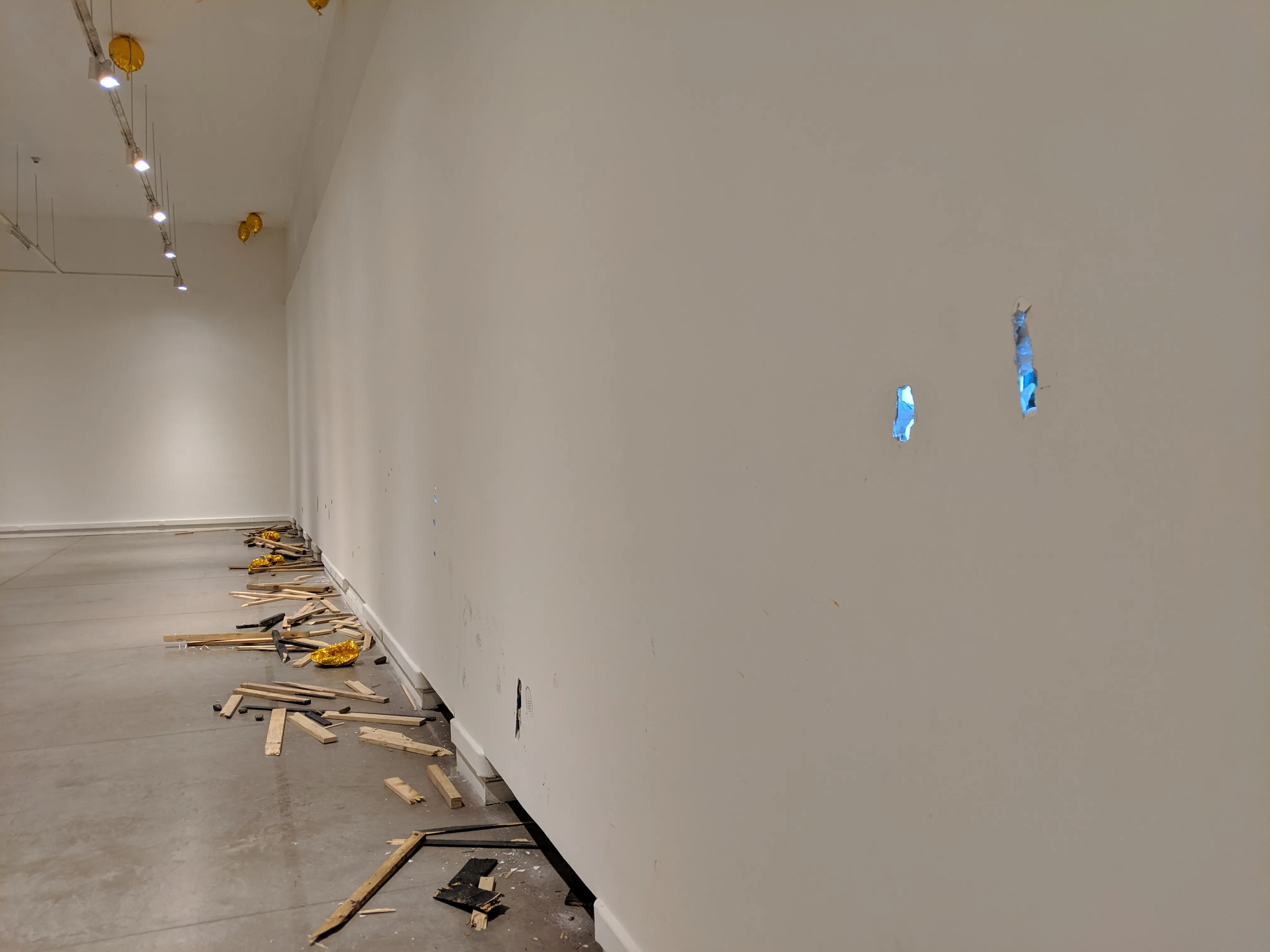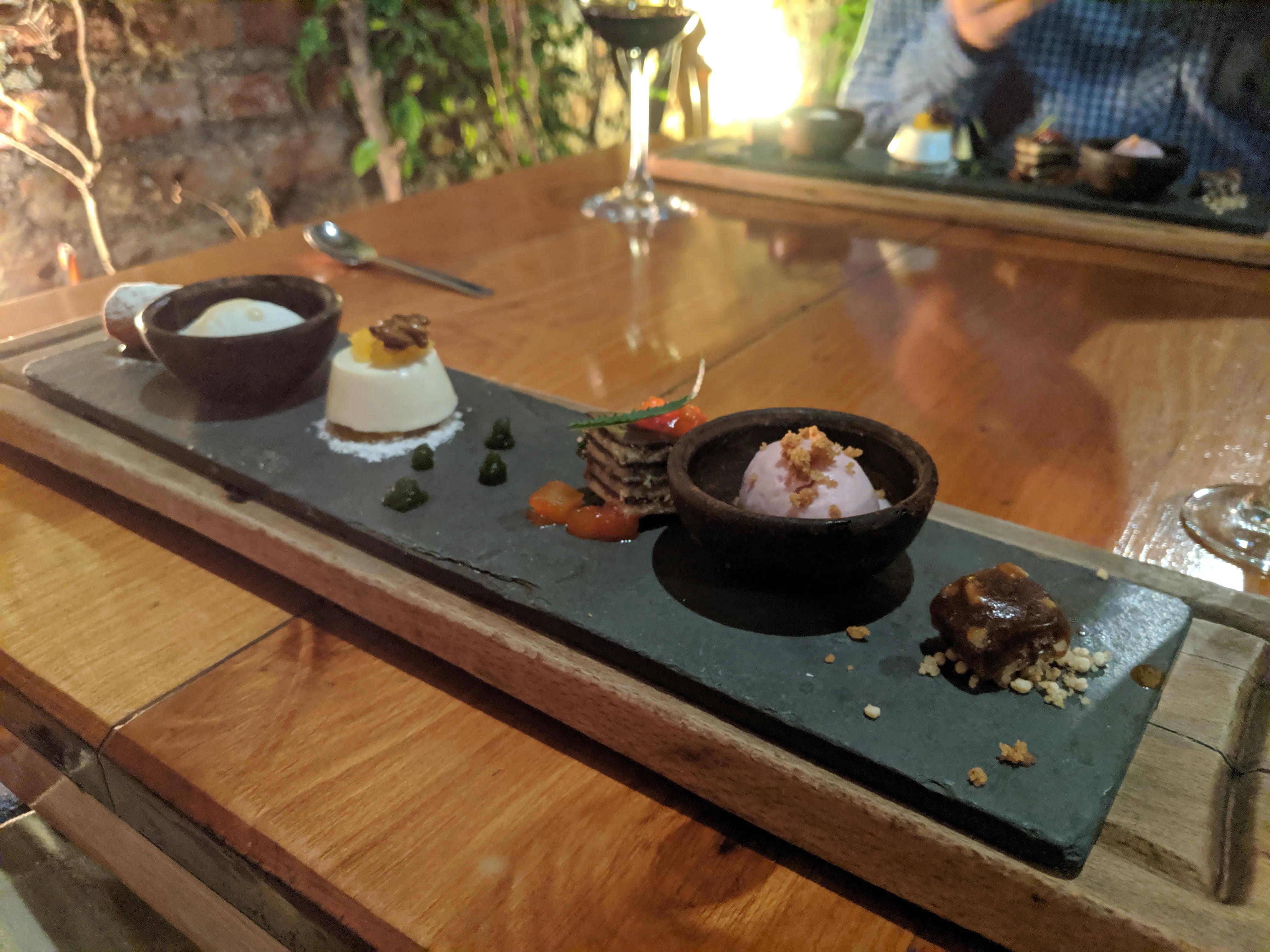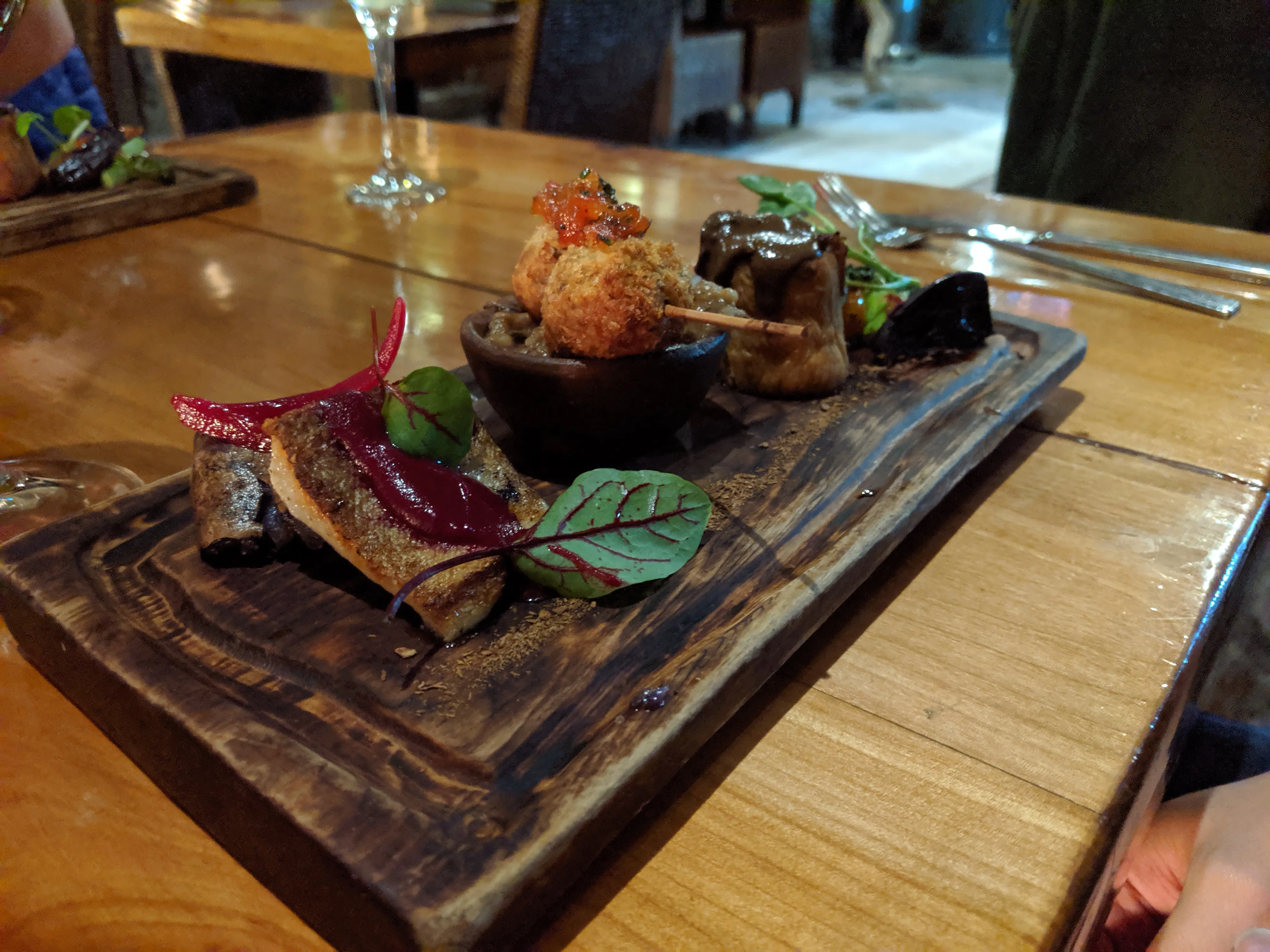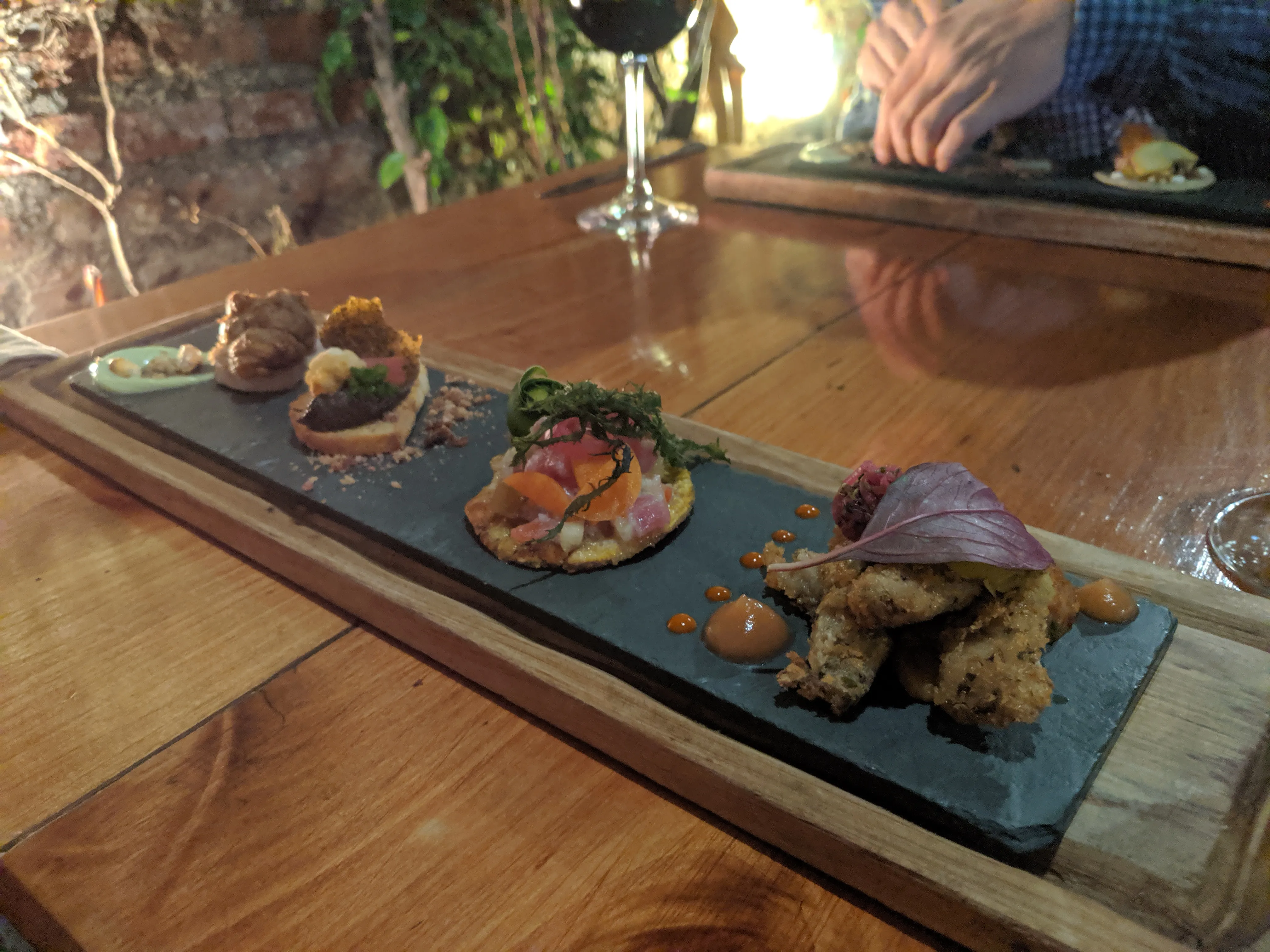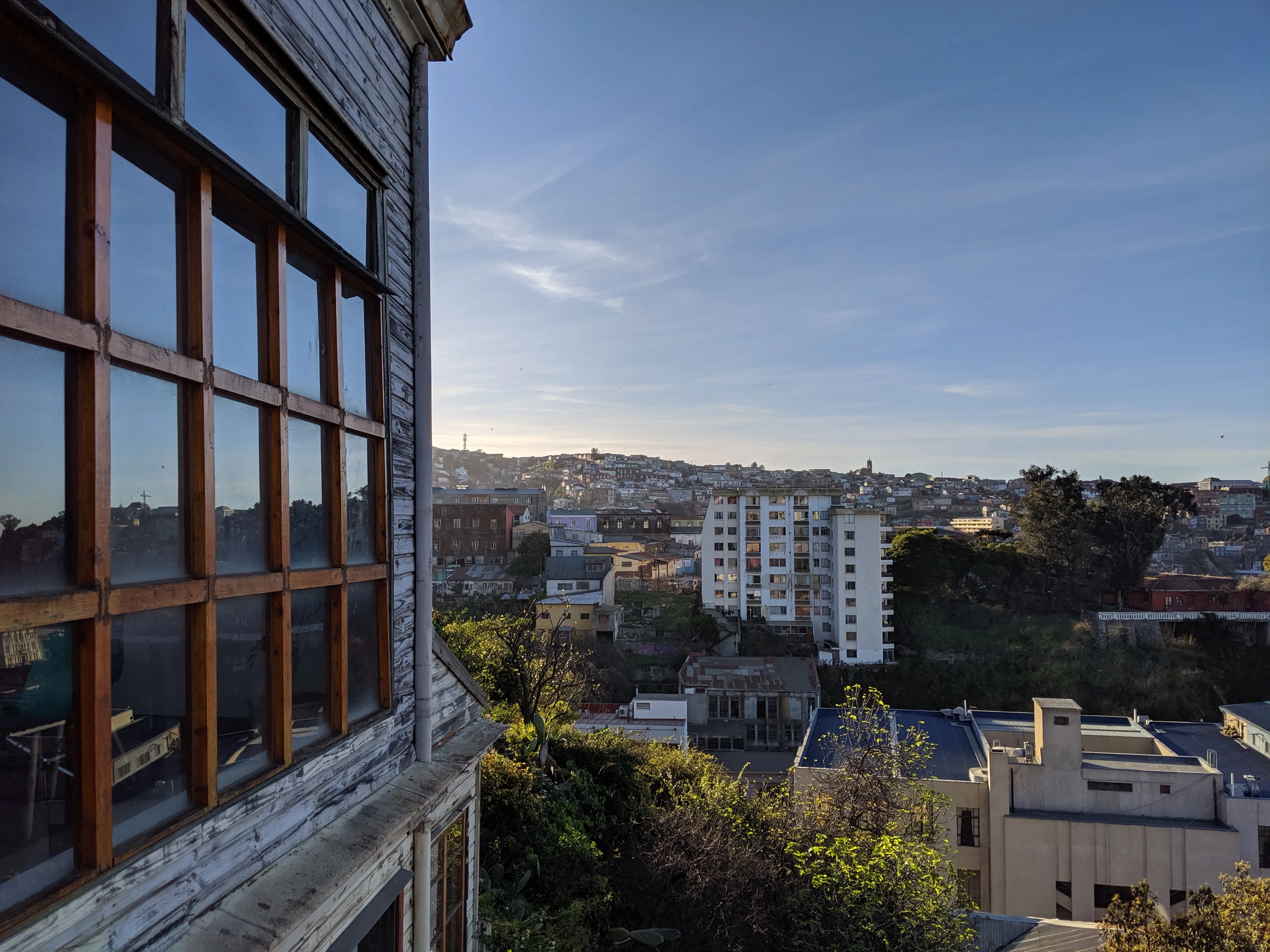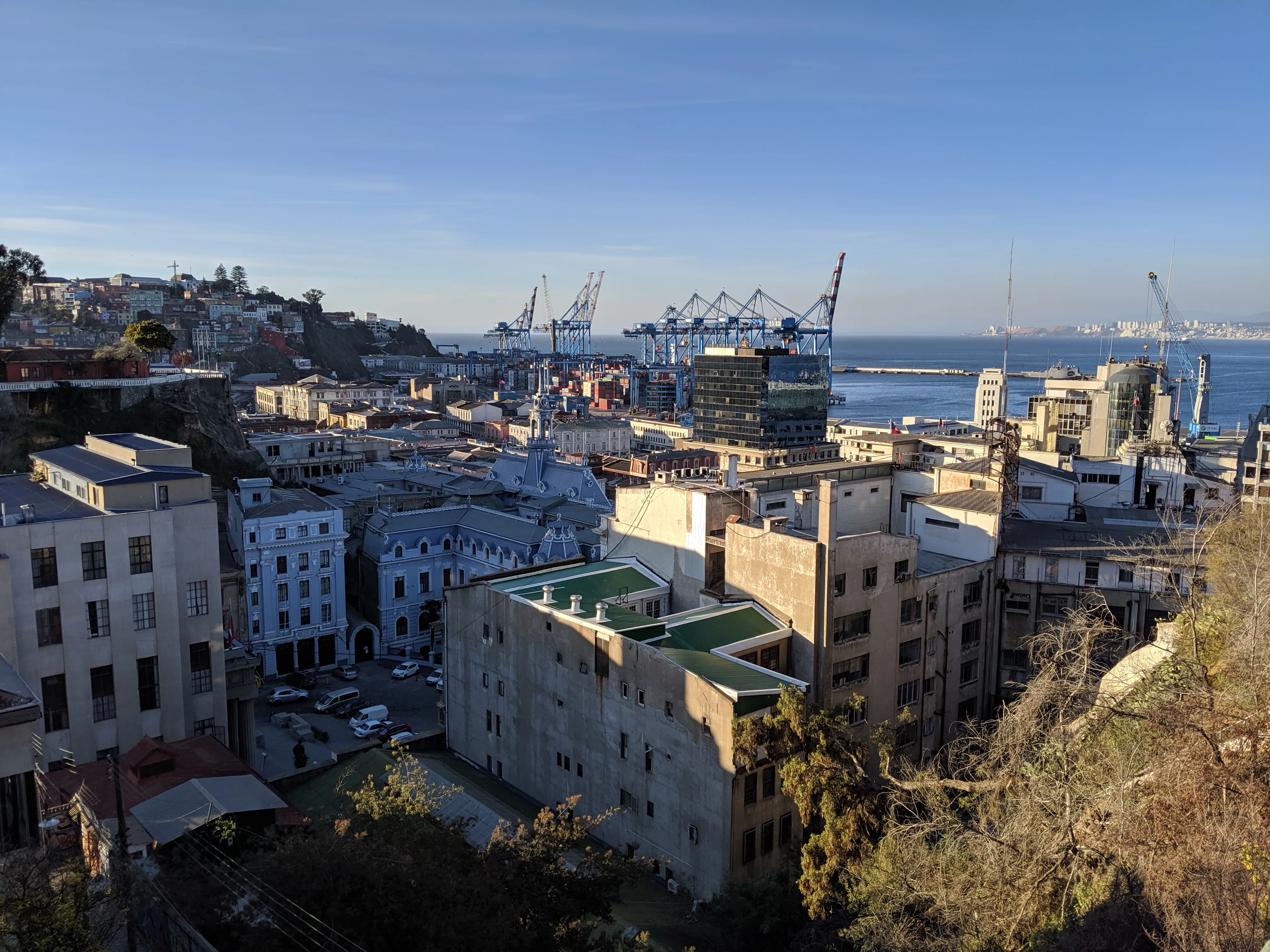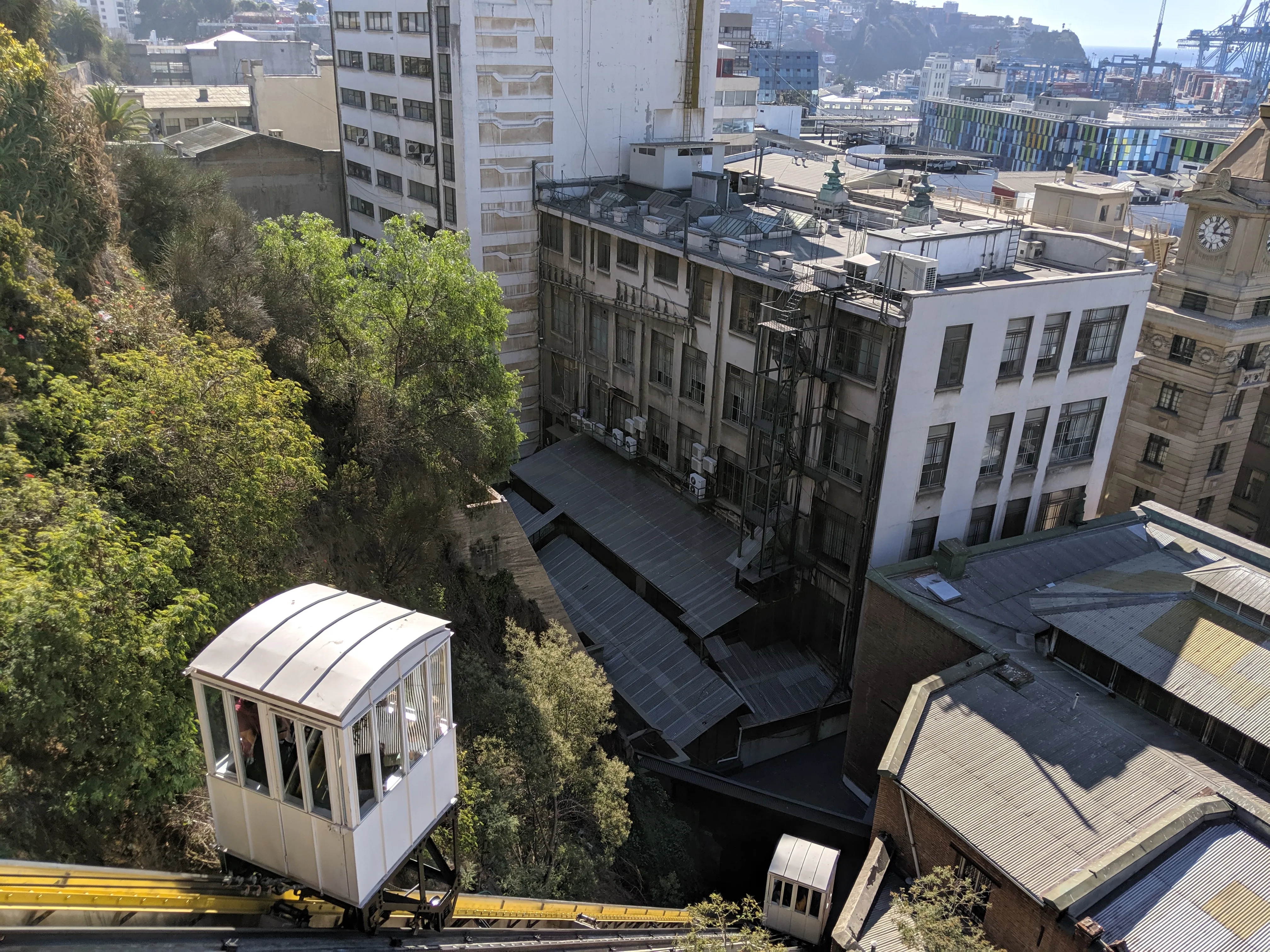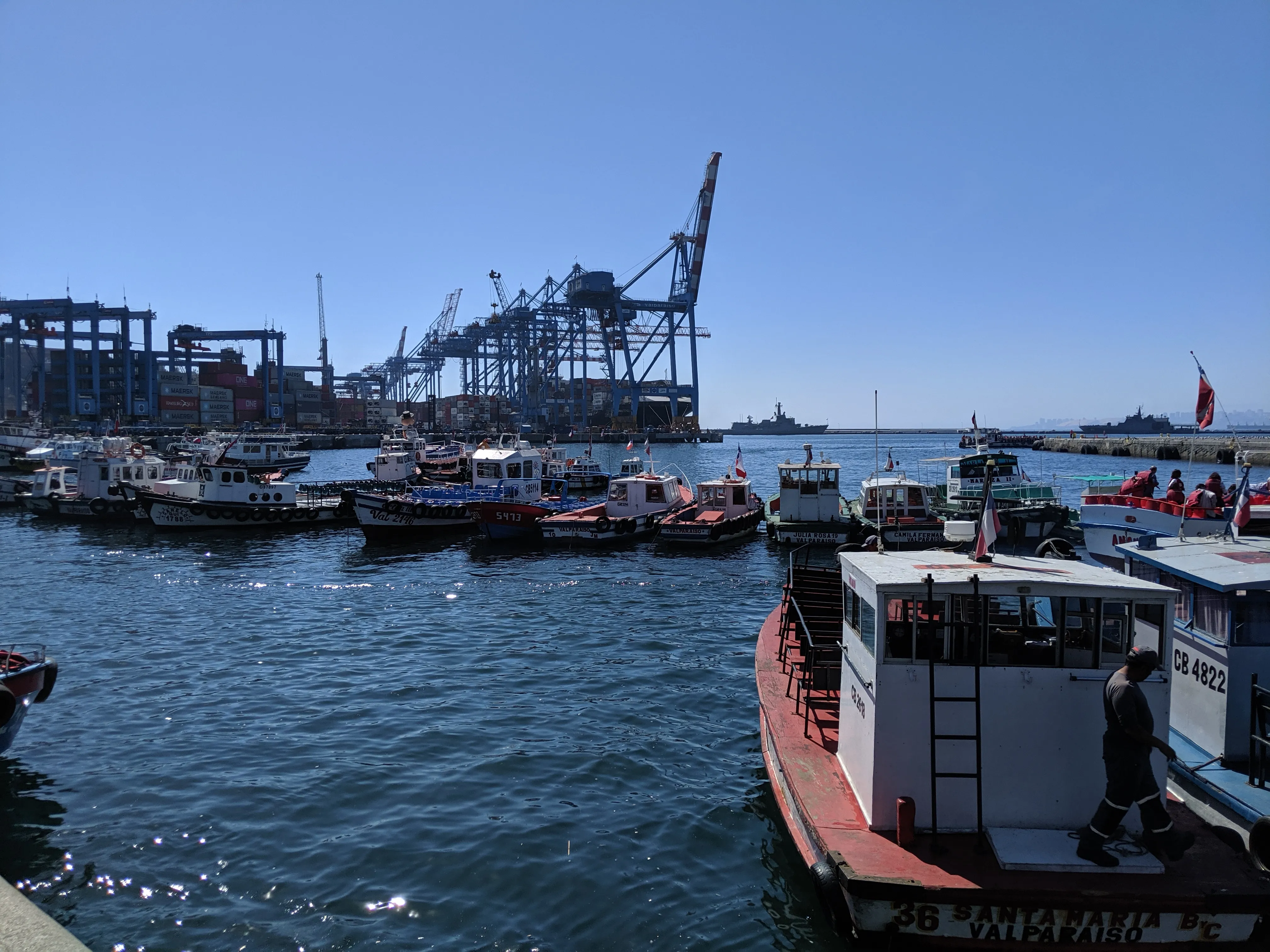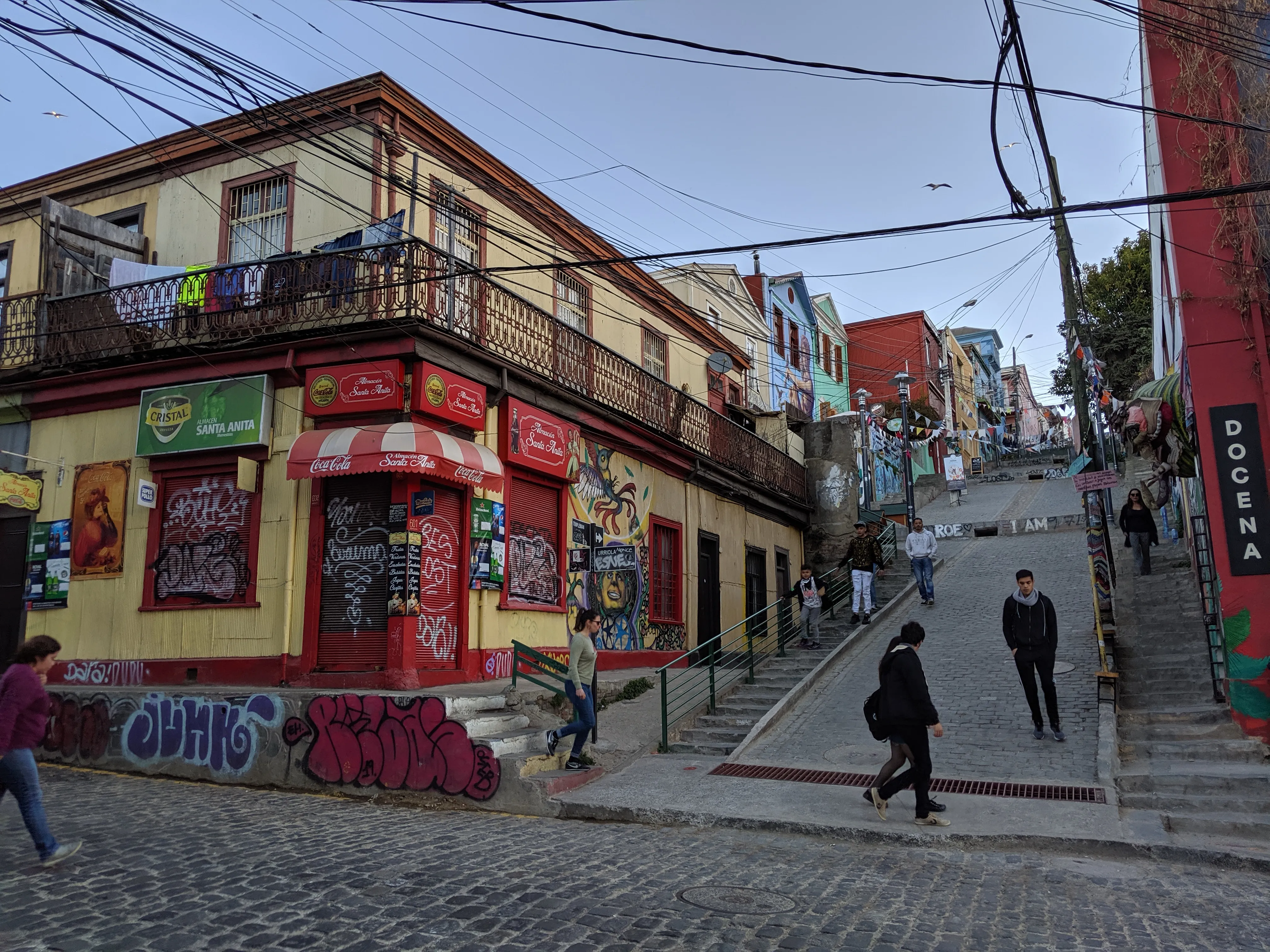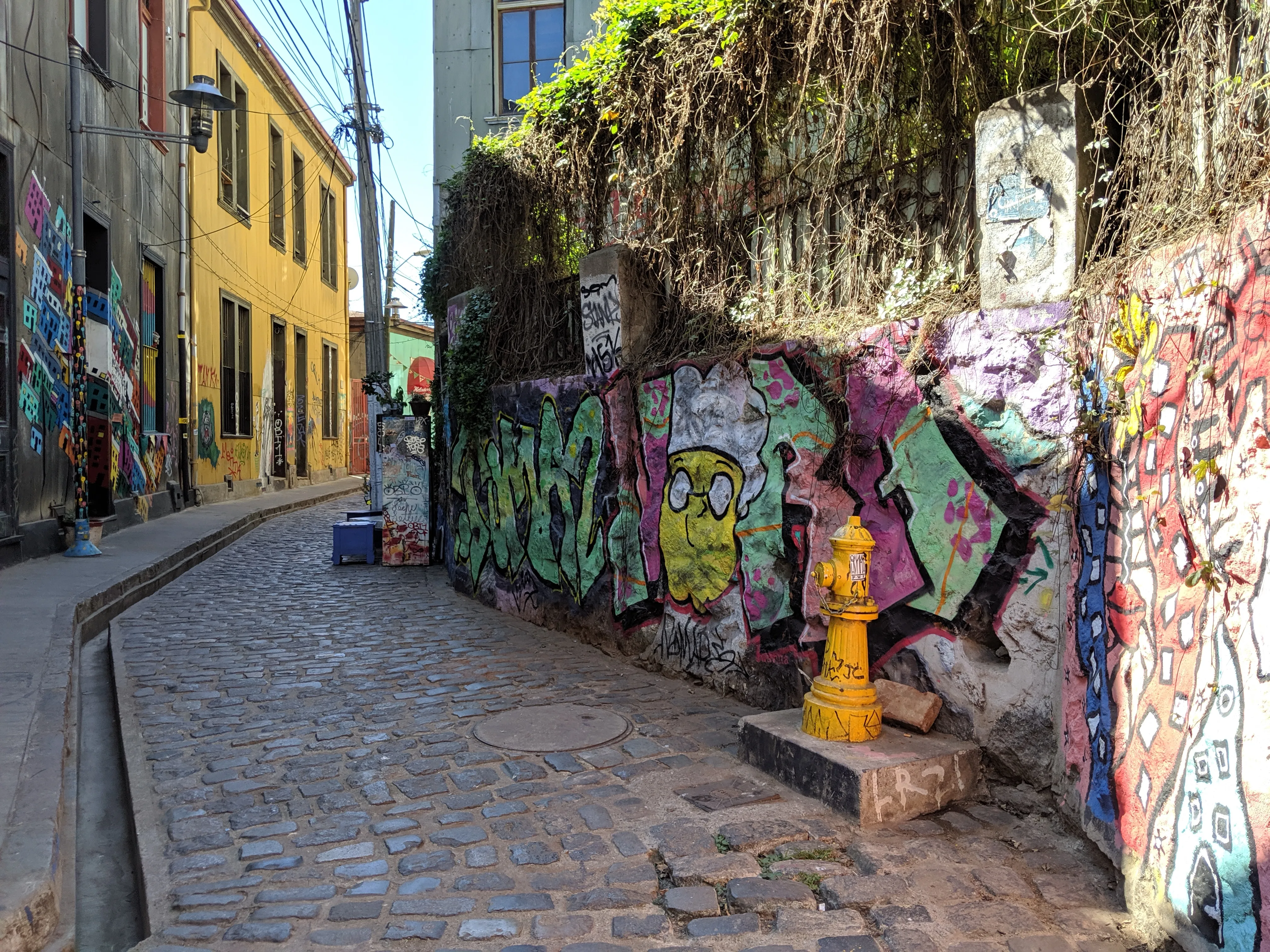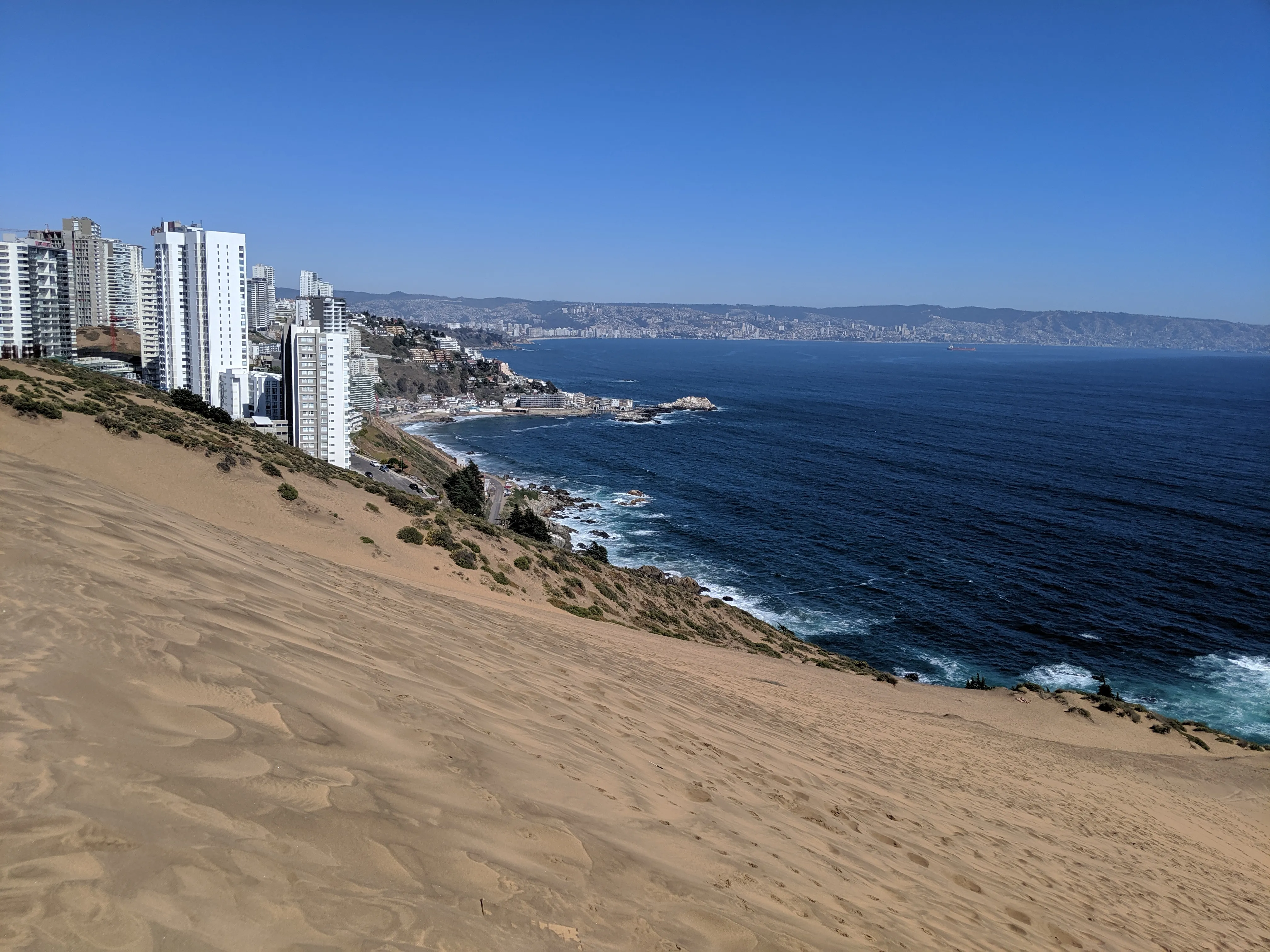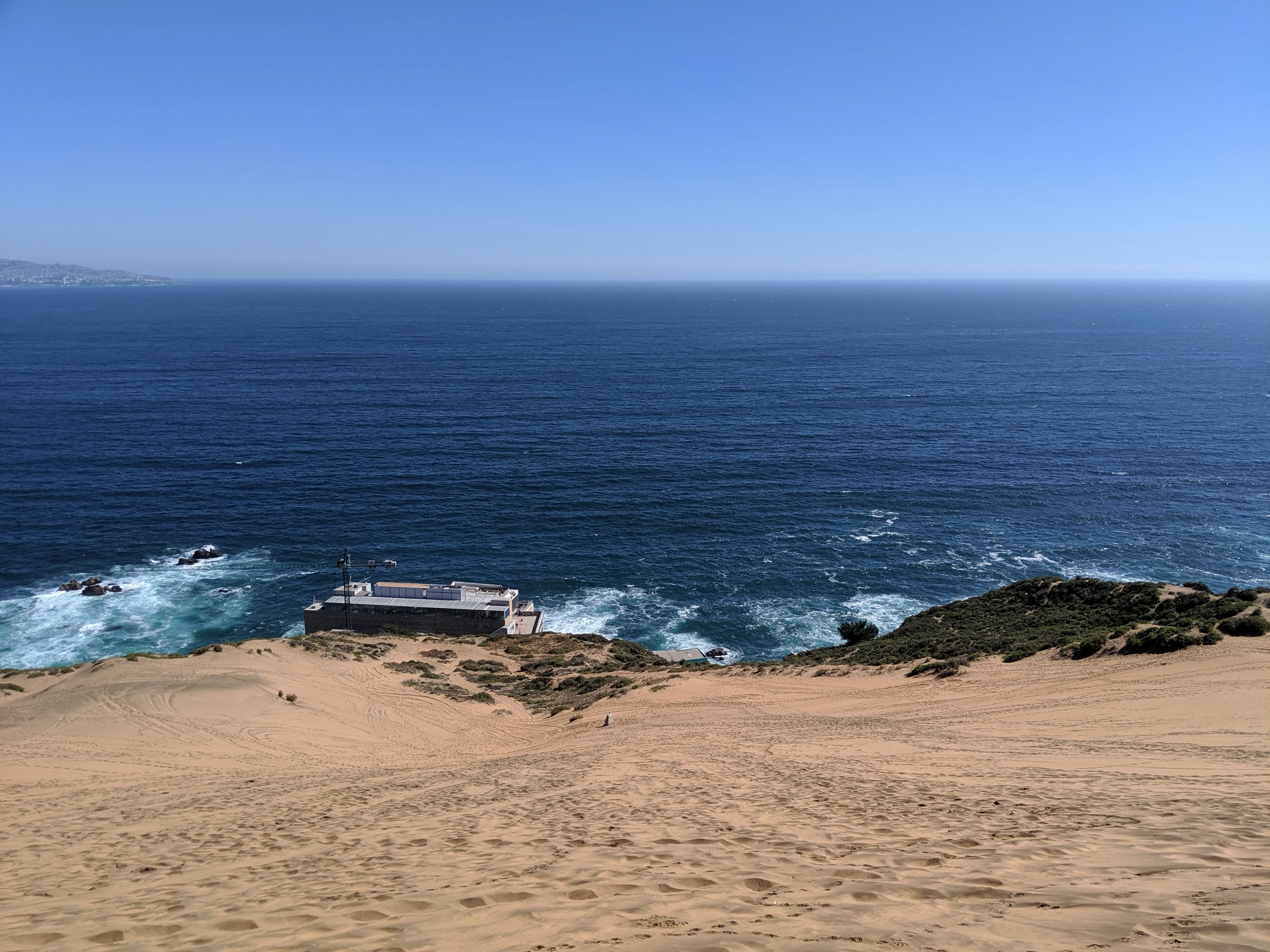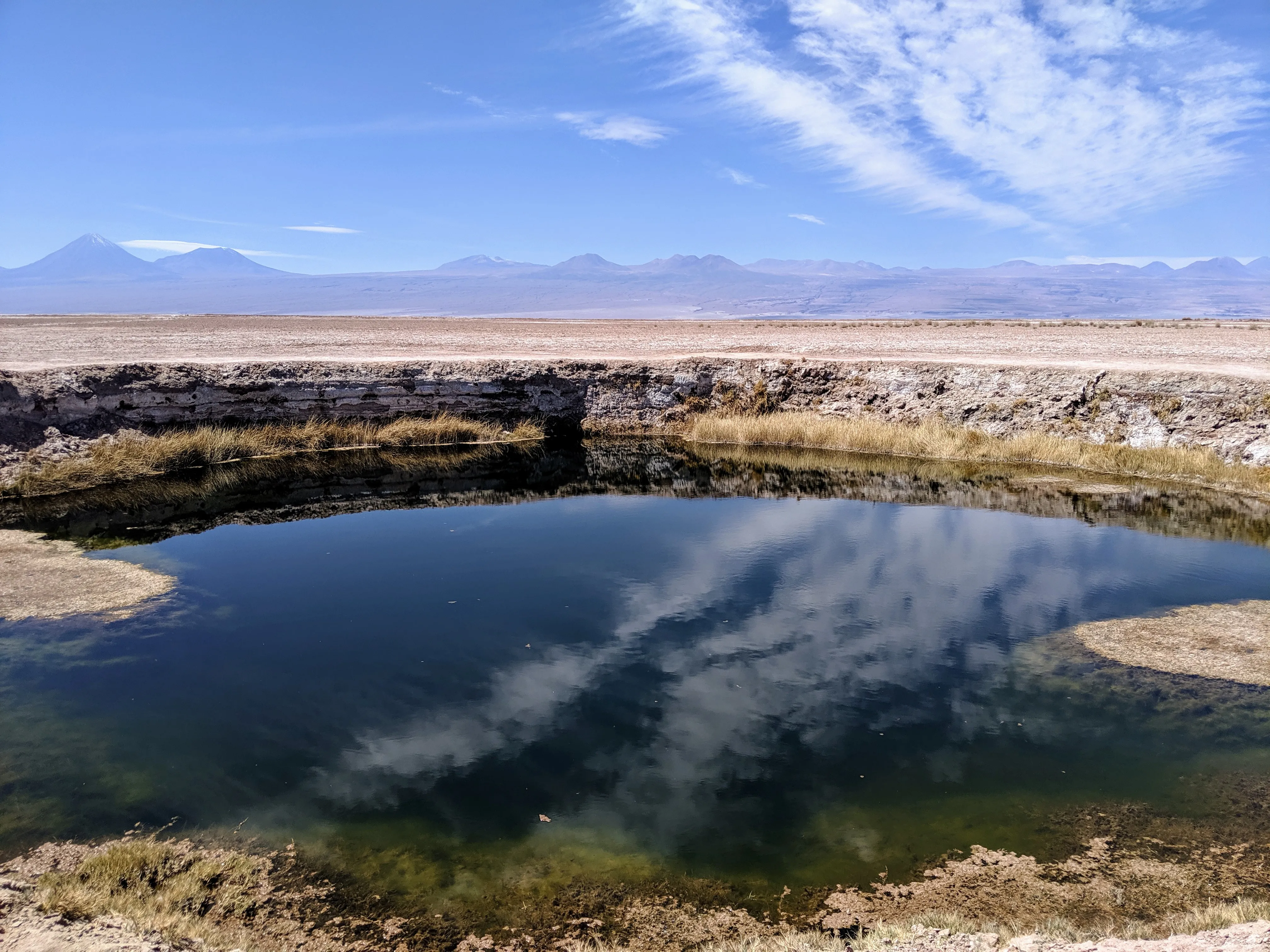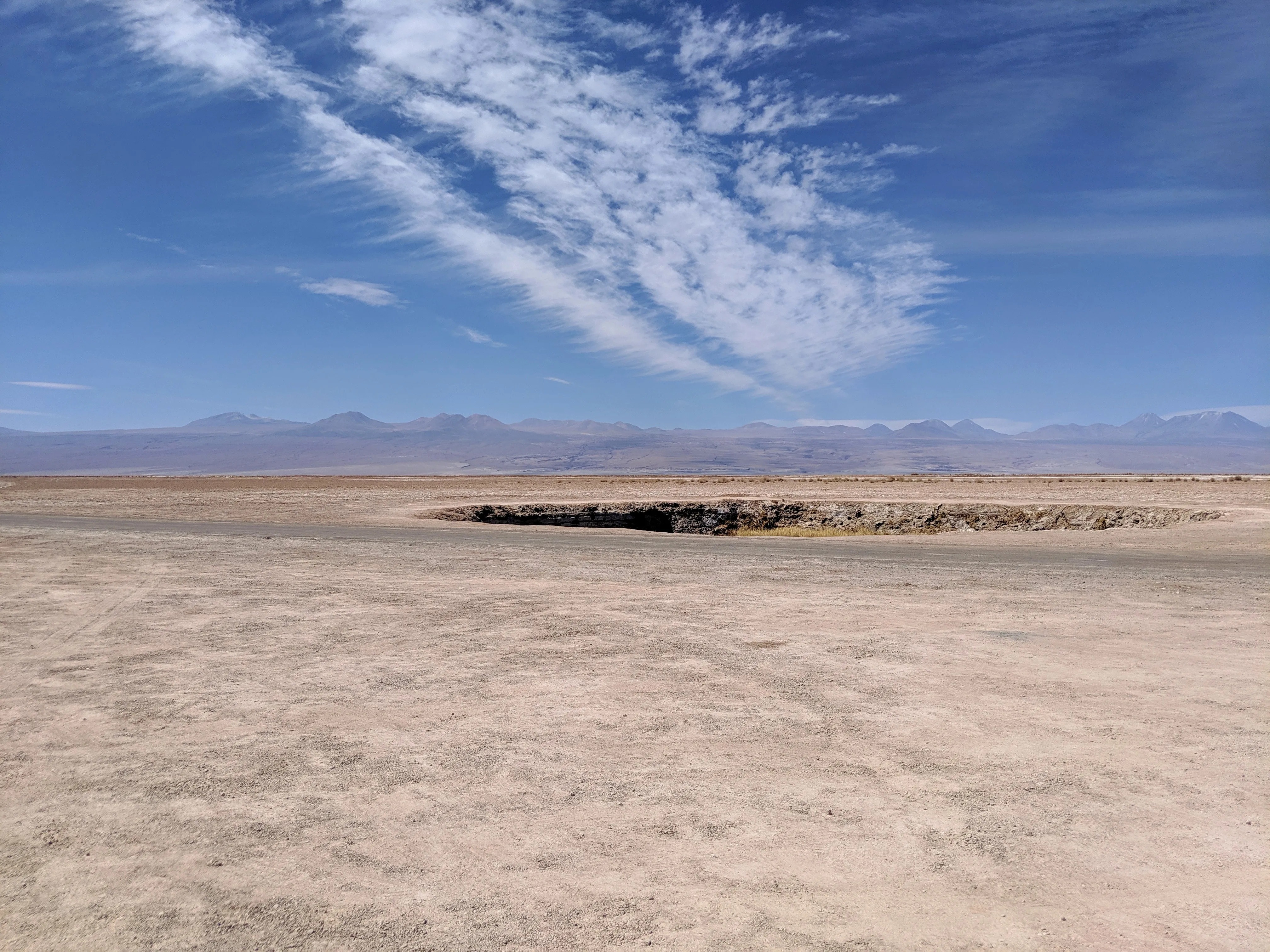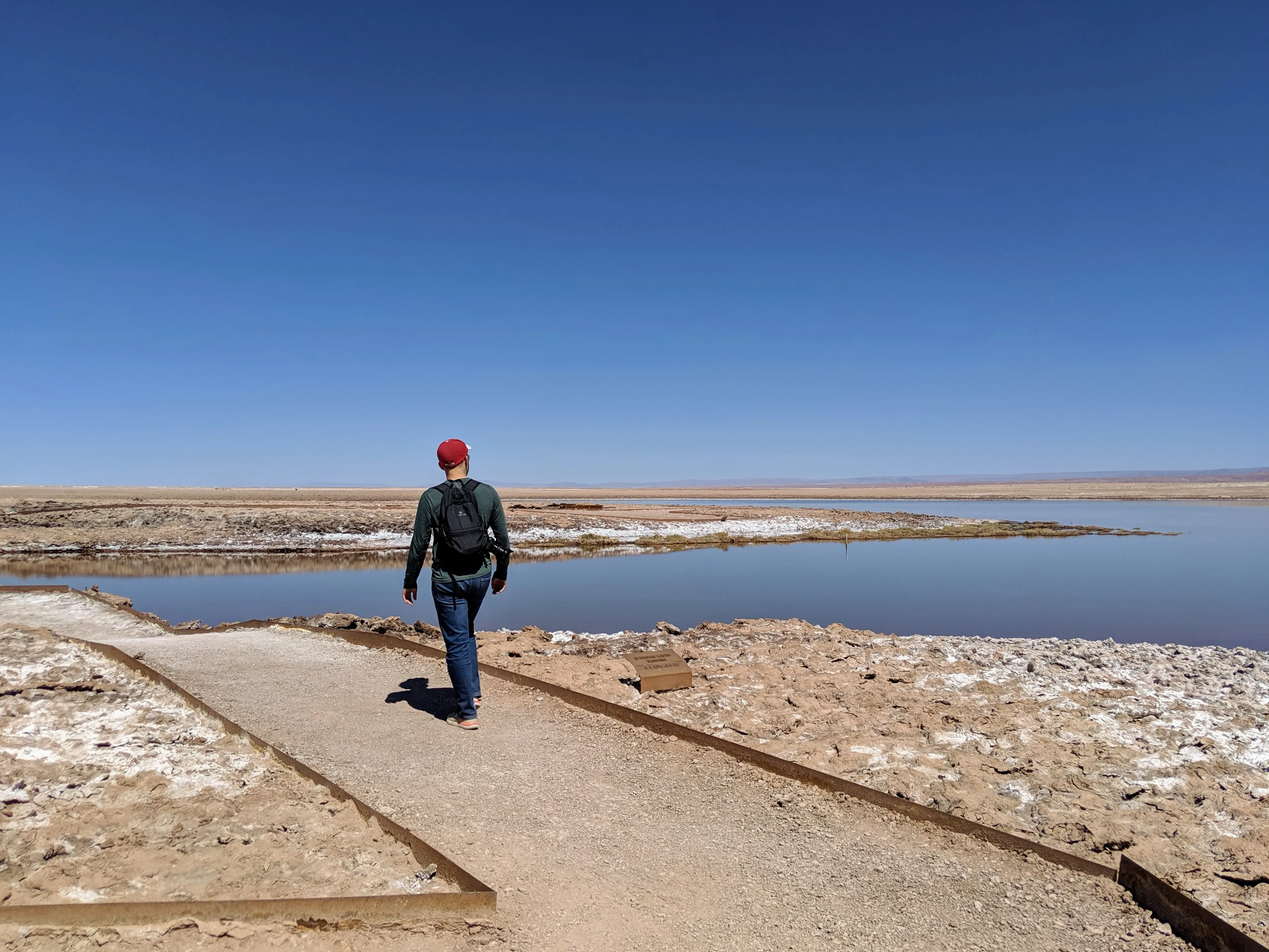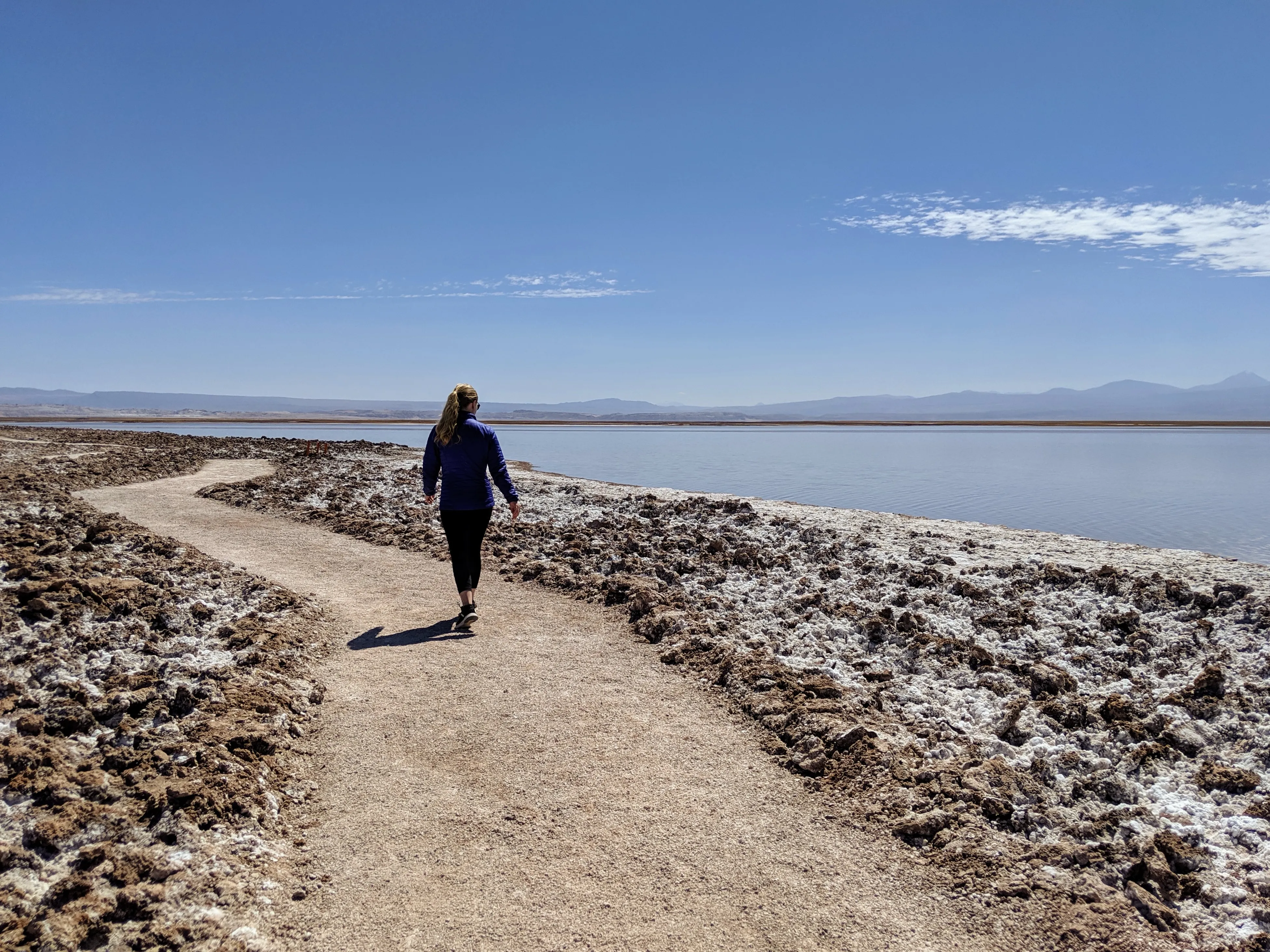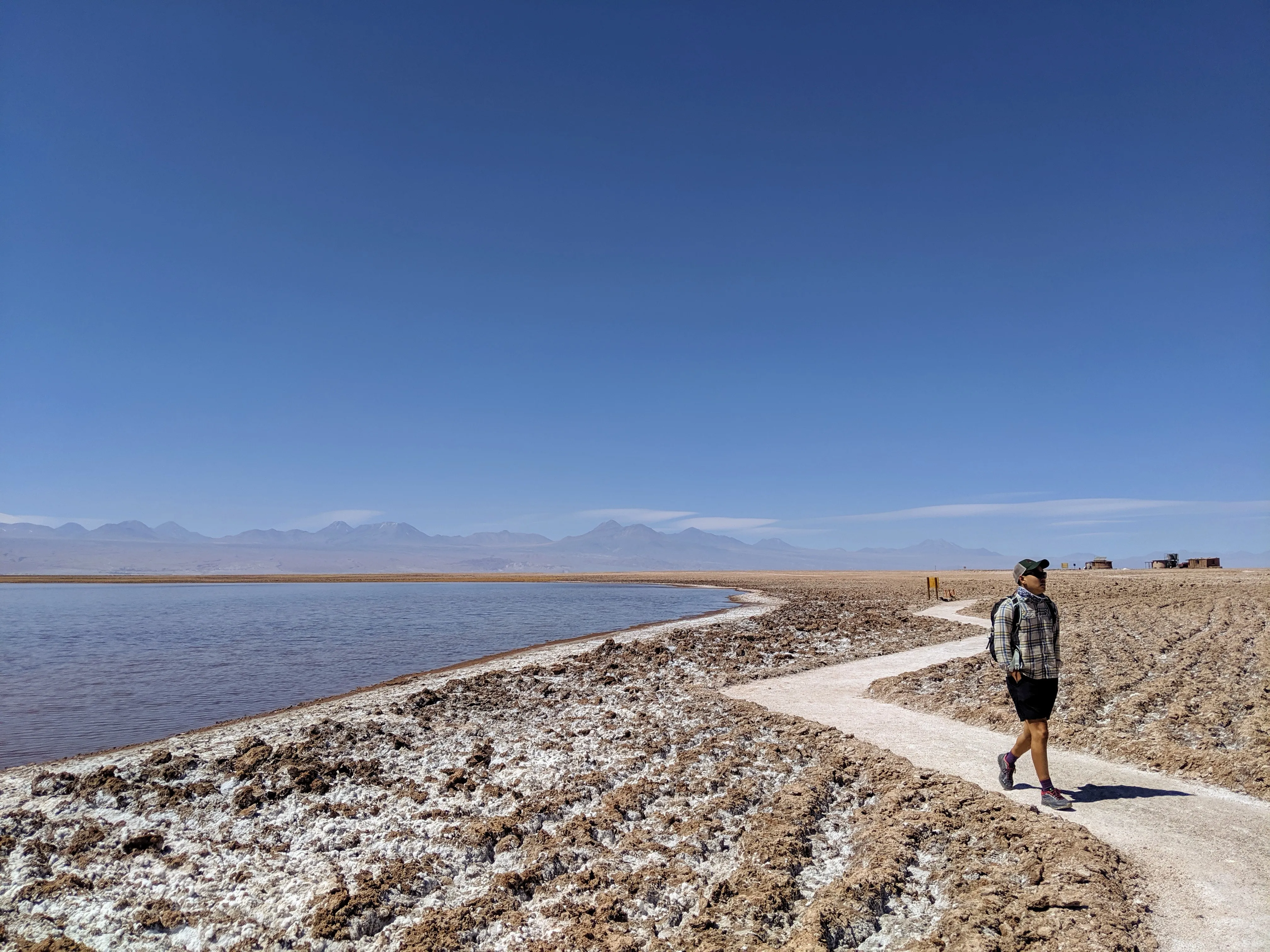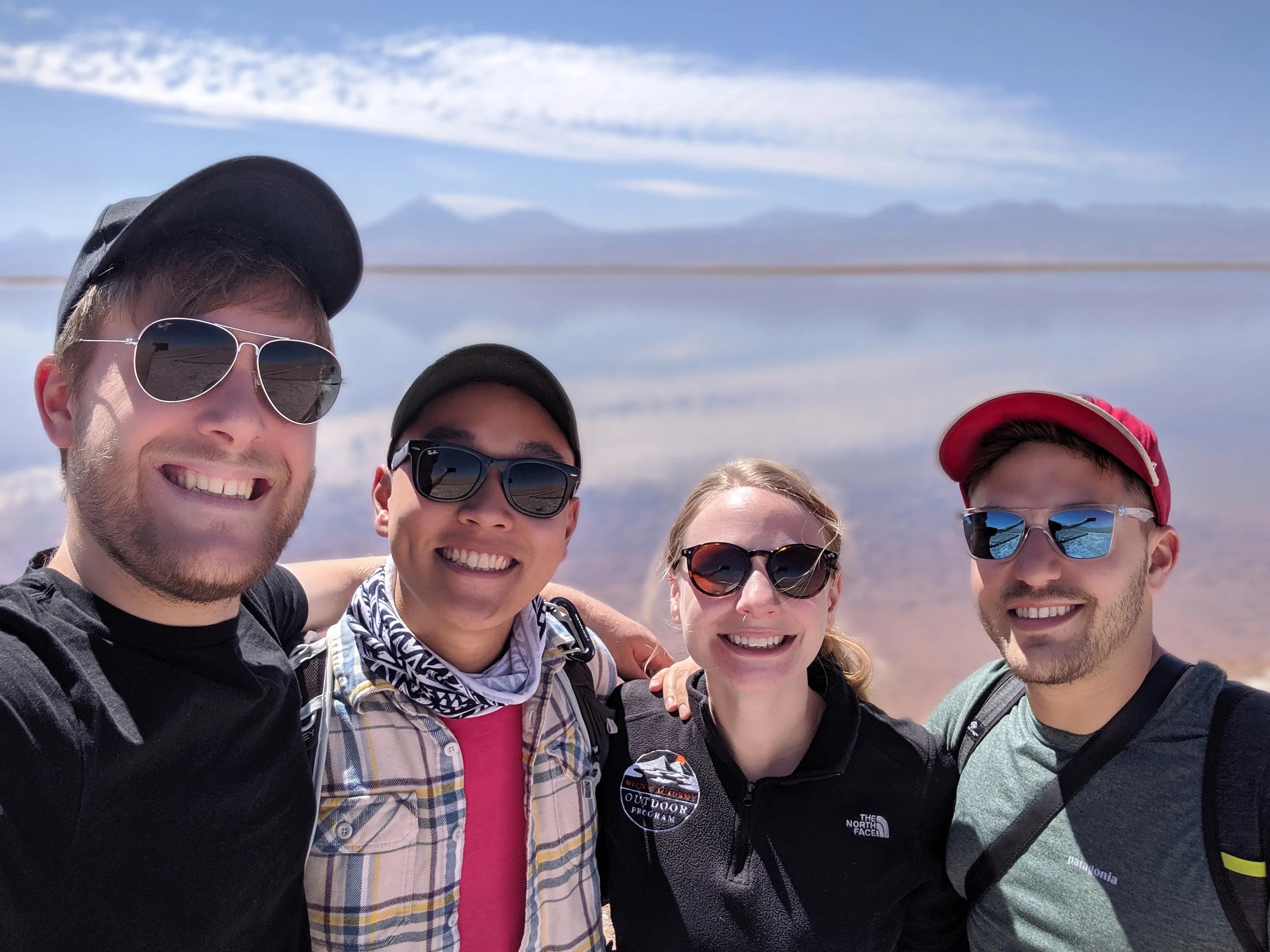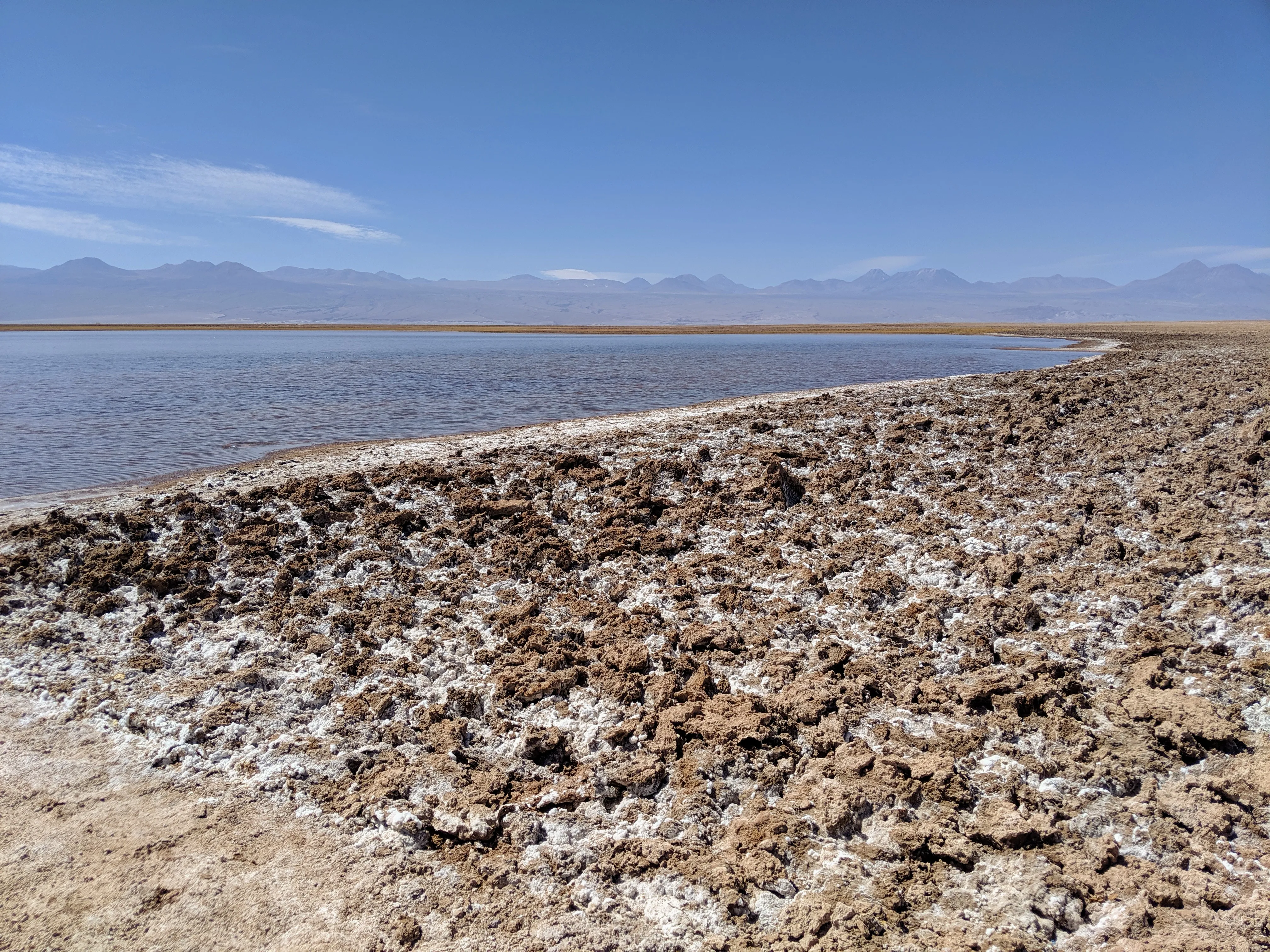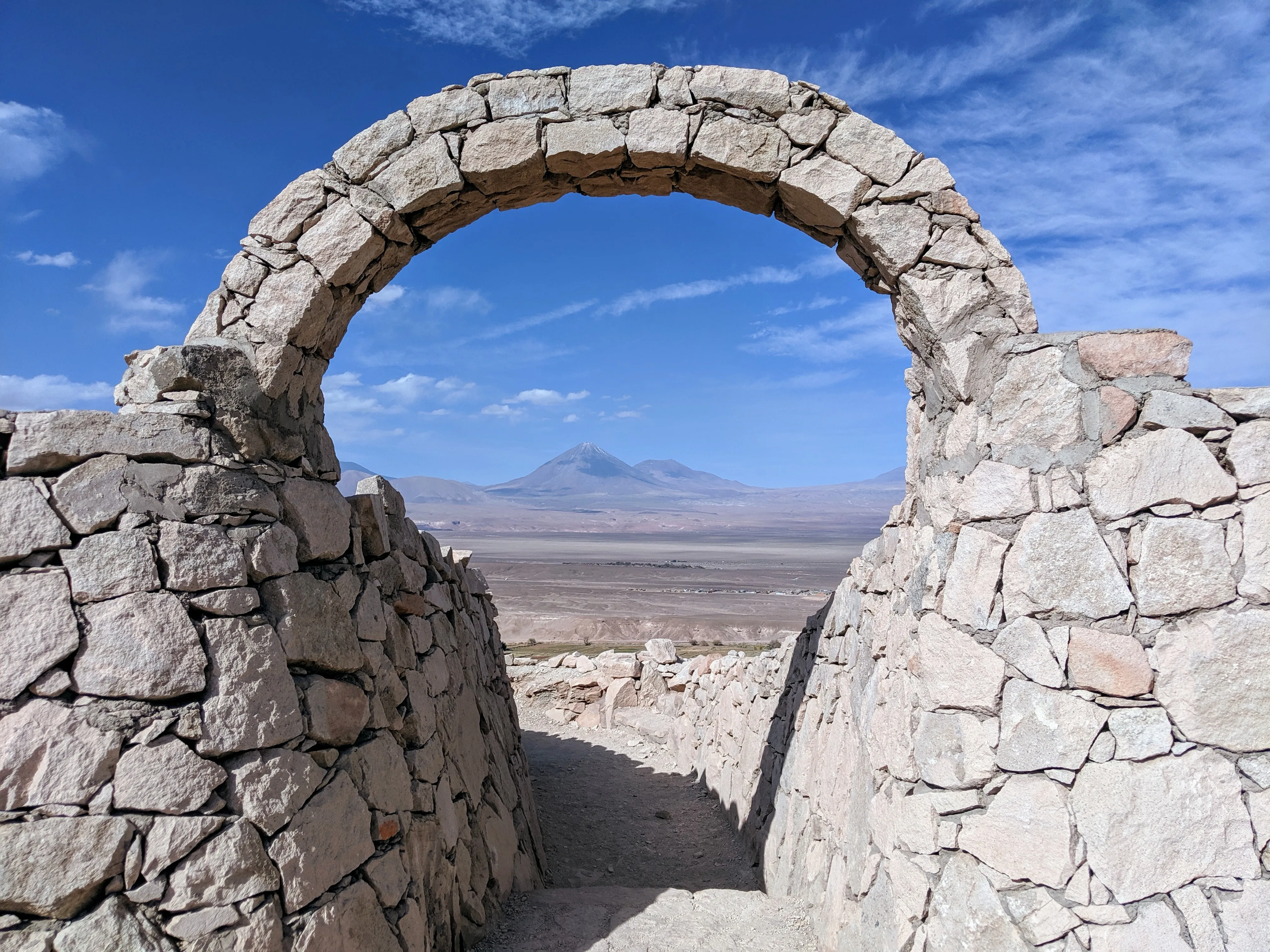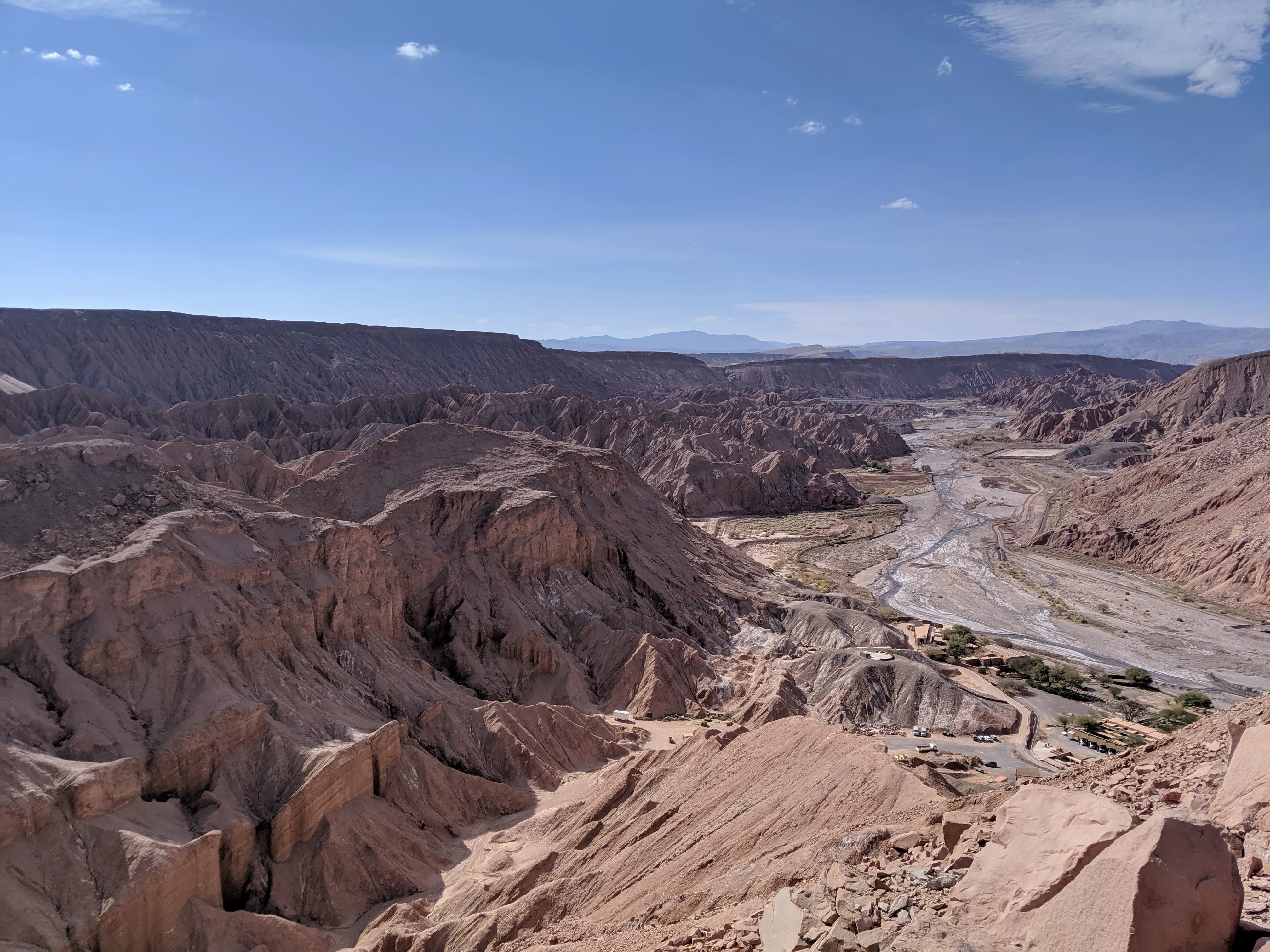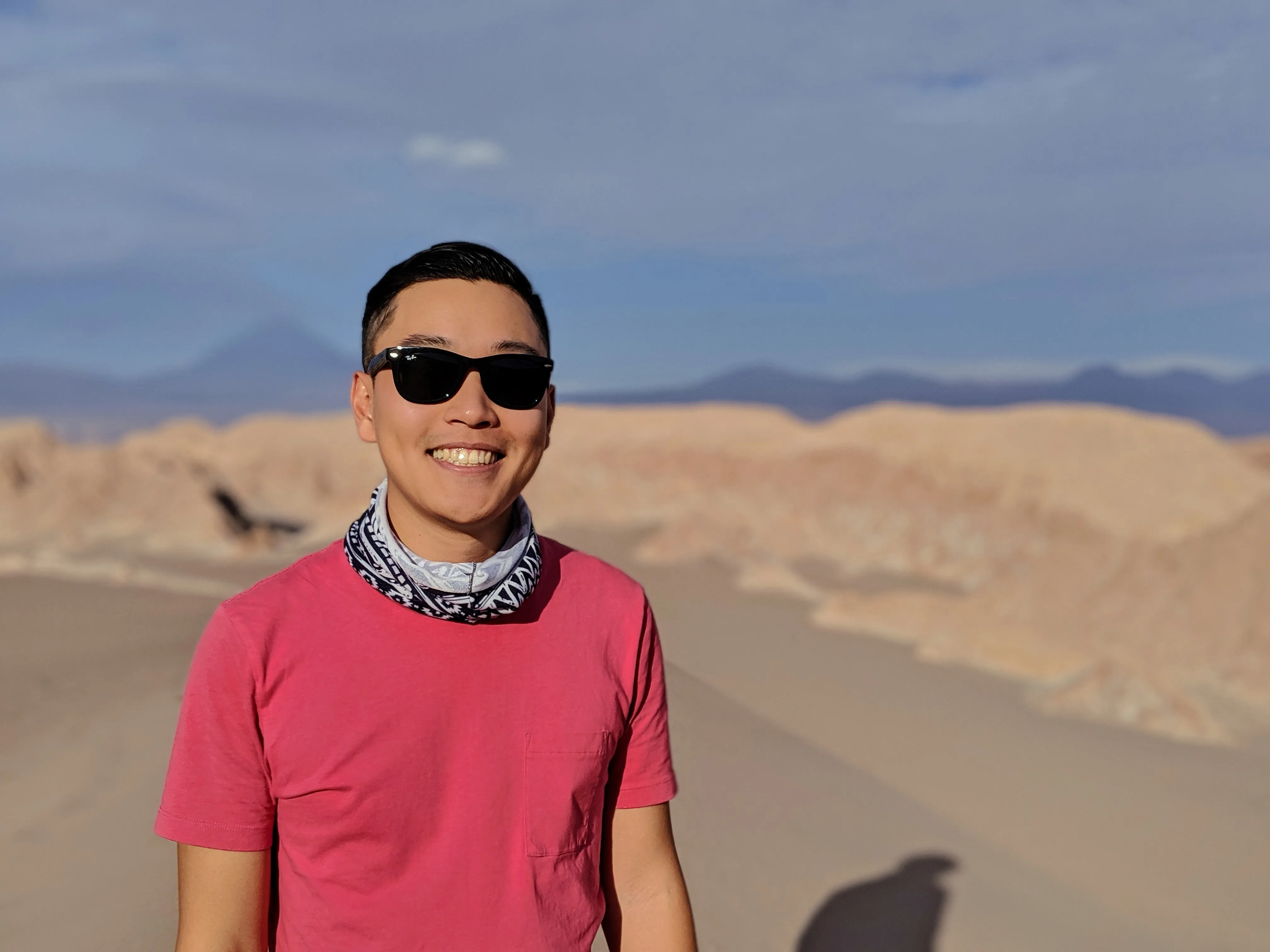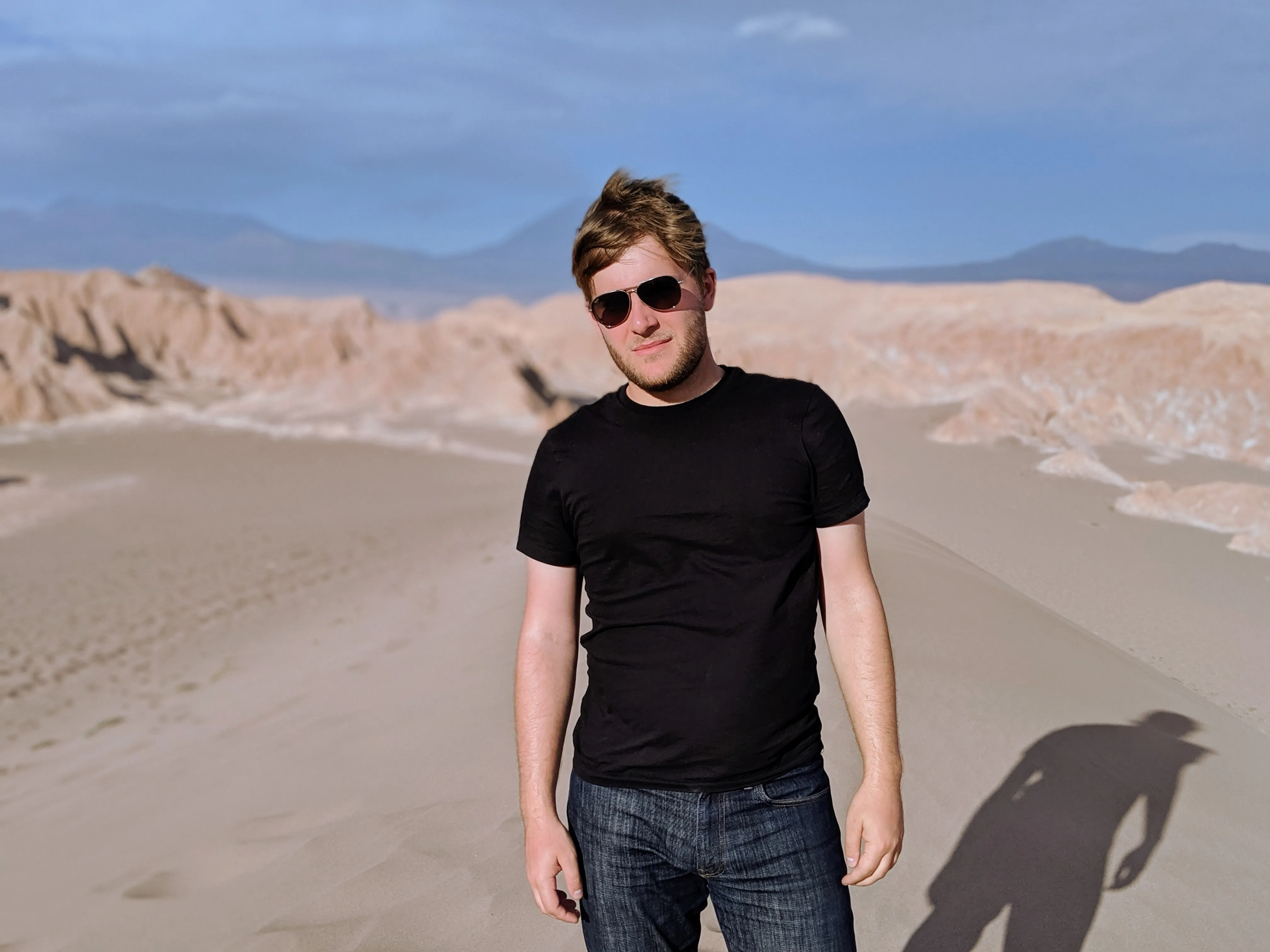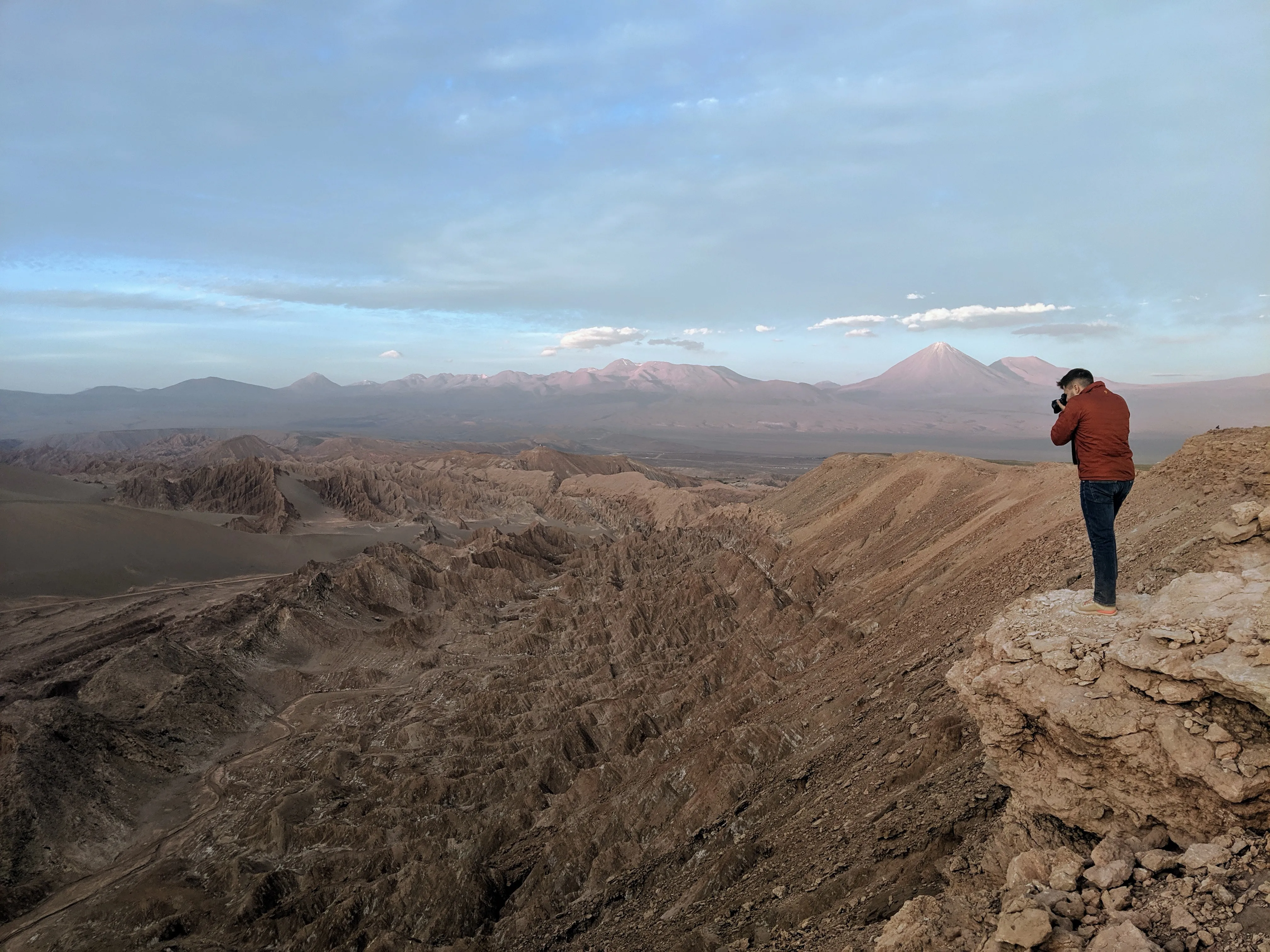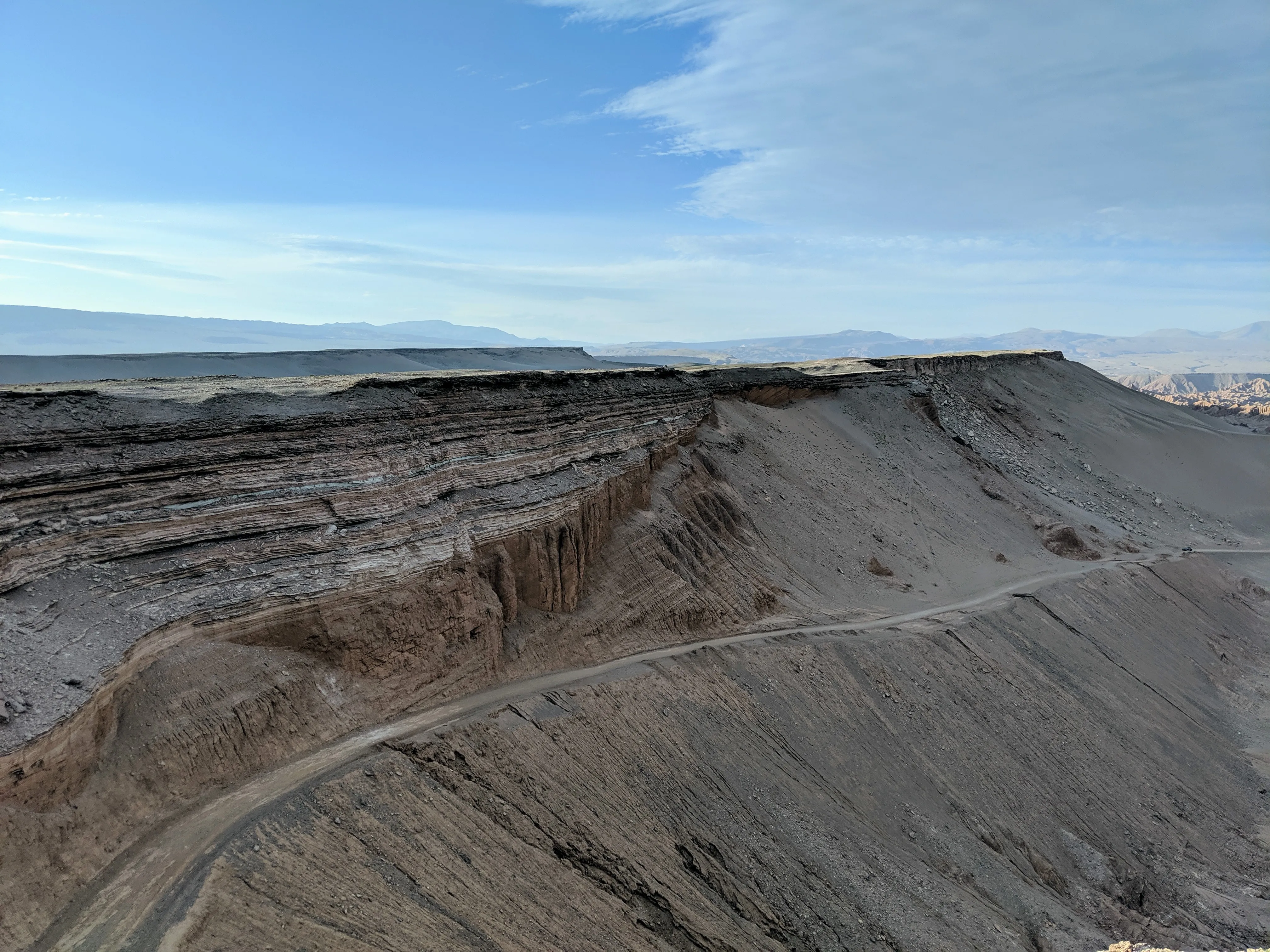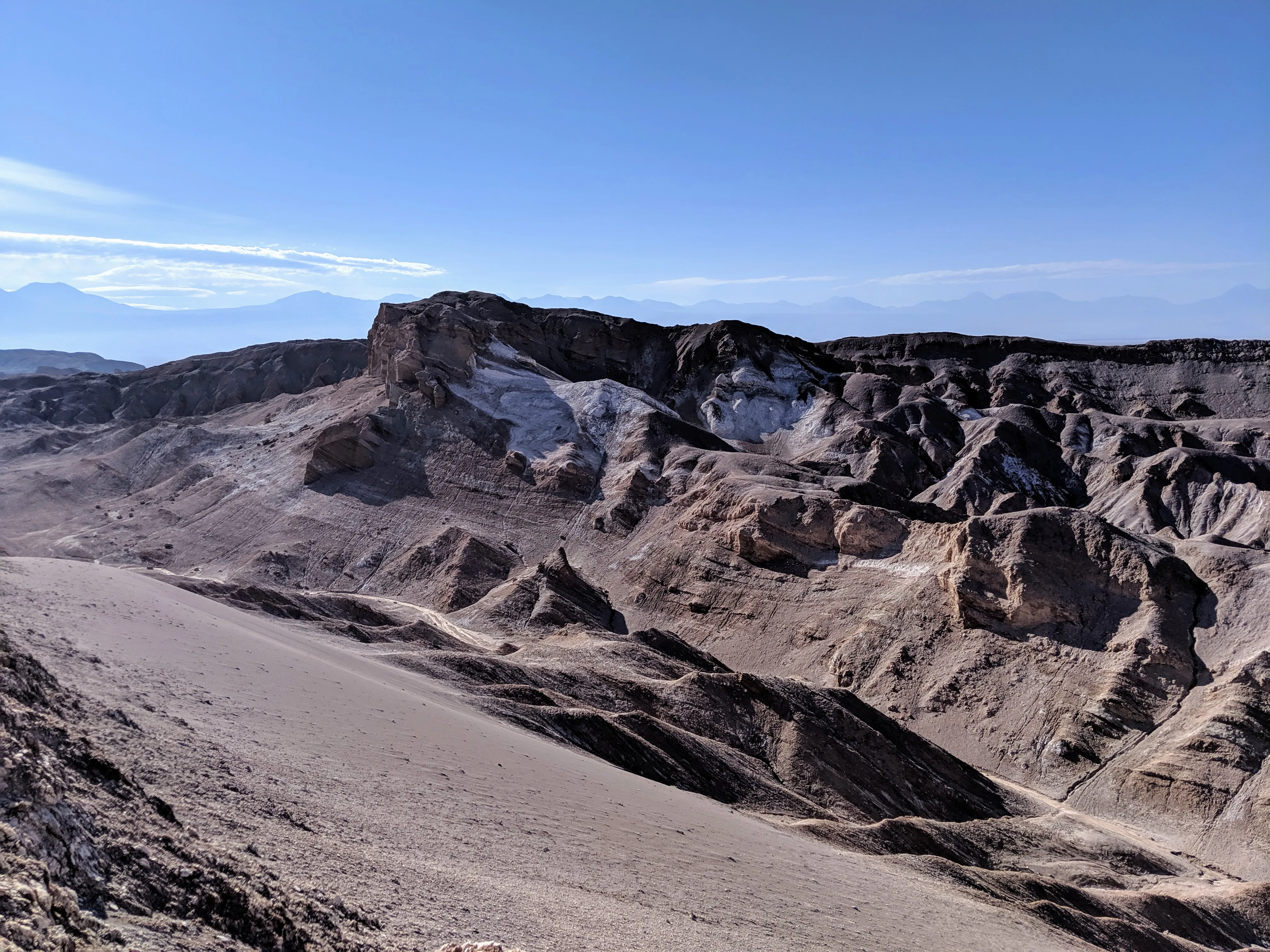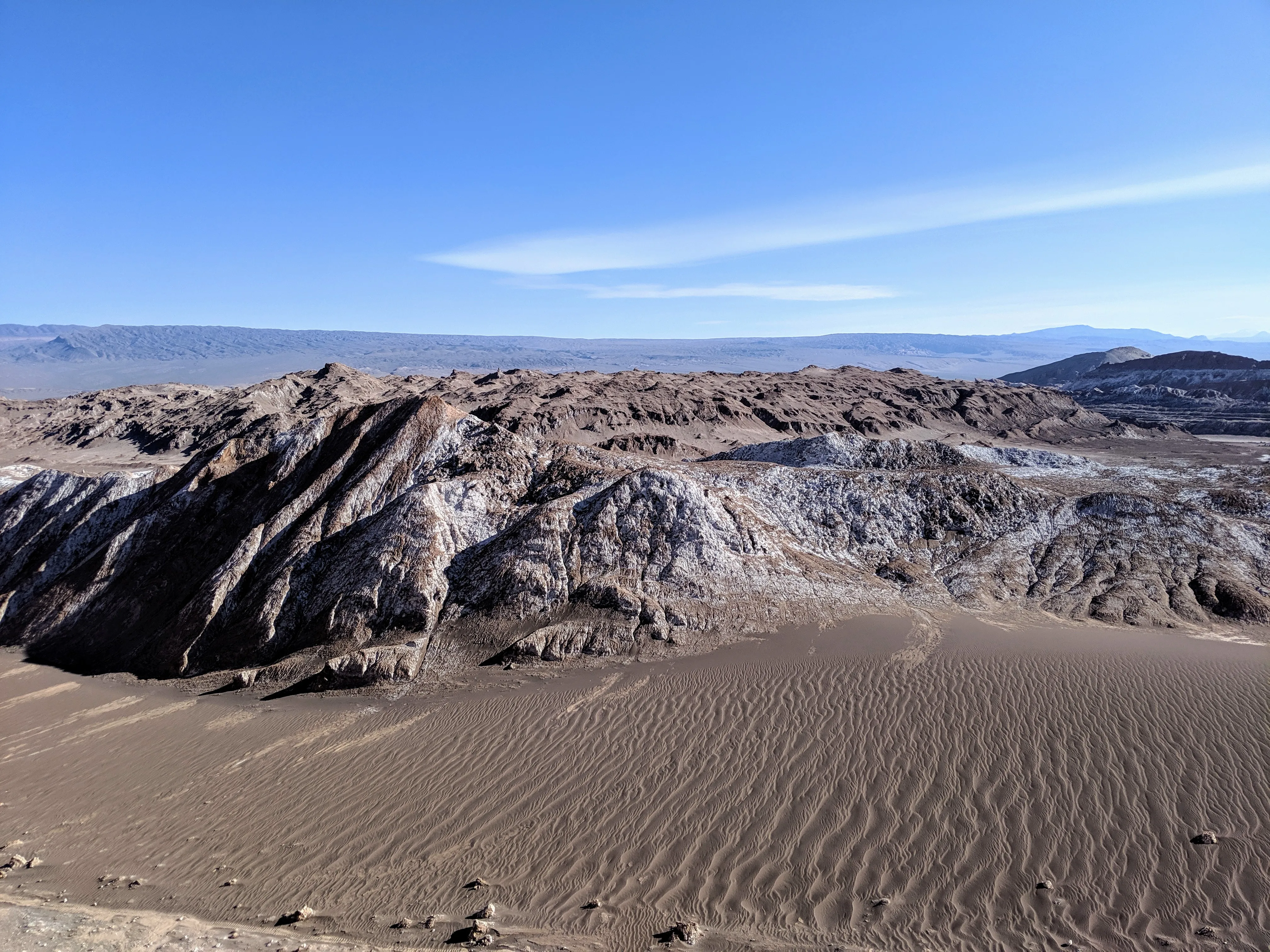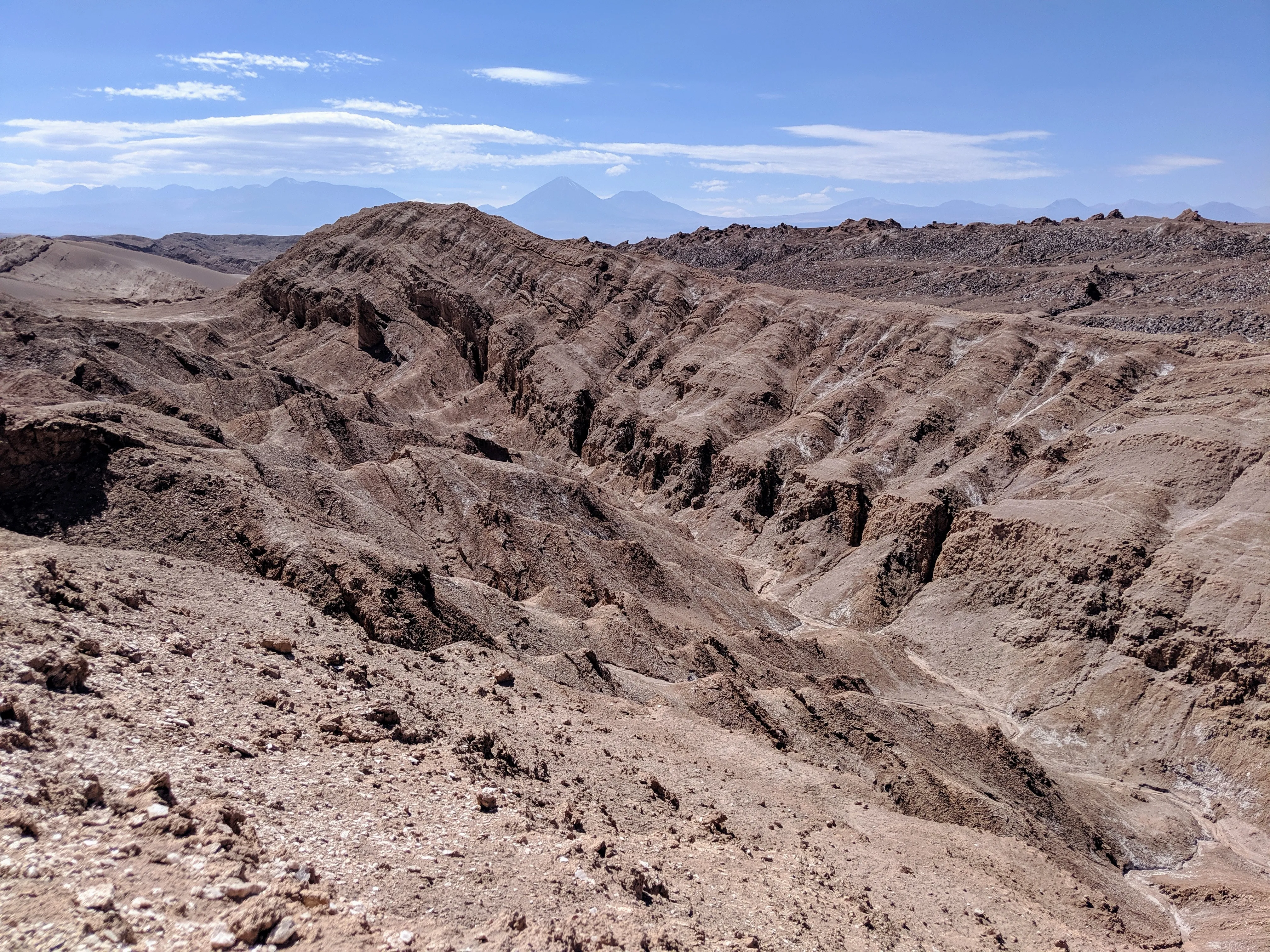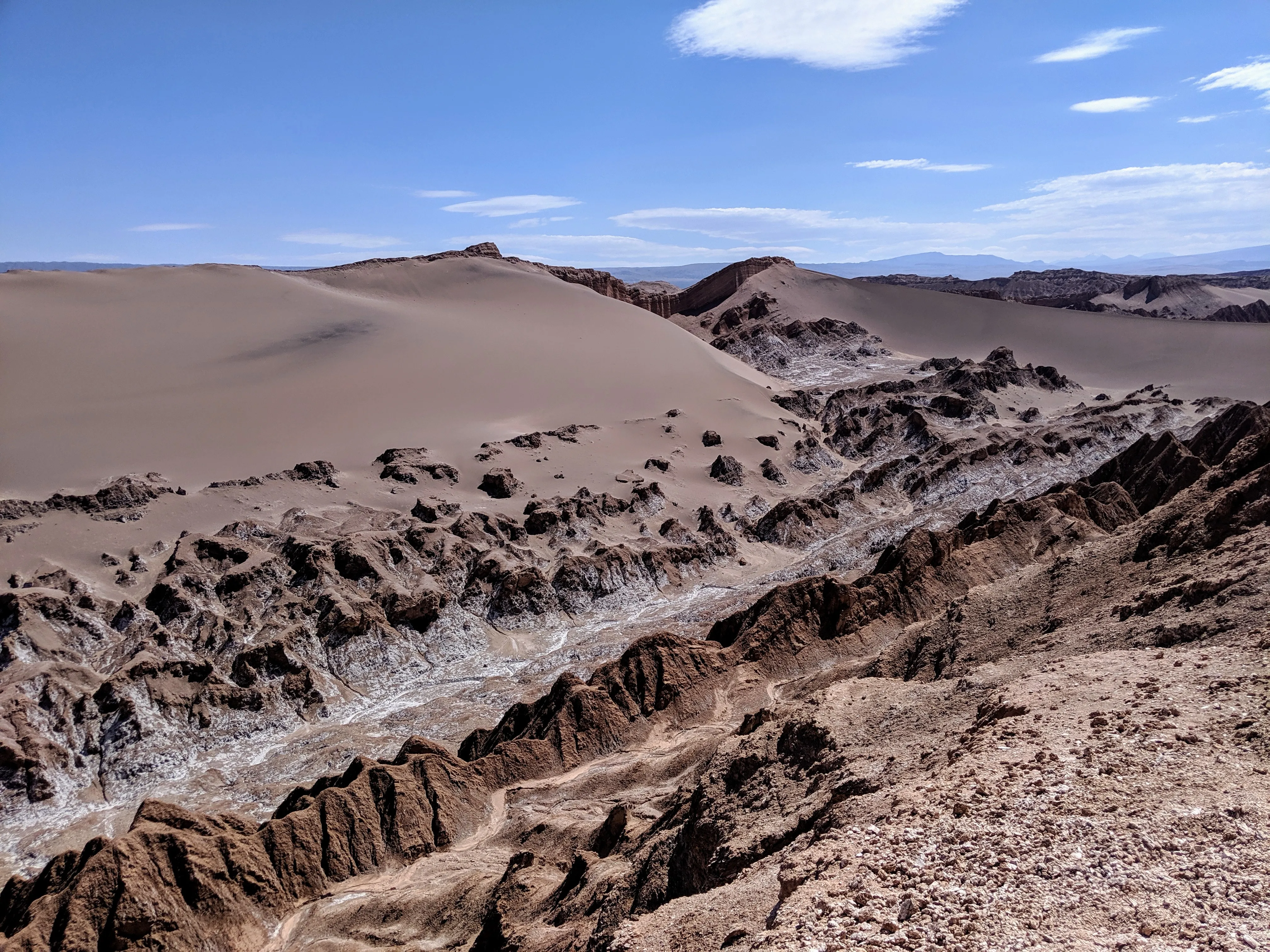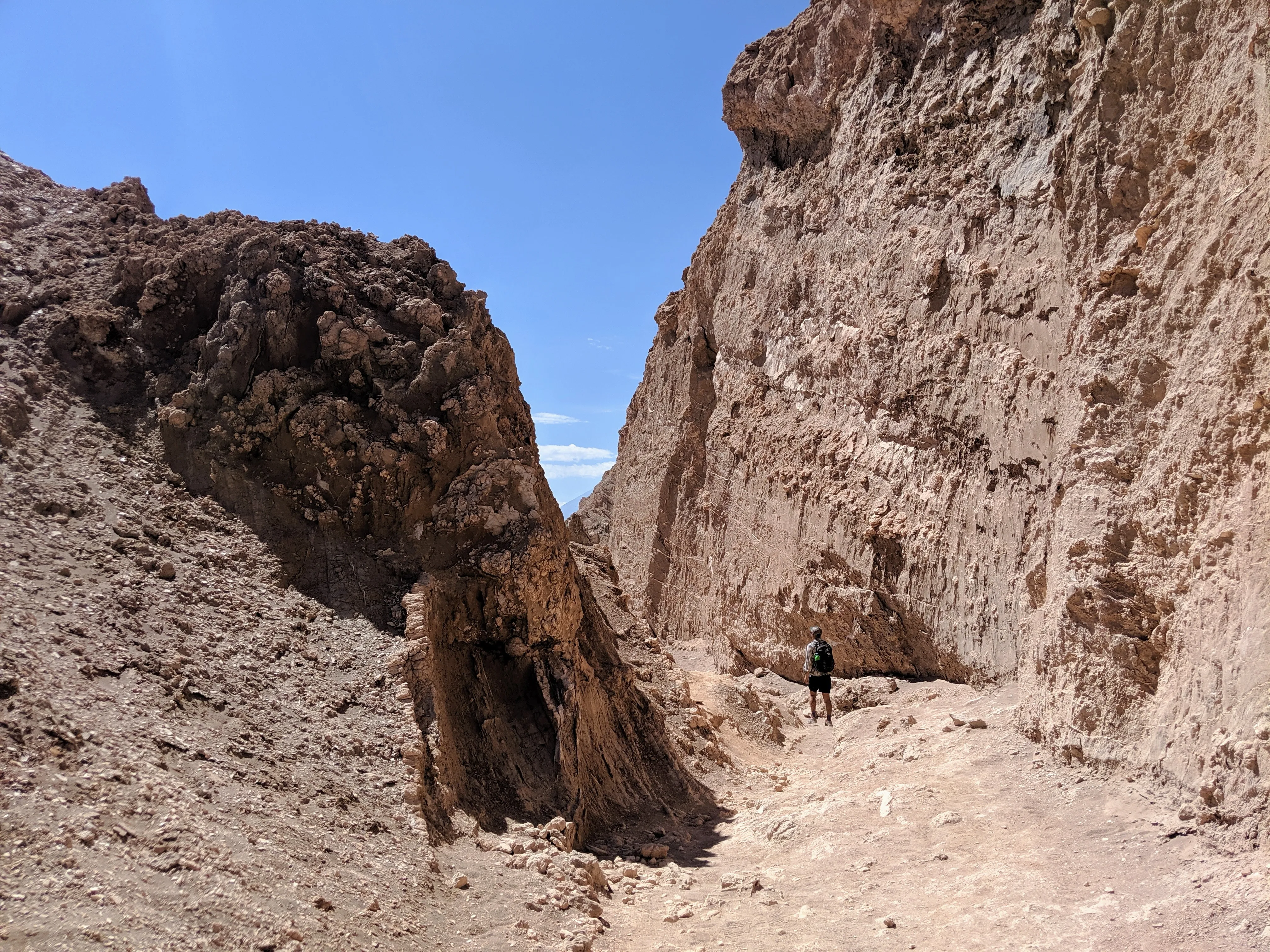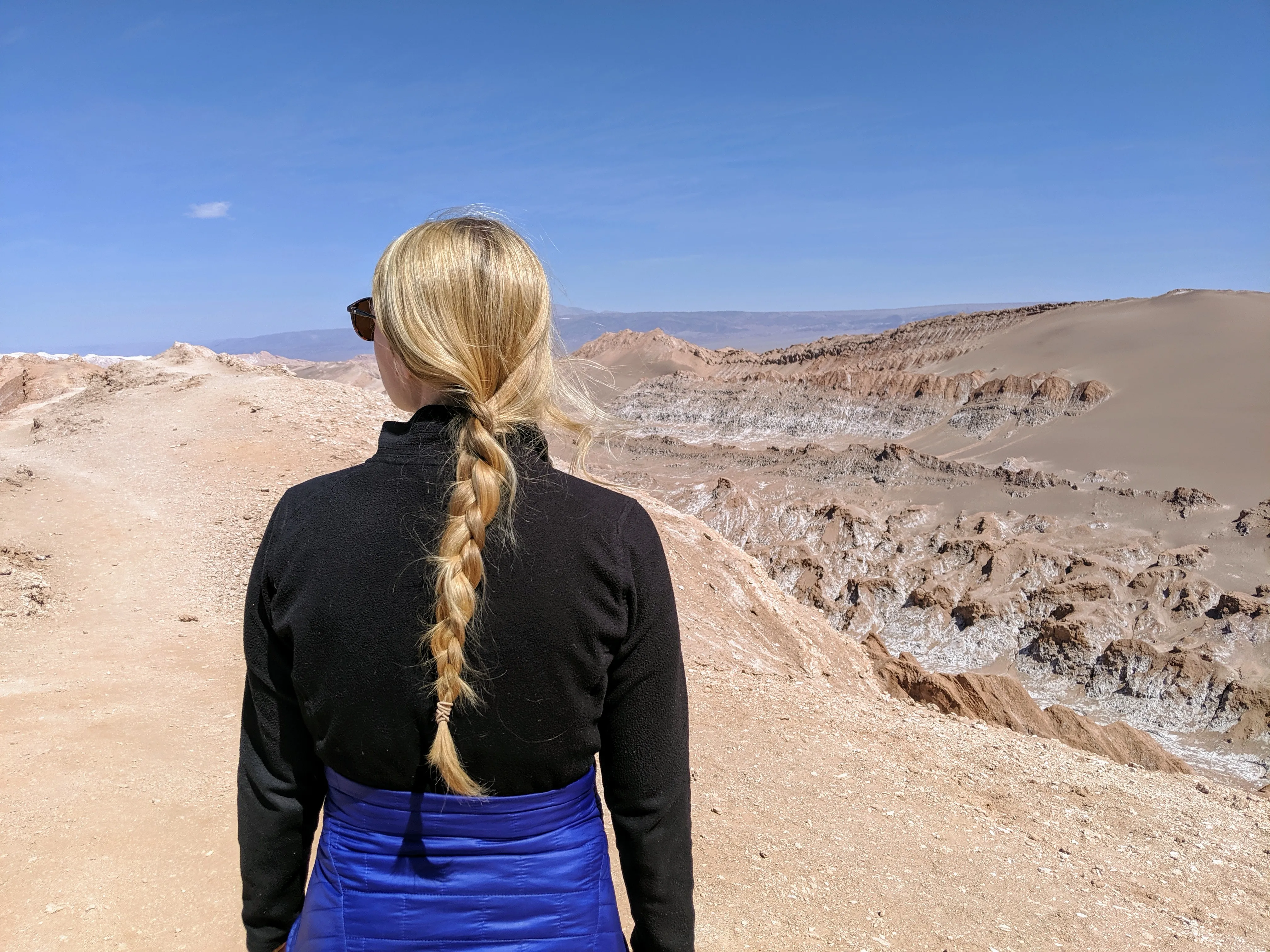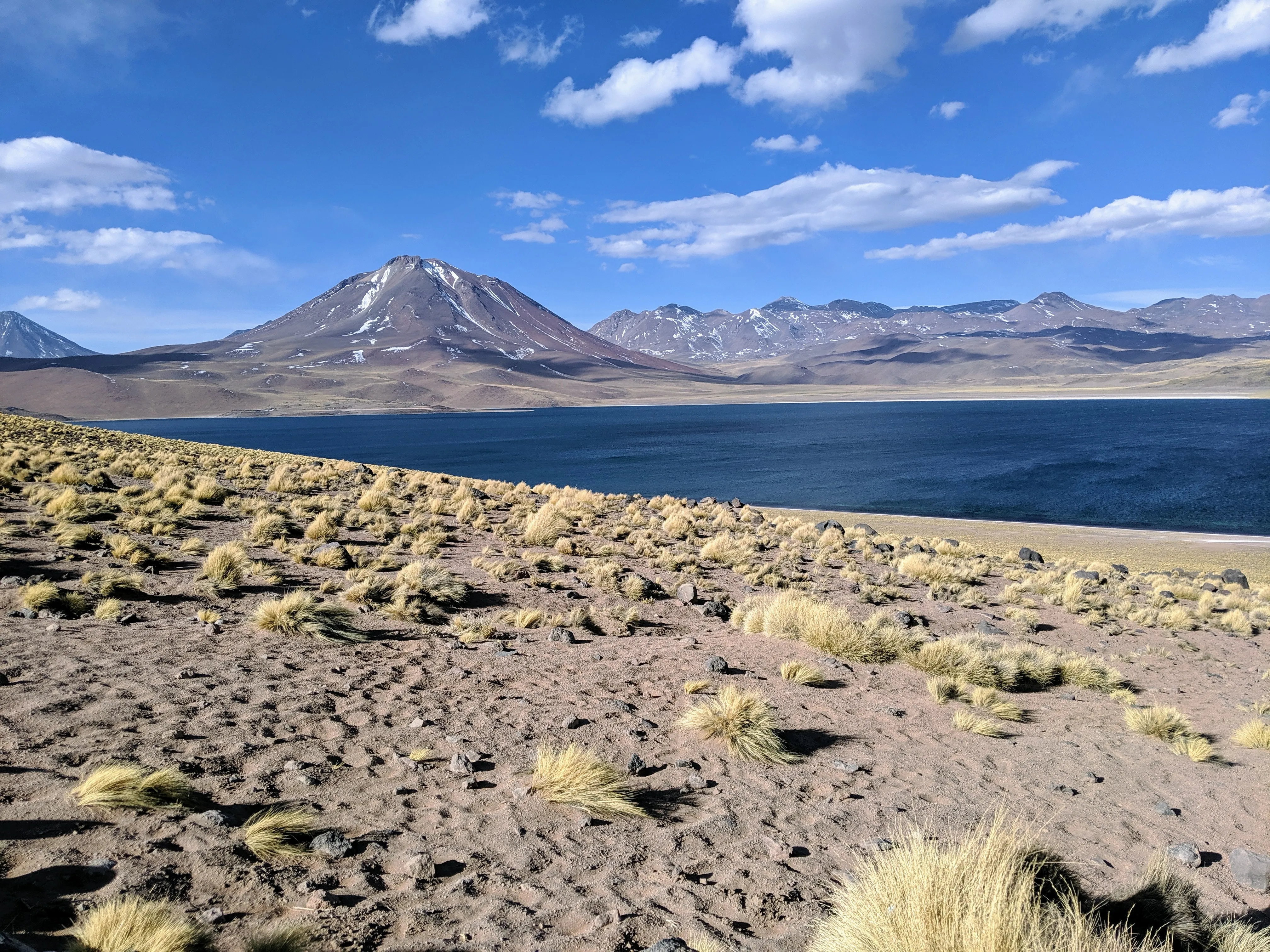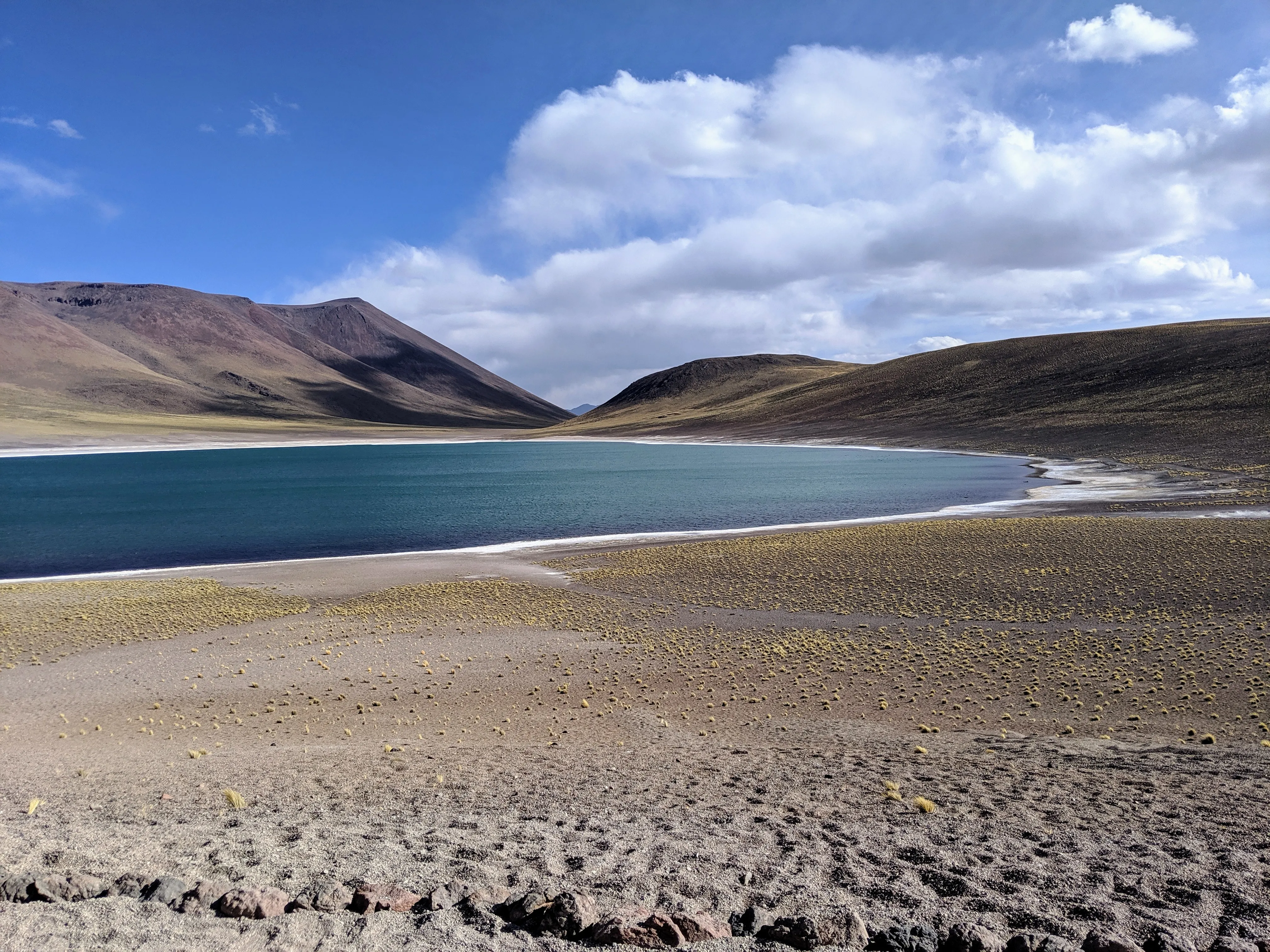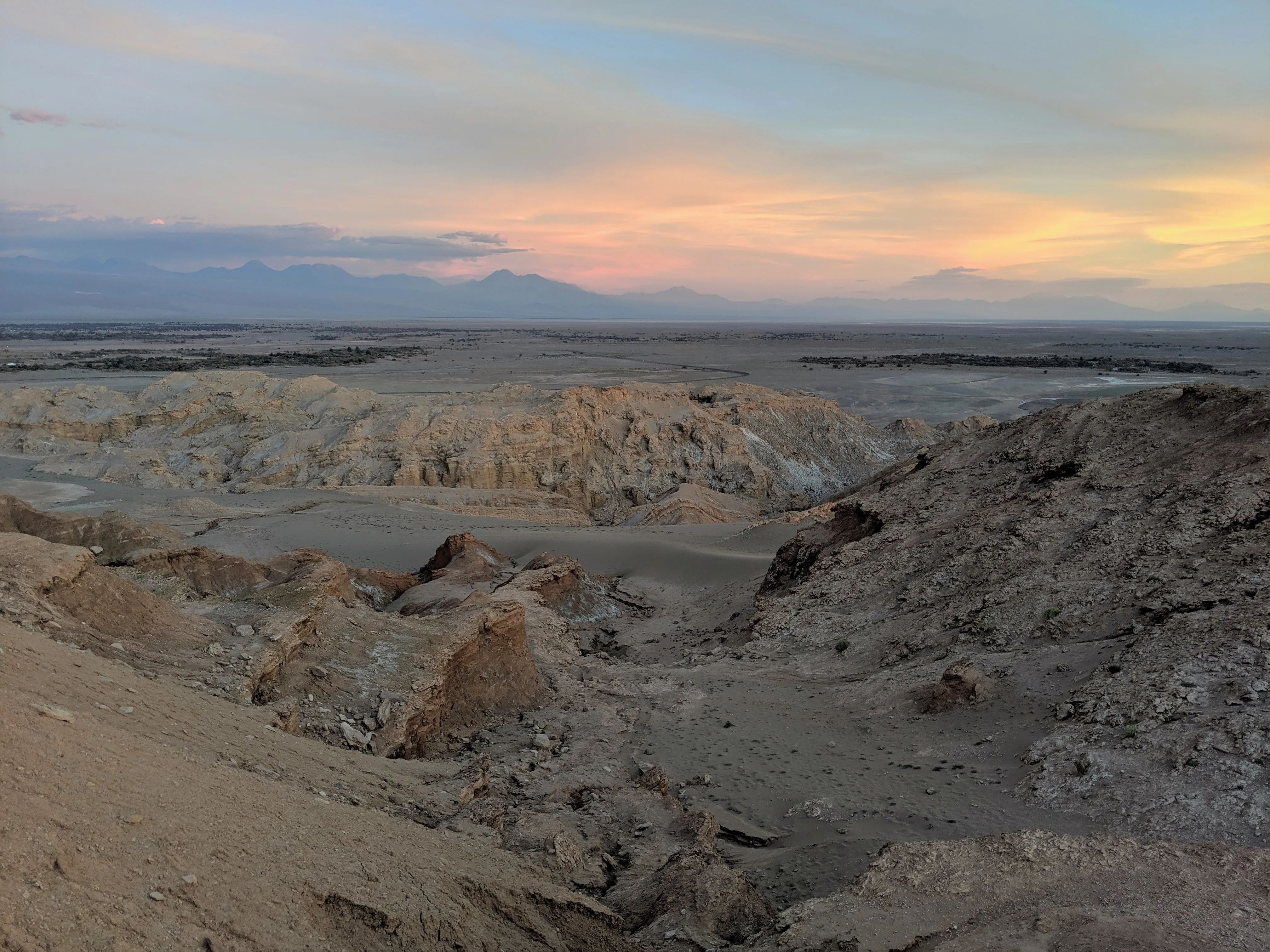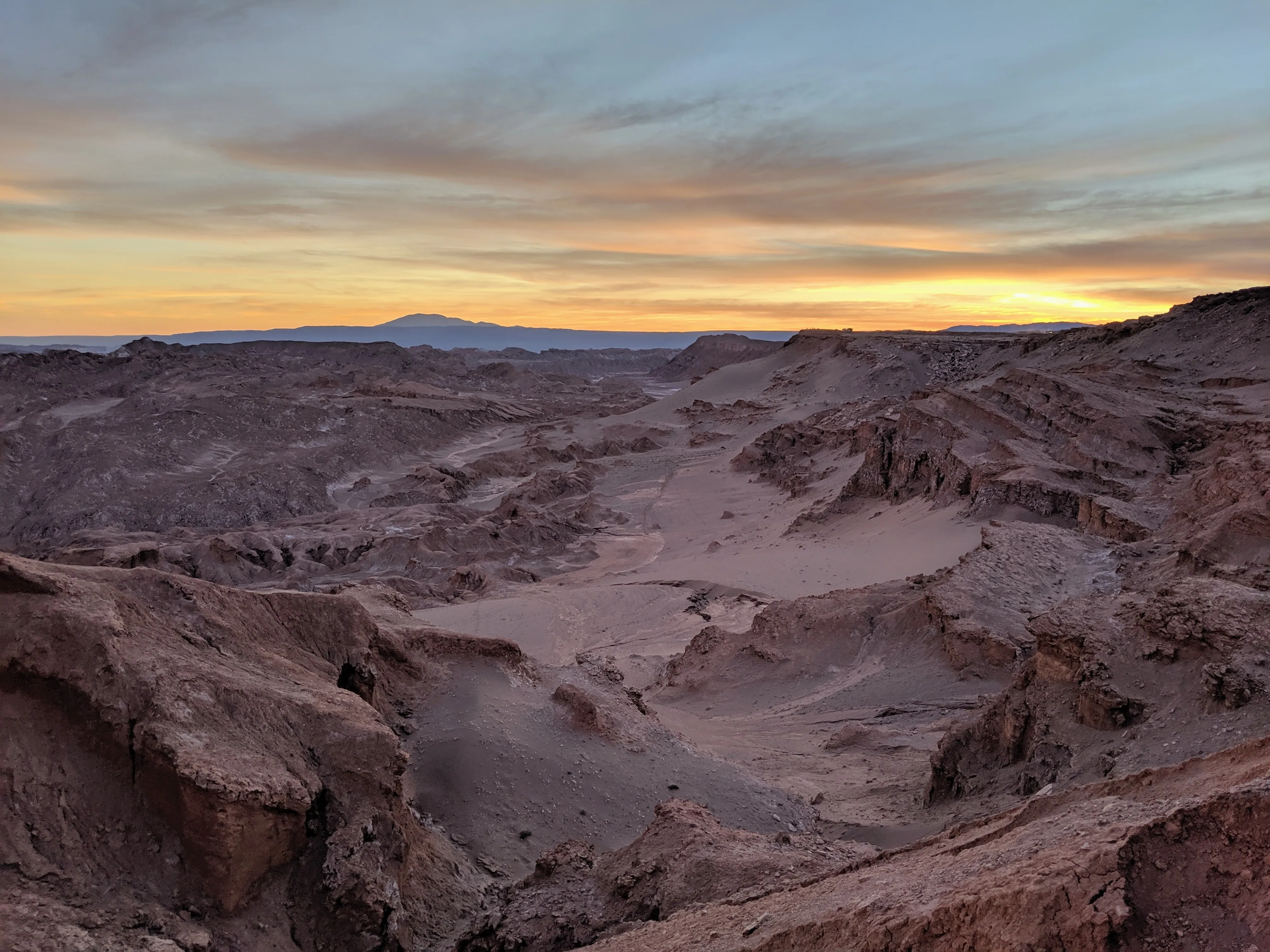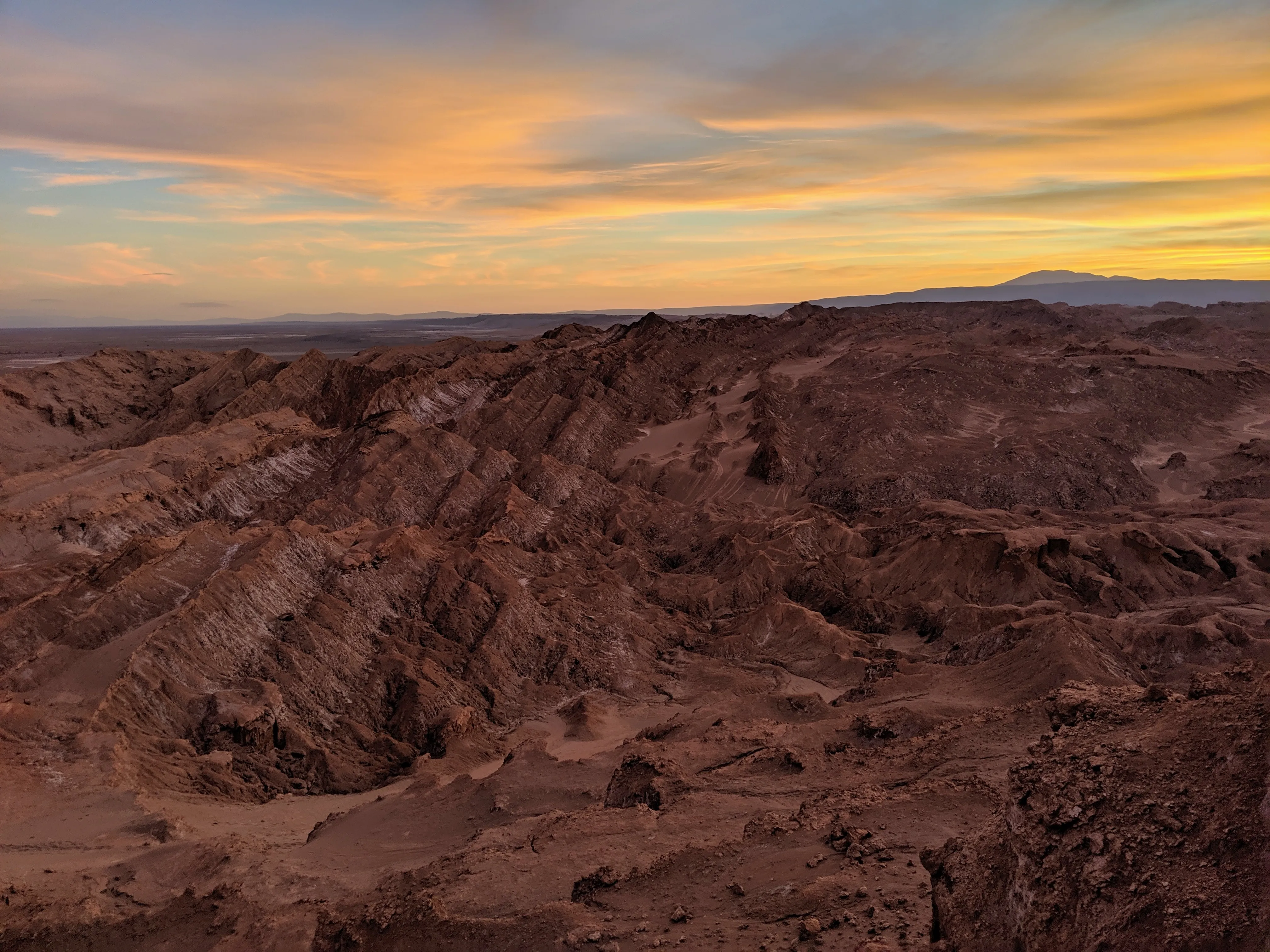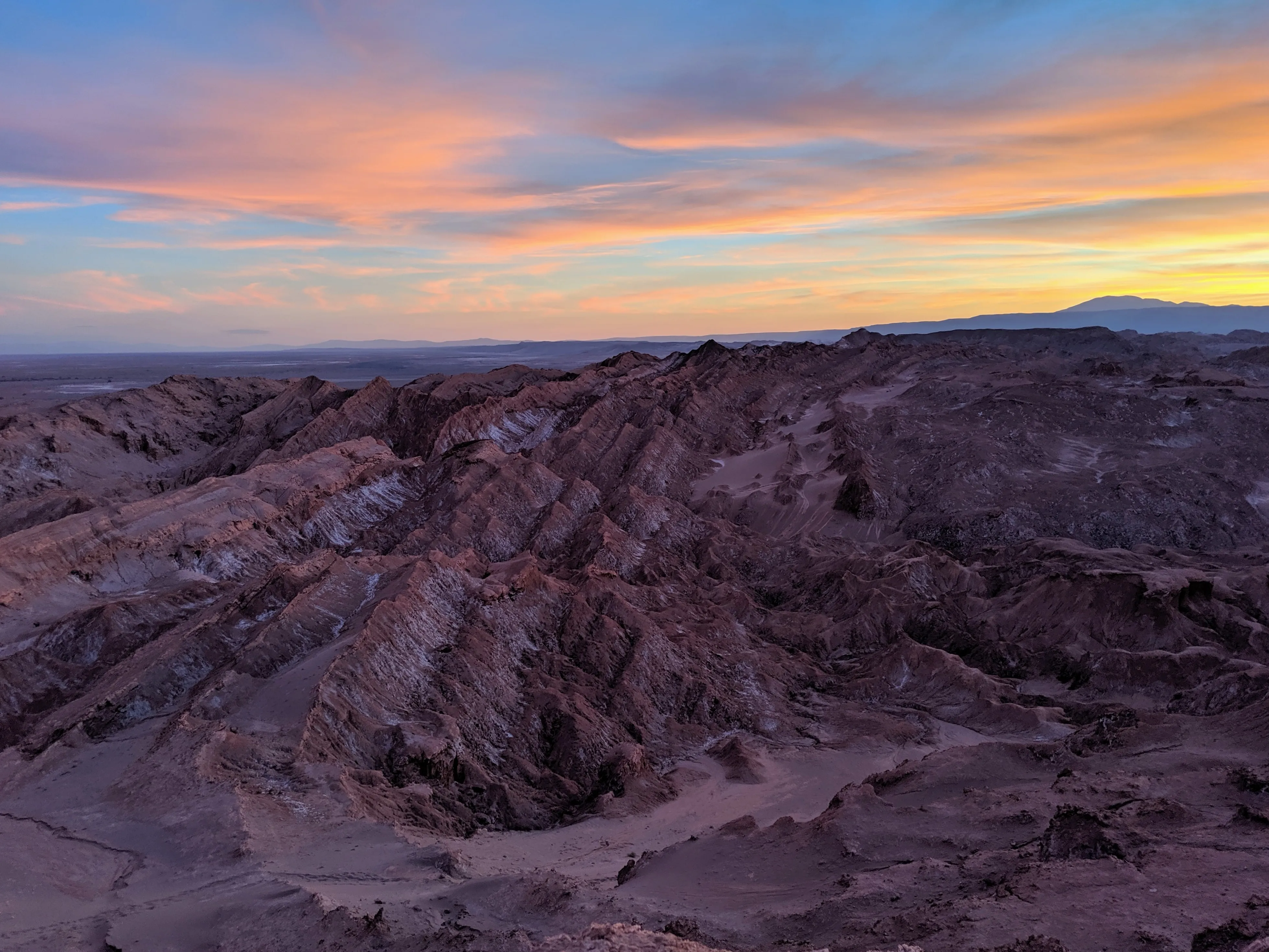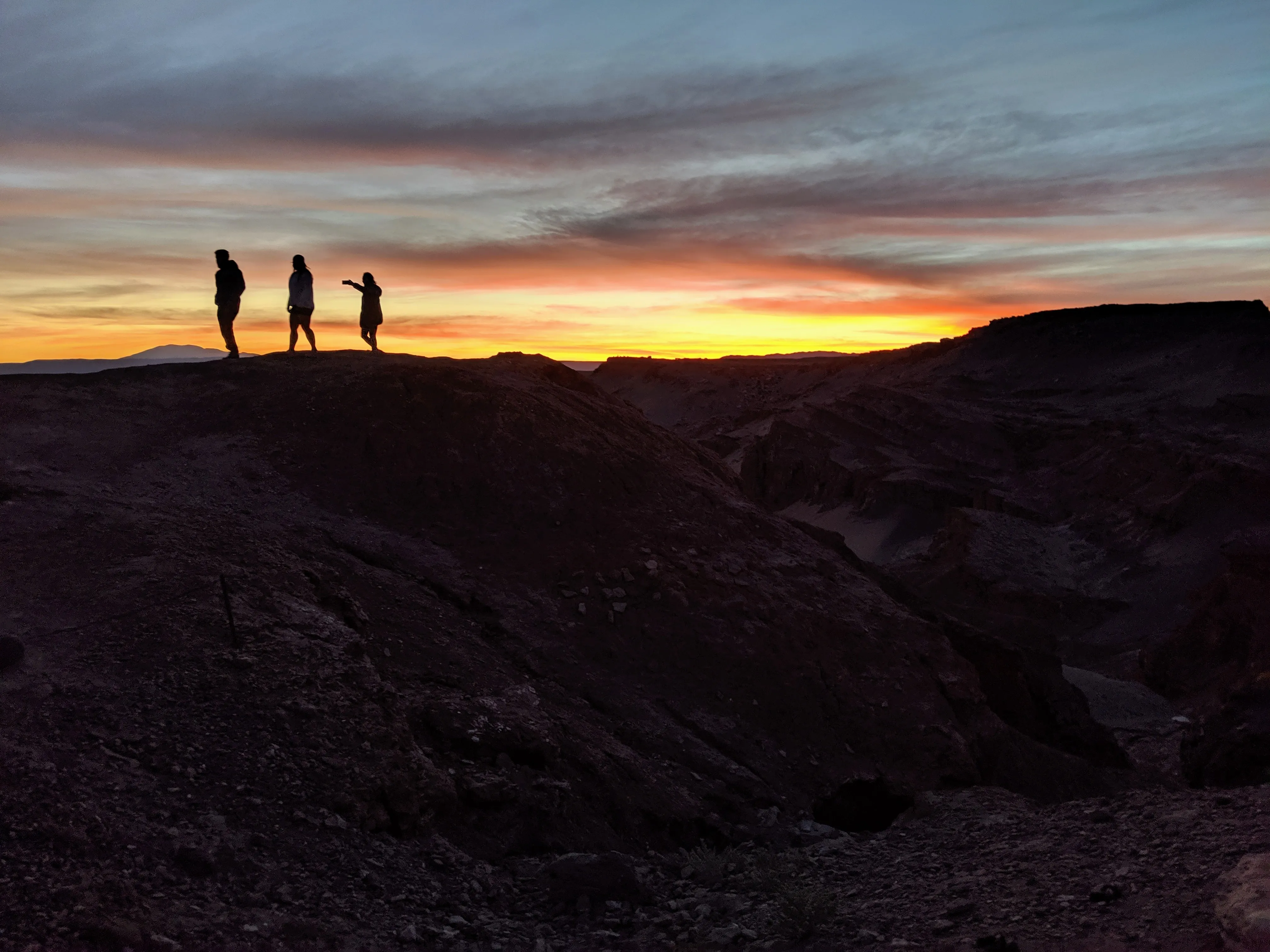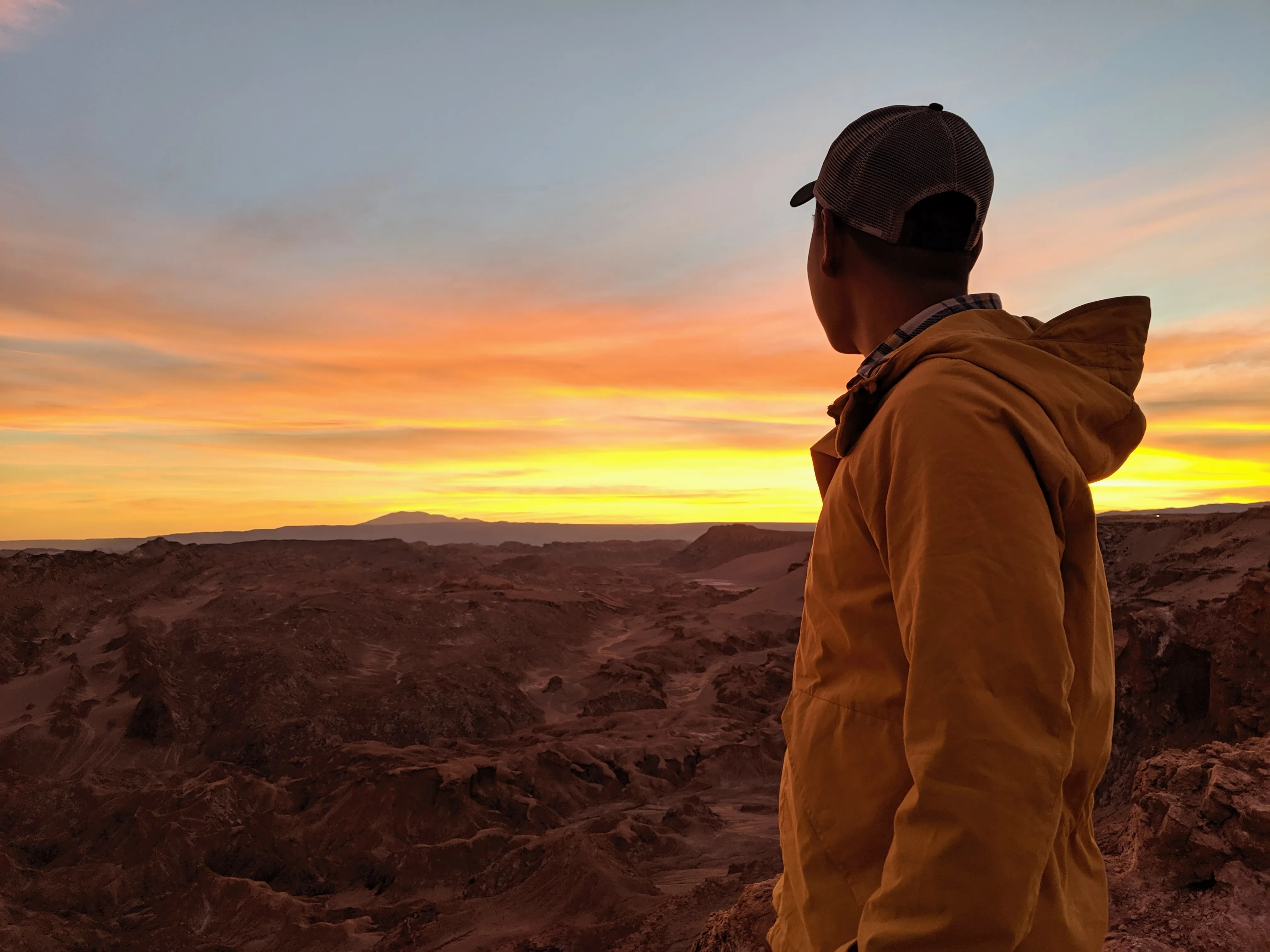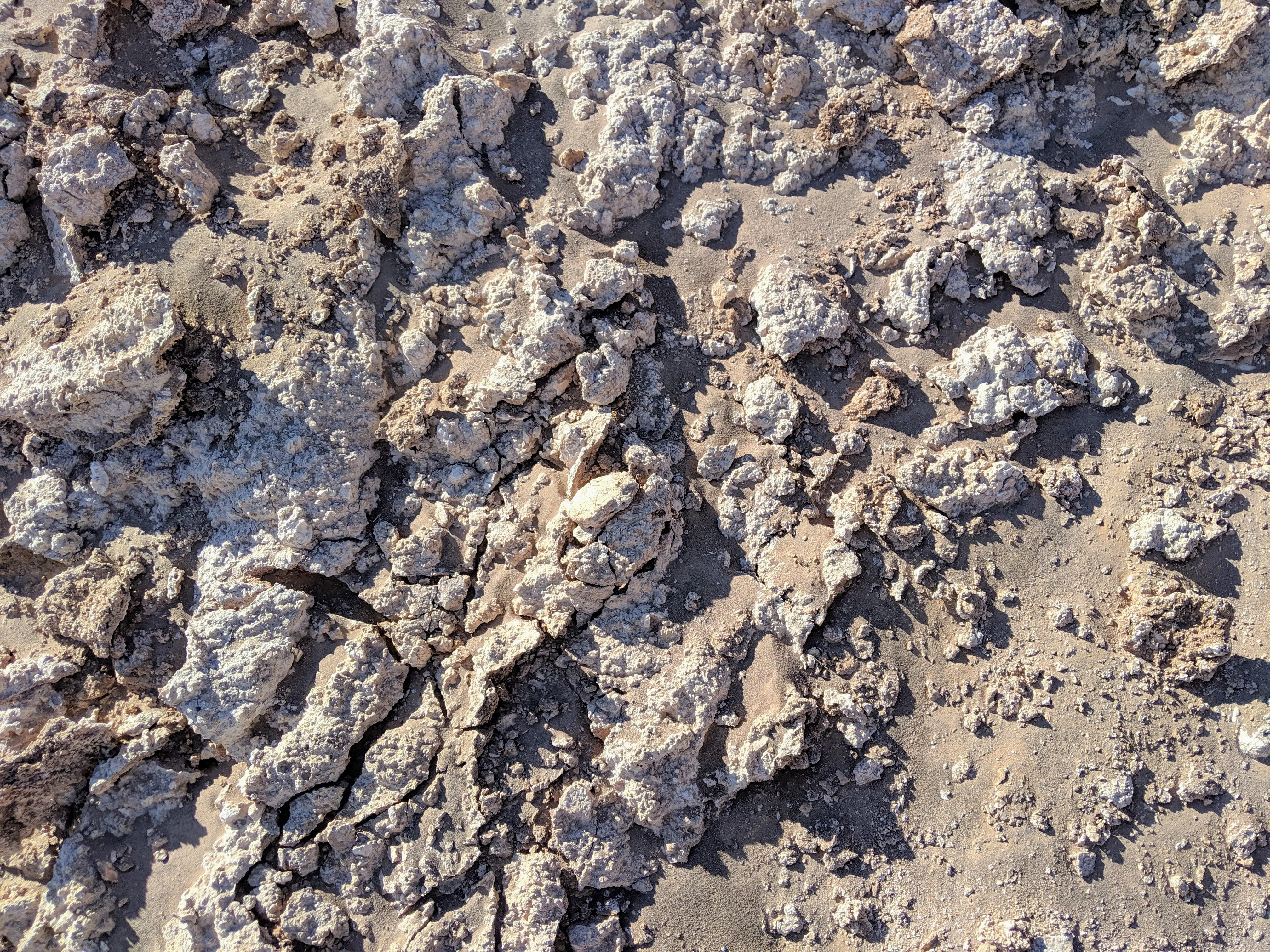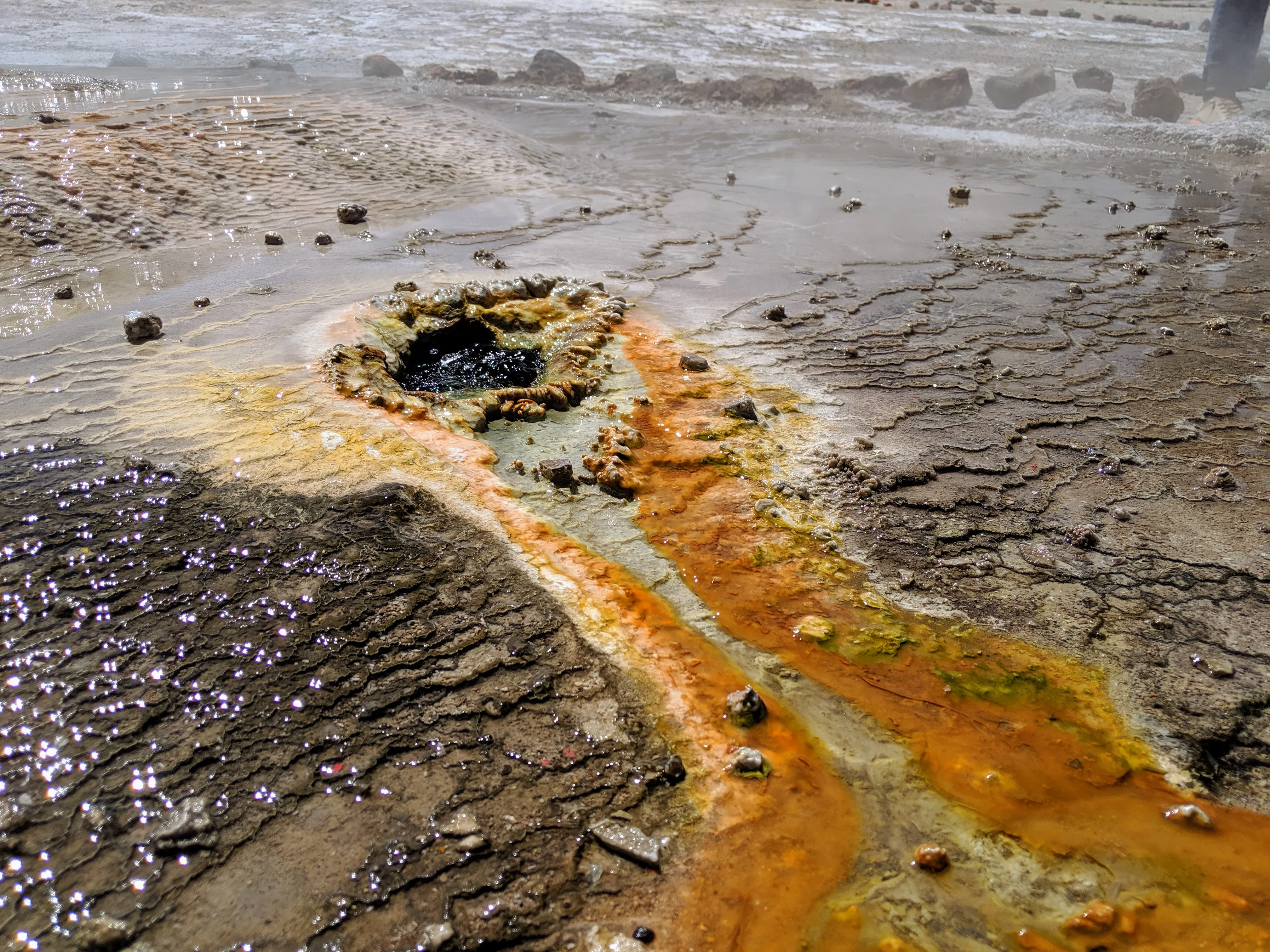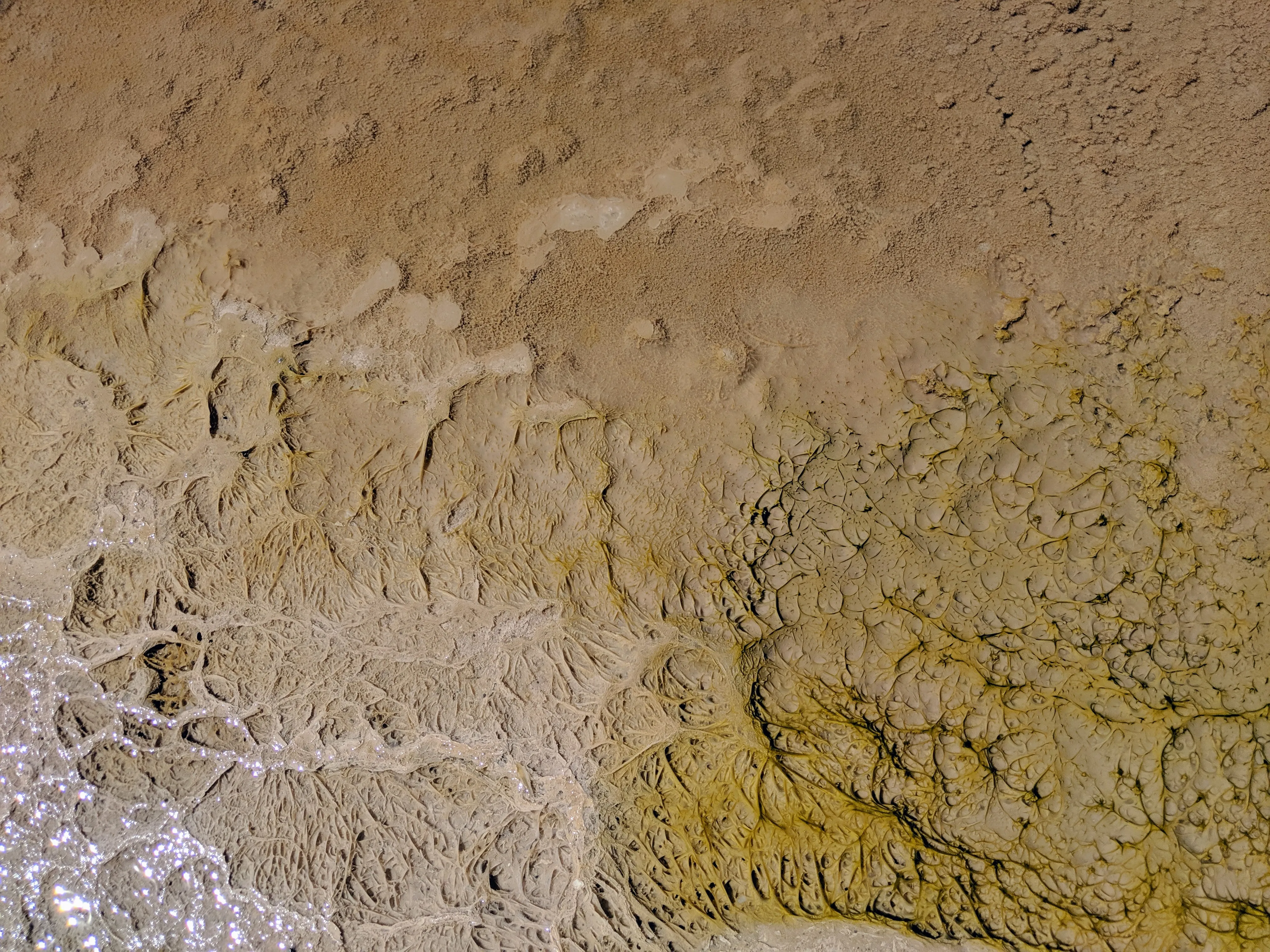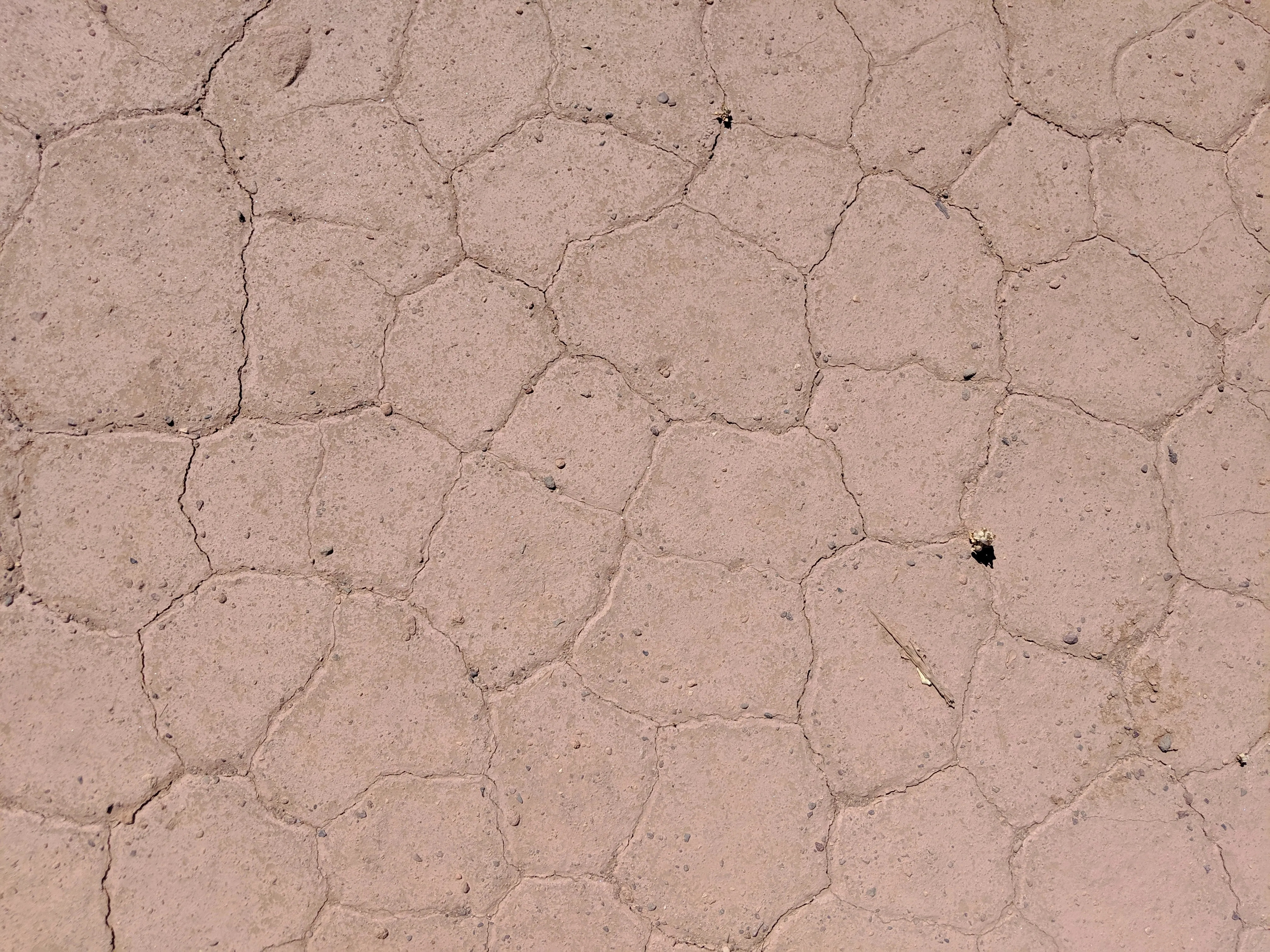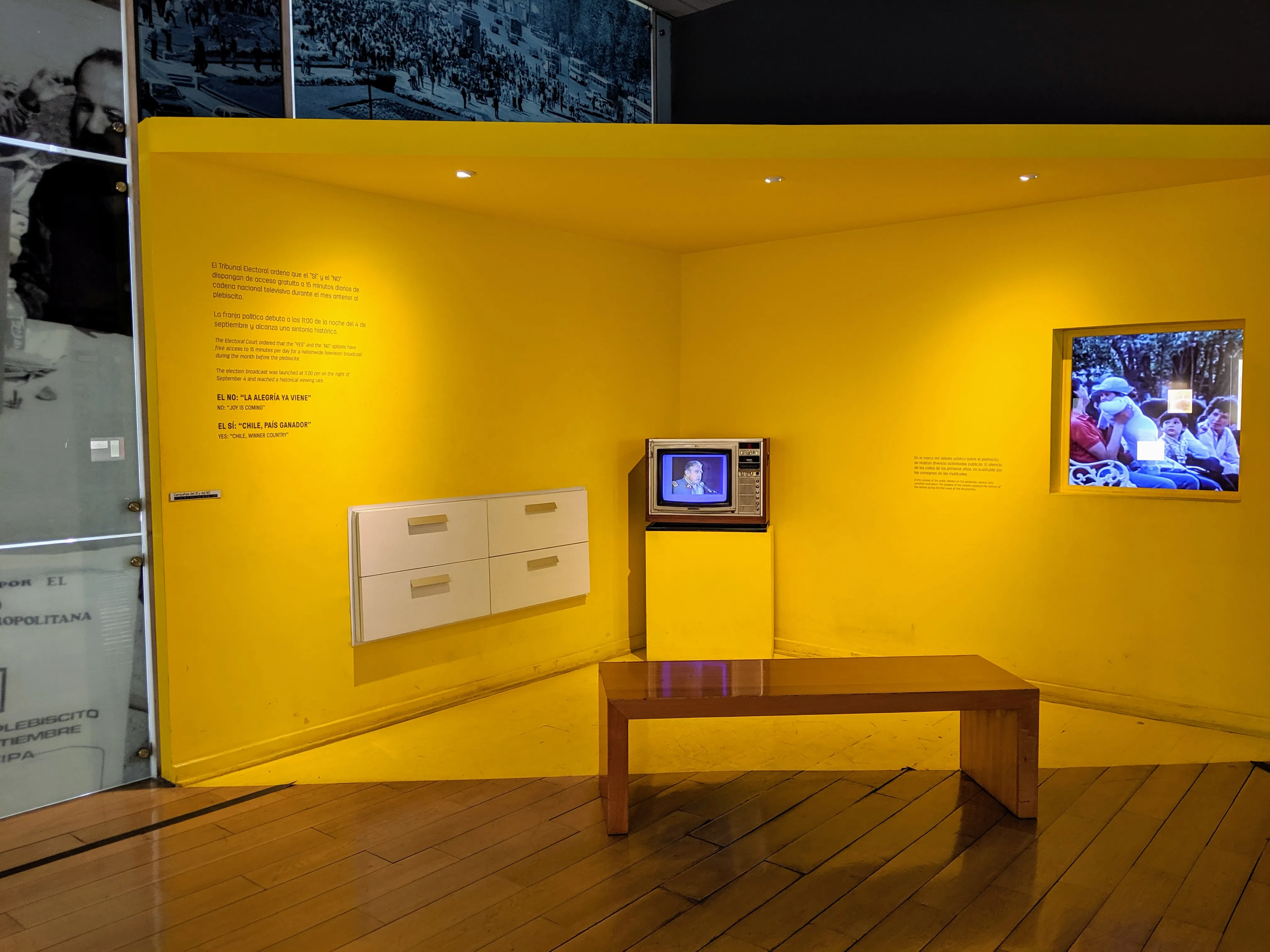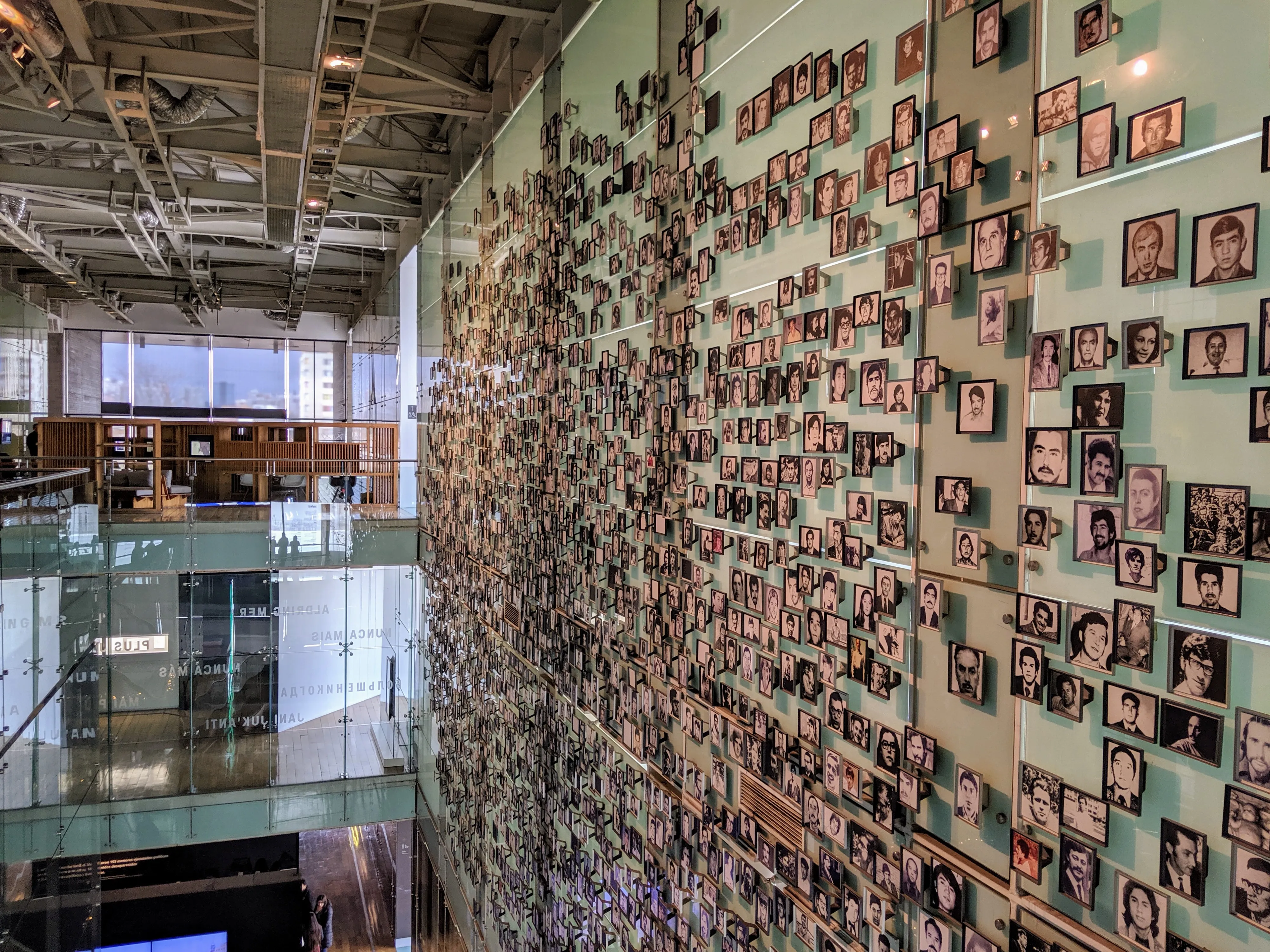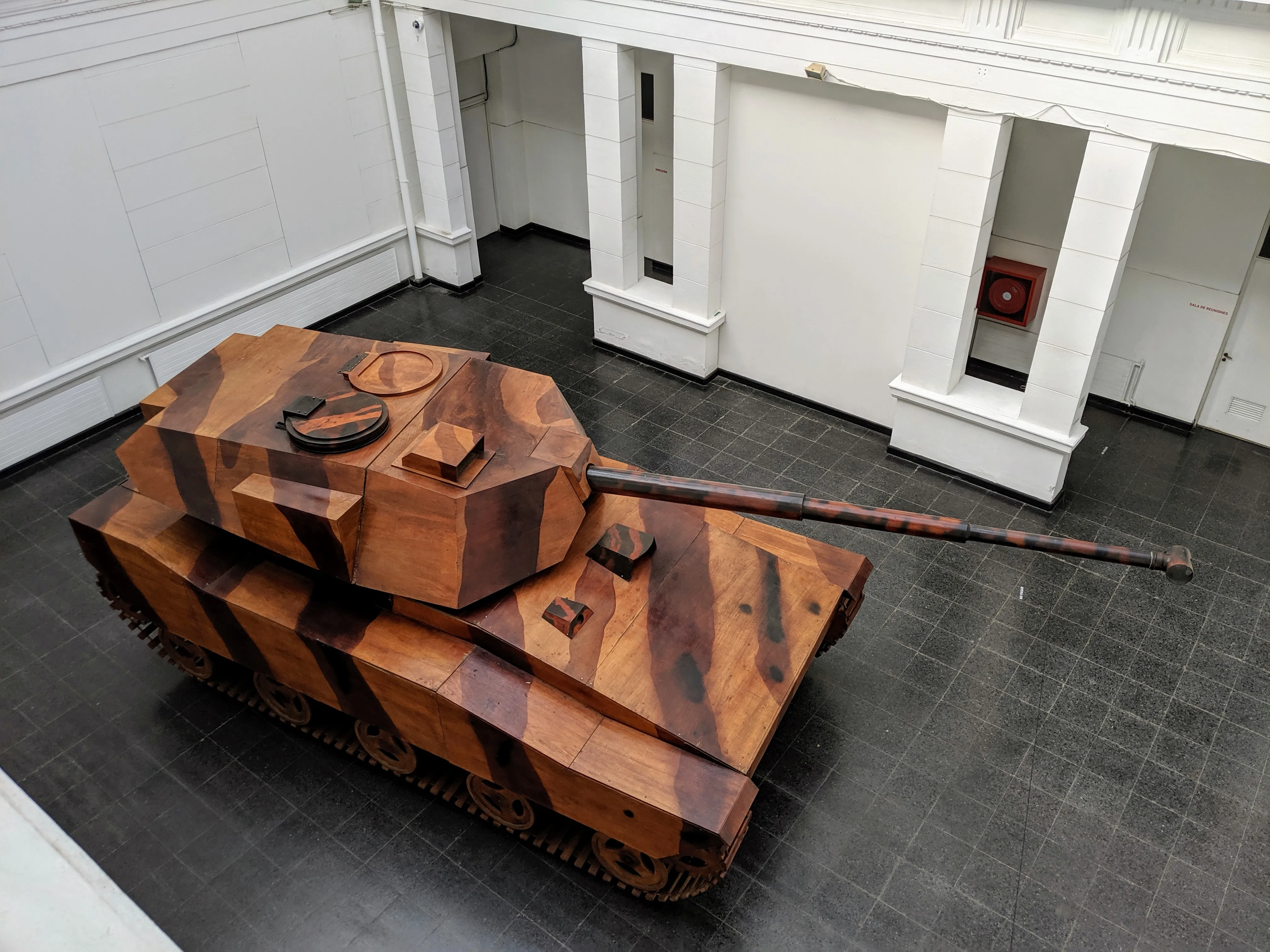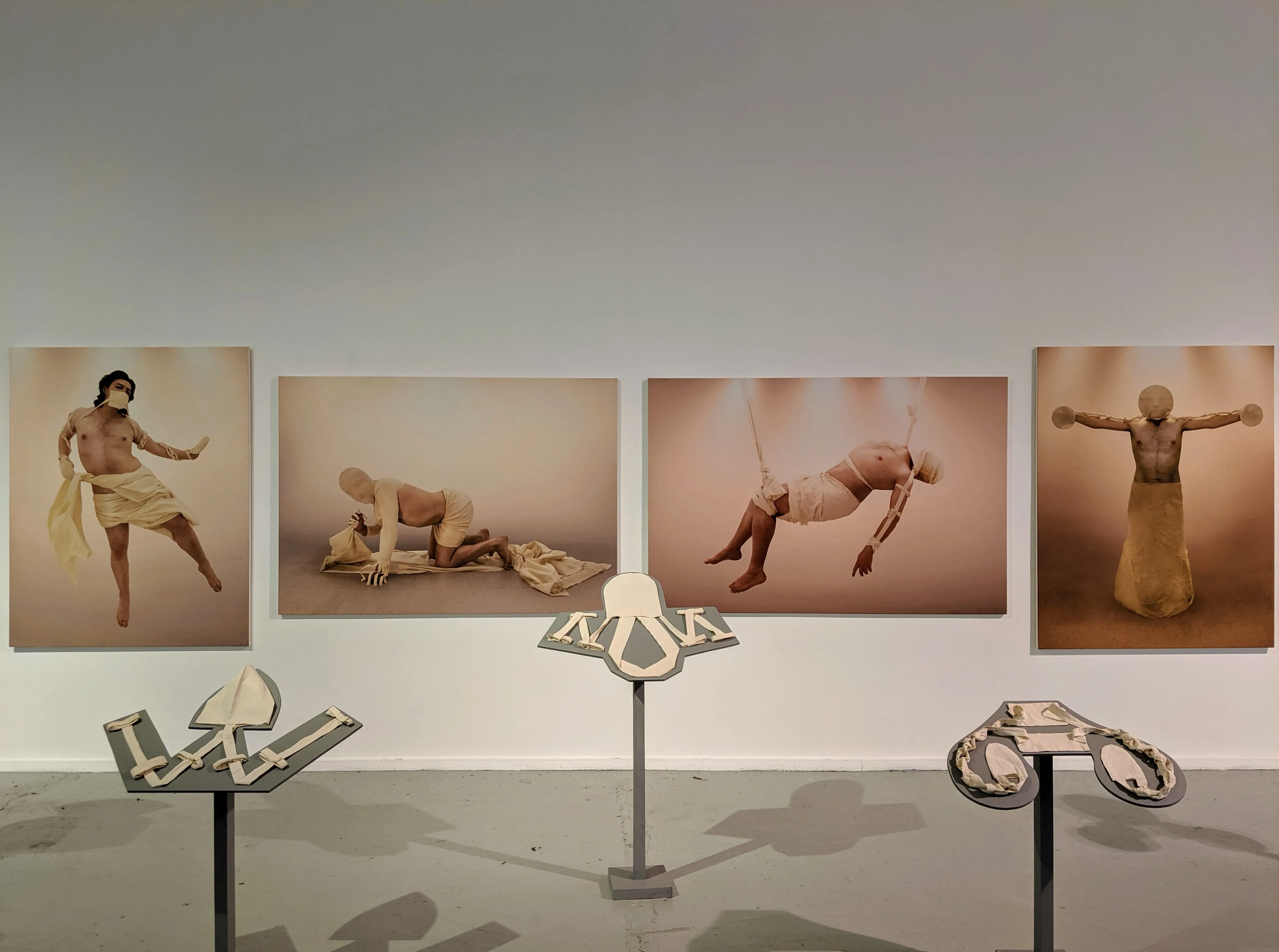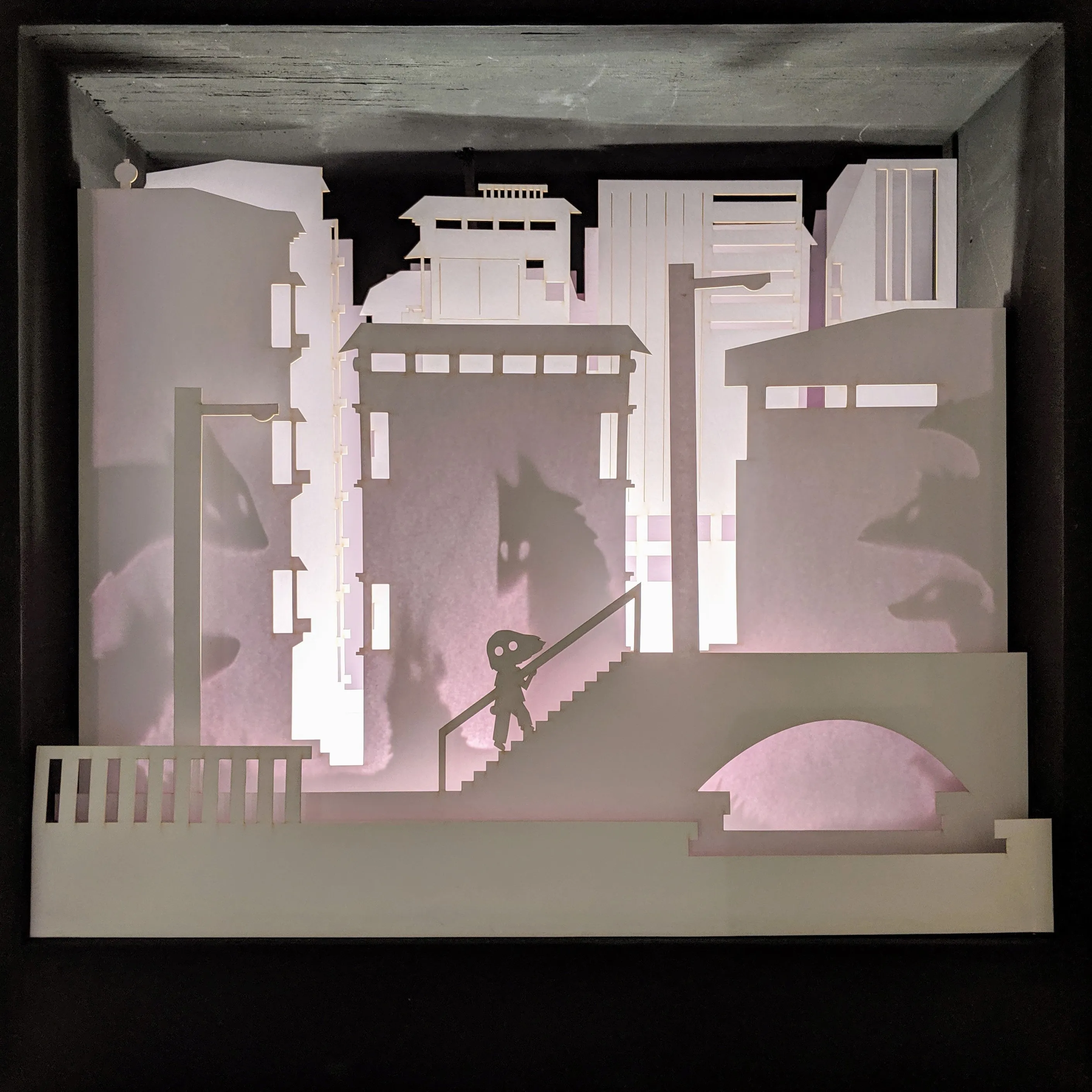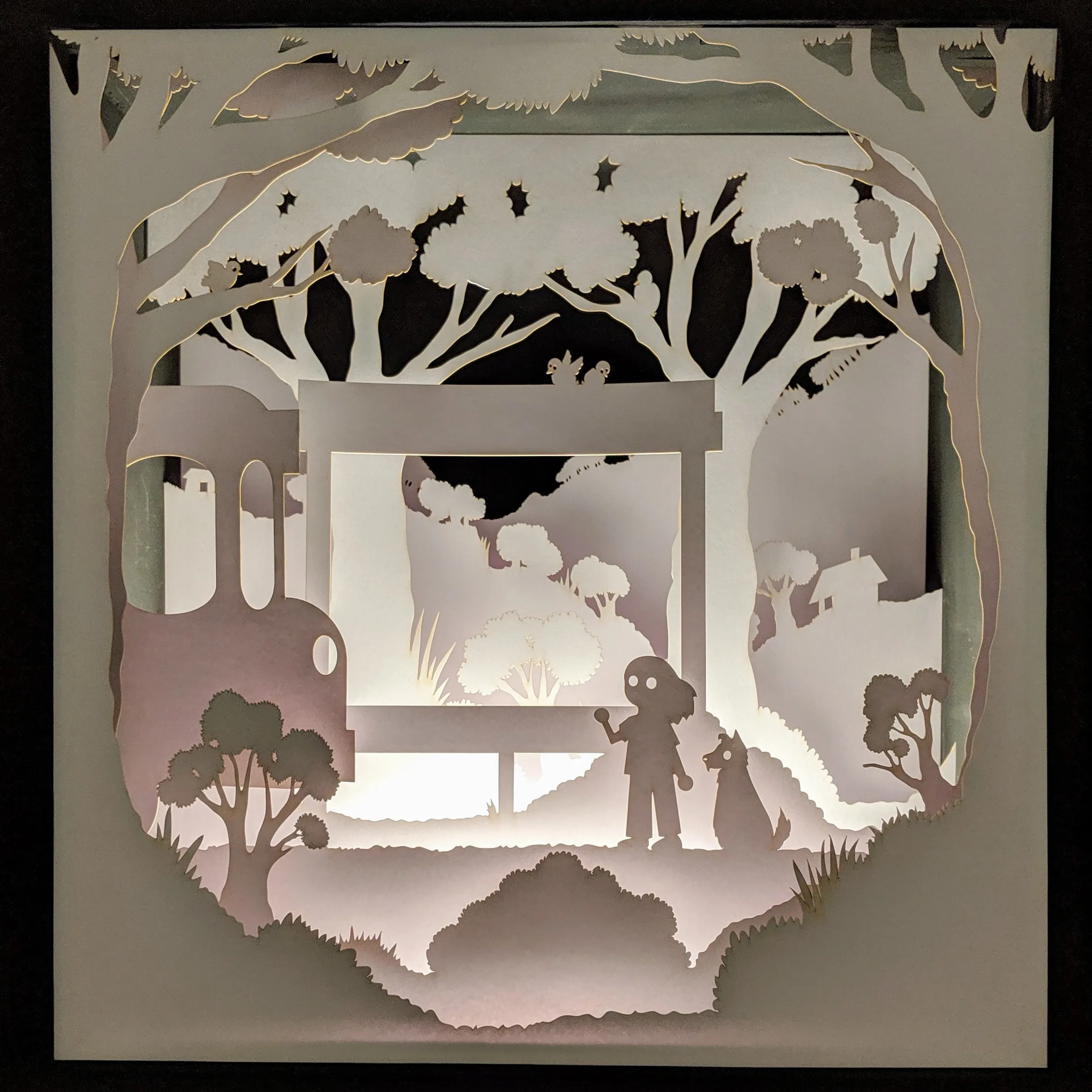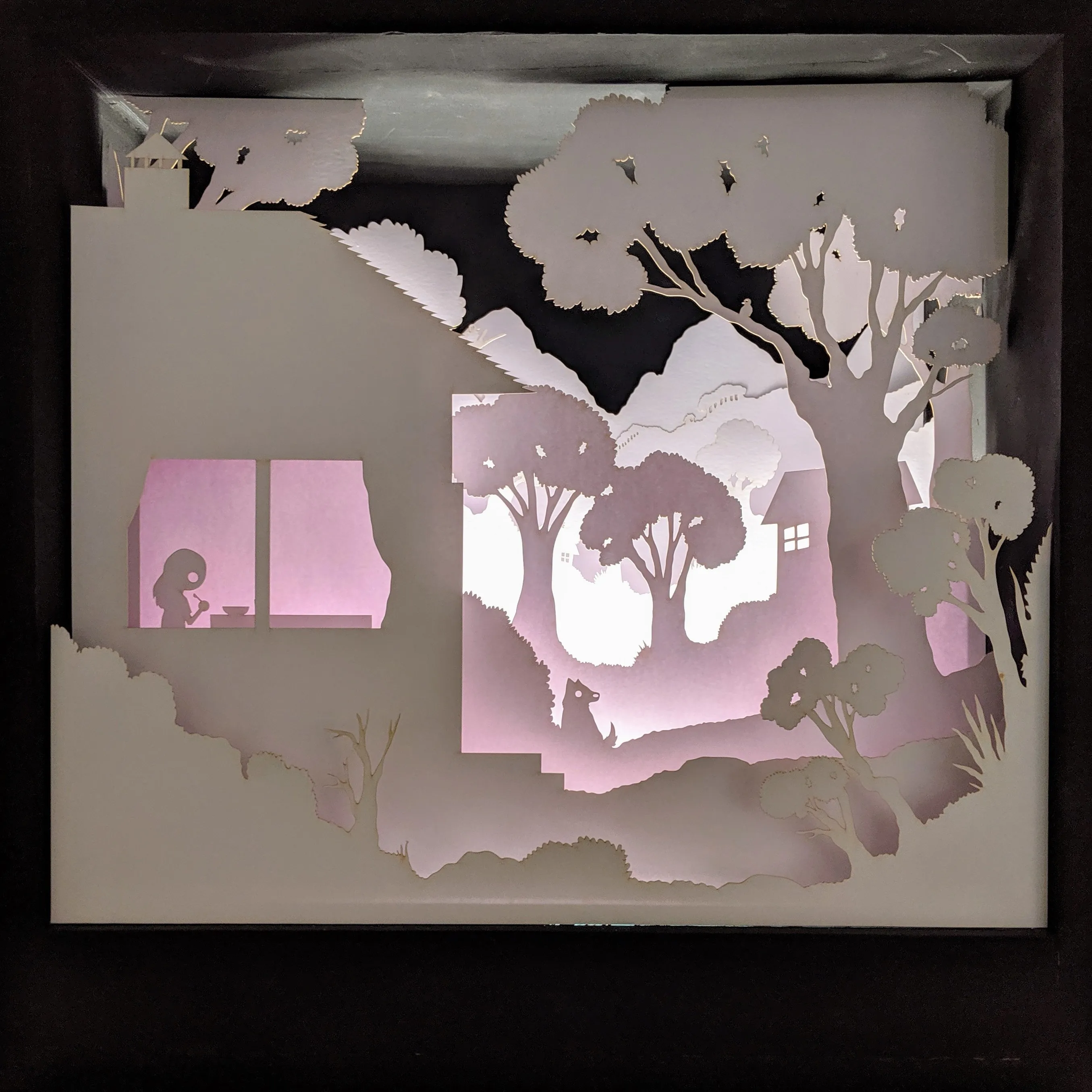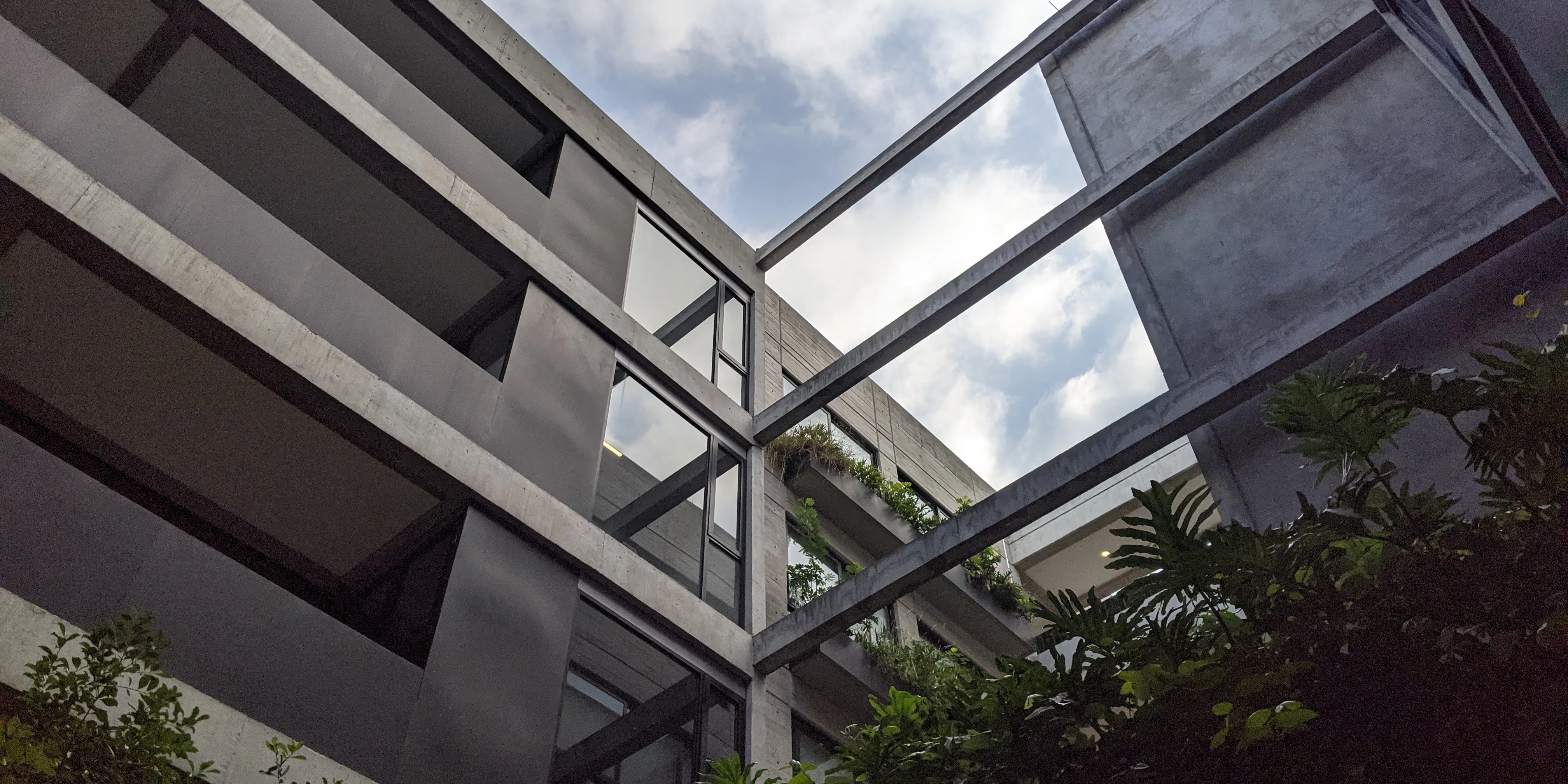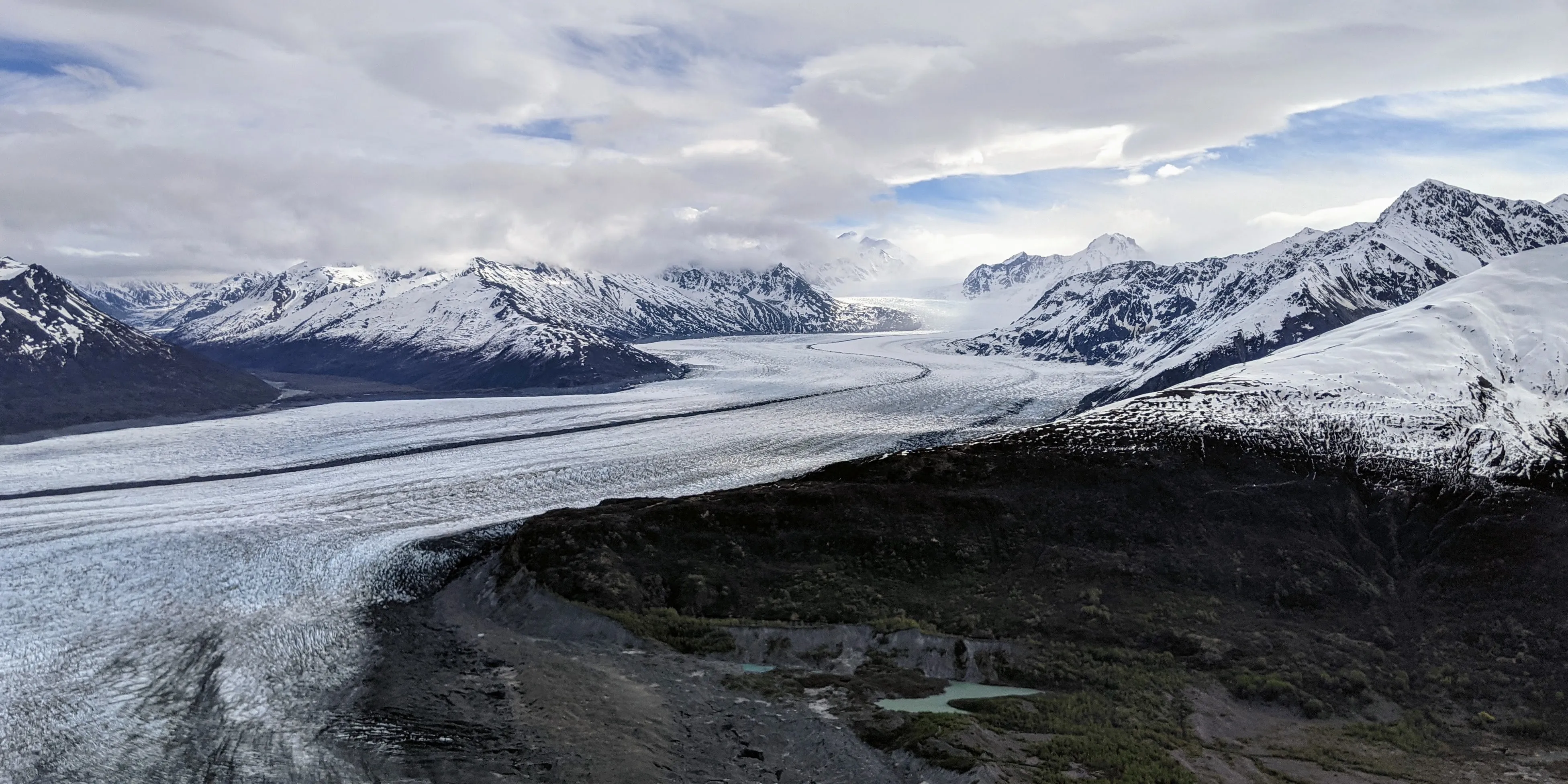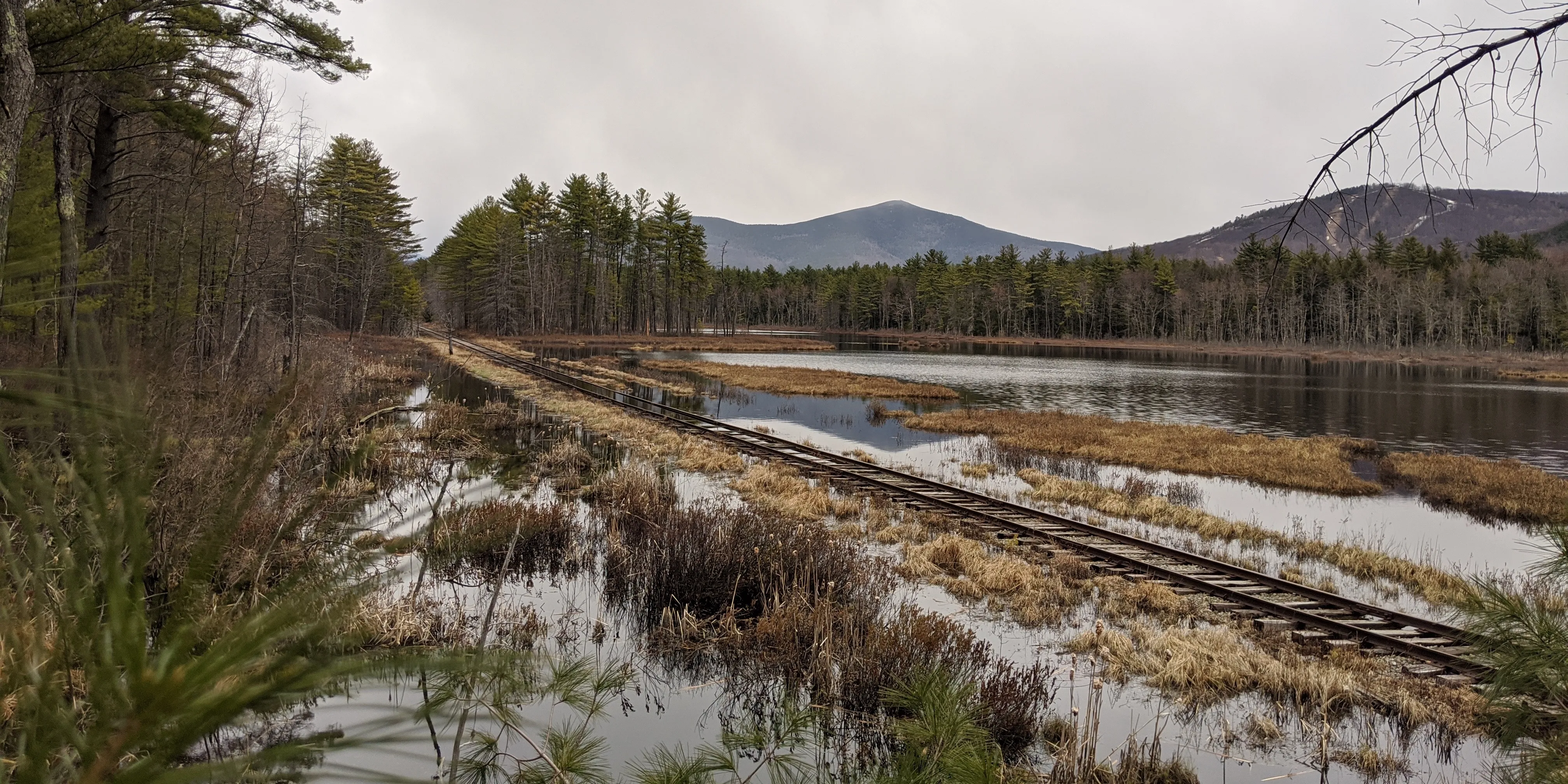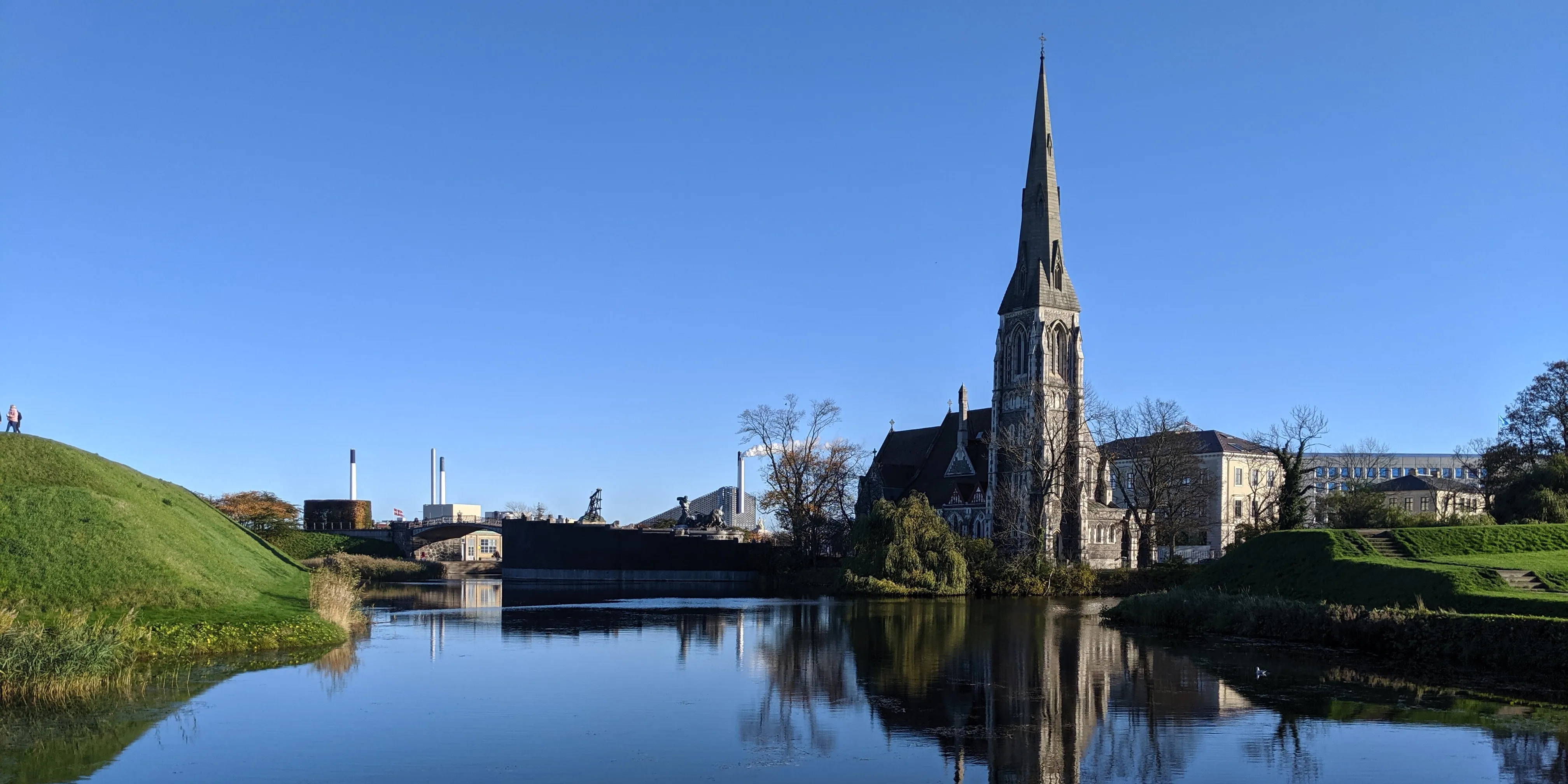Visiting Santiago, Valparaíso, Viña del Mar, and San Pedro de Atacama from Aug 2019 to Sep 2019.
In the last few days of summer, I escaped from New York to Chile with my friend Yih-Jen, meeting up with our San Francisco-based friends Jeff and Emily in a shared layover in Atlanta. The trip, while fantastic, was admittedly poorly timed. After planning the getaway months earlier, I later made plans for two other international summer trips:
Israel and Jerusalem in June
and Japan in August. By the end of the summer, I was a bit tired of the travel, and feeling behind on work. (It was performance review season at work, just to top it off.)
By all reasonable logic, the trip should have been exhausting. A twelve hour flight, multiple cities, car rentals, some late-night domestic flights, and several days in the middle of the desert. Despite all of that, I found my time in Chile regenerative. The cultural history in Santiago, the vibrancy of Valparaíso, and the diversity of landscape in San Pedro de Atacama each gave me a different kind of energy. Plus, a great group of friends will make any trip worthwhile.
Santiago
To make things easy, we split up the planning of our trip by section: I was in charge of the restaurants, museums, and other site seeing in the cities (Santiago and Valparaíso), and Jeff led the nature sites in San Pedro. While I did a fair amount of research, much of our time in Santiago was spontaneous.
We started the trip with an ascent of the hill in Santa Lucía Park. The steeple of the church blends in with the surrounding skyscrapers.
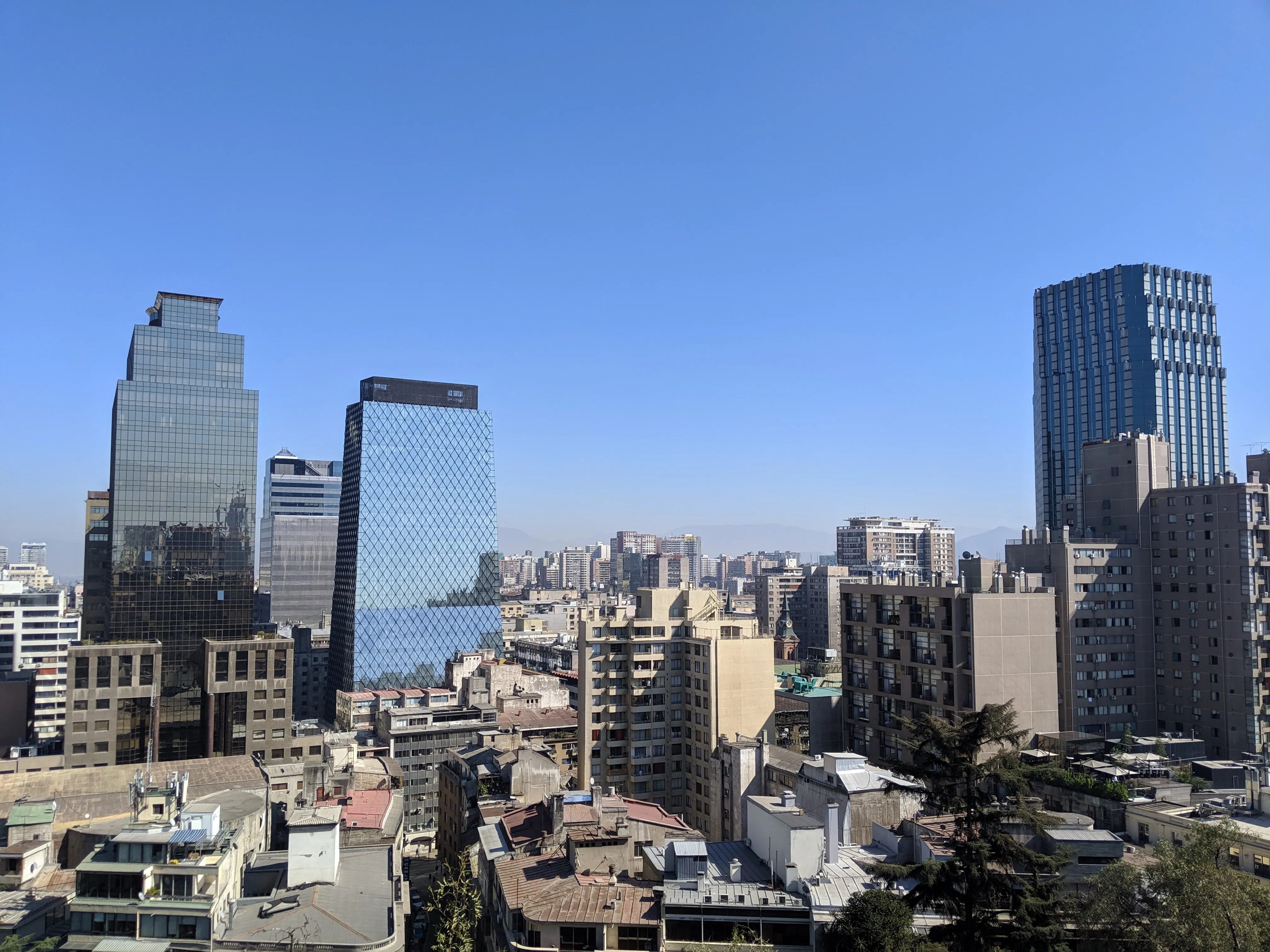
From up high, Santiago could be confused for many cities around the world.
From the ground though, I found a more unique character.
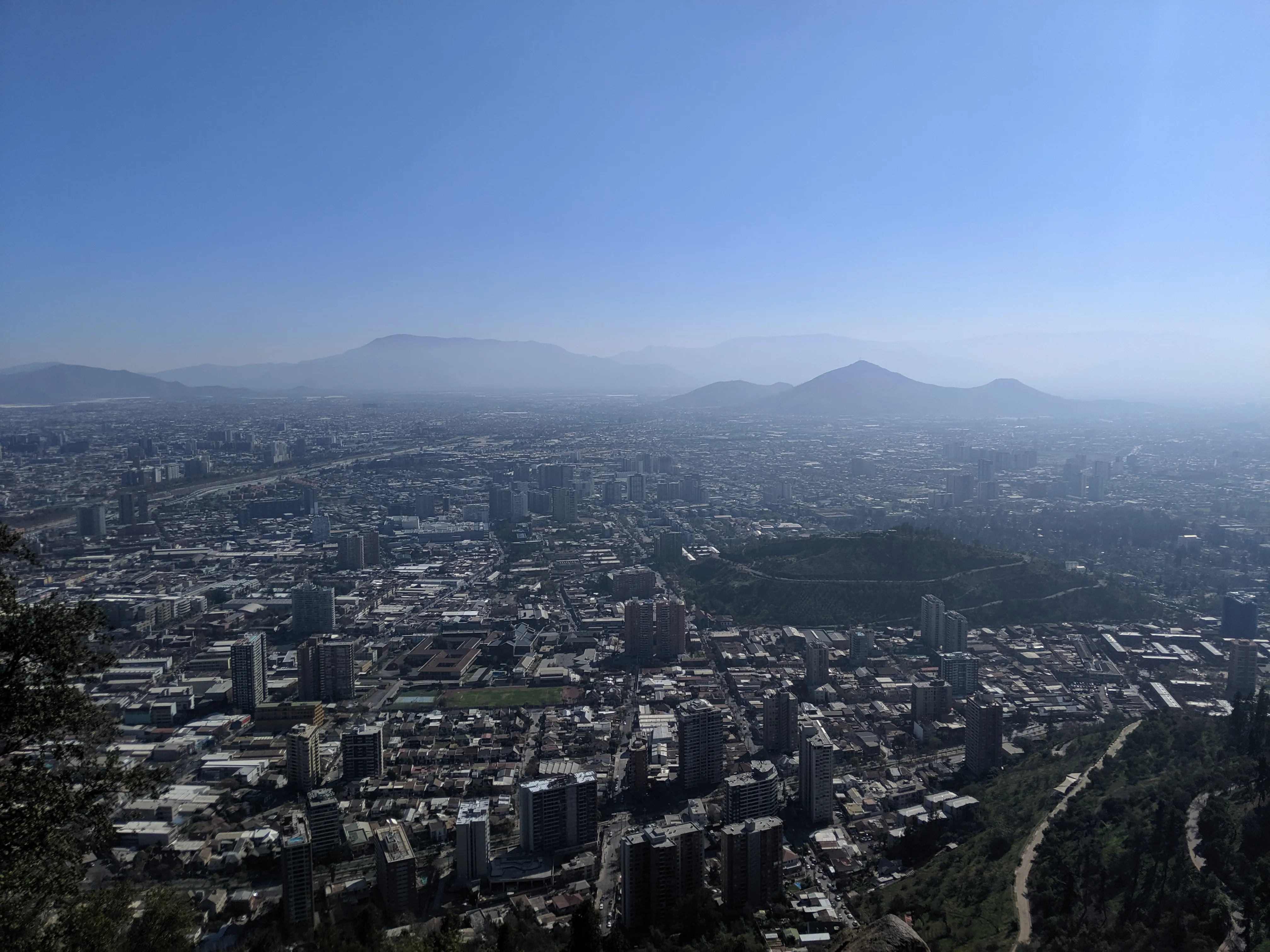
We also hiked up San Cristóbal hill, for a great view of the city and surrounding mountains.
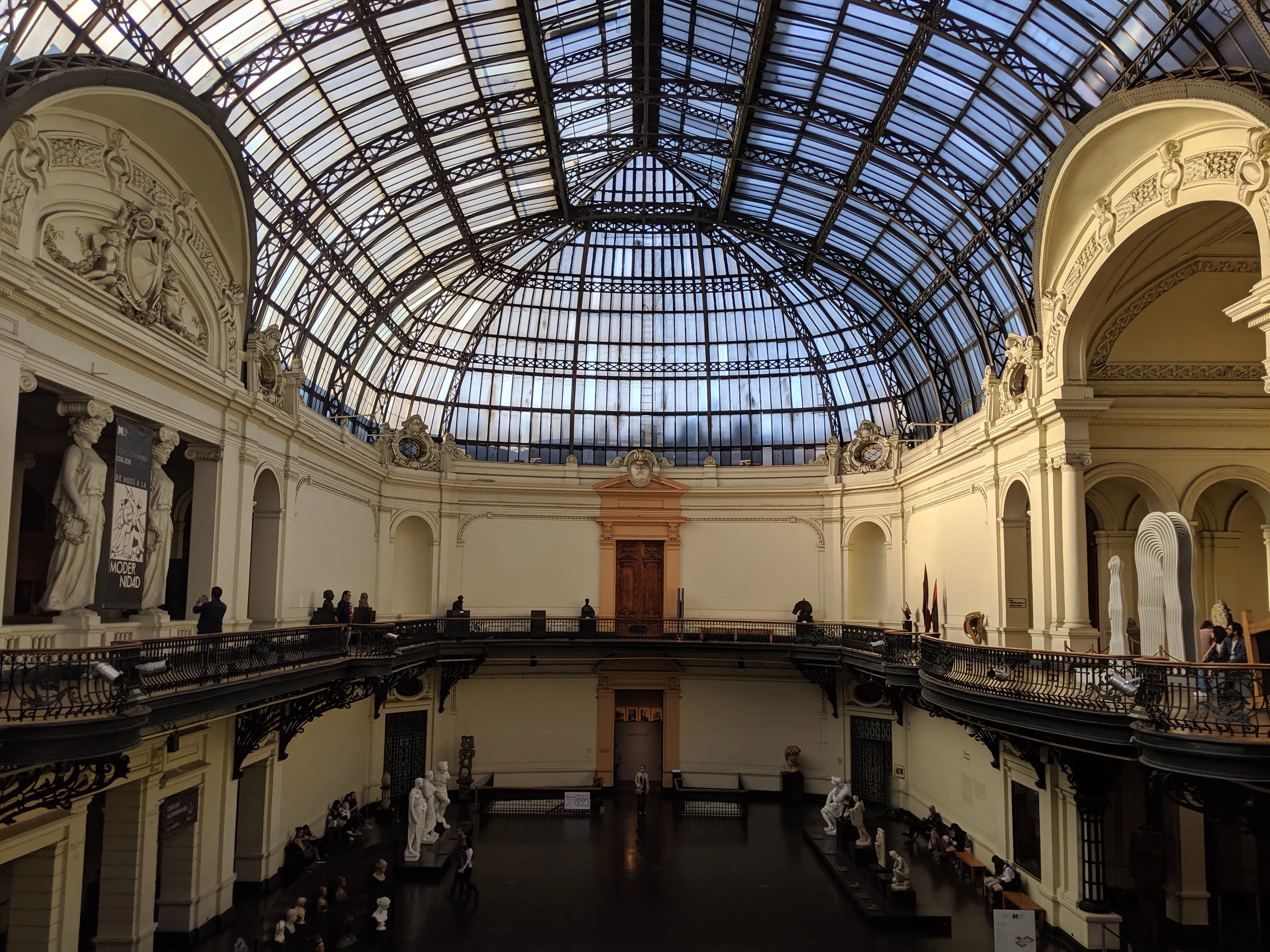
The best part of El Museo Nacional de Bellas Artes is its dramatic central gallery. It reminds me, in a way, of the <a href="/travel/france-spain-summer-2016/#sculpture-galleries">sculpture galleries in the north wing of the Louvre</a>, in Paris.
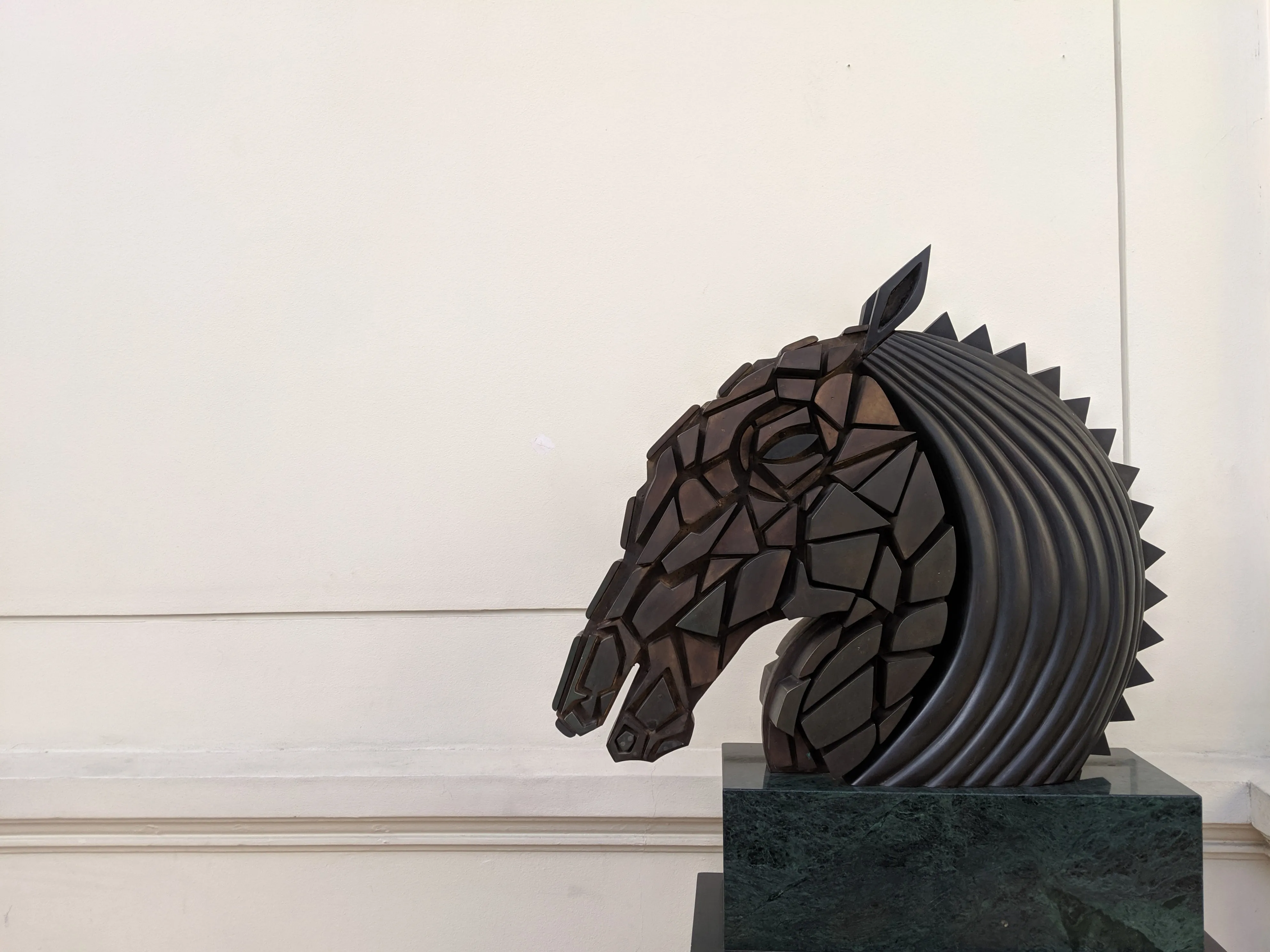
This geometrical horse head caught my eye. I love the way different textures and colors of wood make its eye really stand out.
In the adjoining museum, el Museo de Arte Contemporáneo (MAC), this gallery room was empty, save for the remnants of an apparent attack. The wall was dented and had holes (right). A notice on the wall (left) translates to "Intervention occurred during the opening day on June 27th. Do not move installation objects."
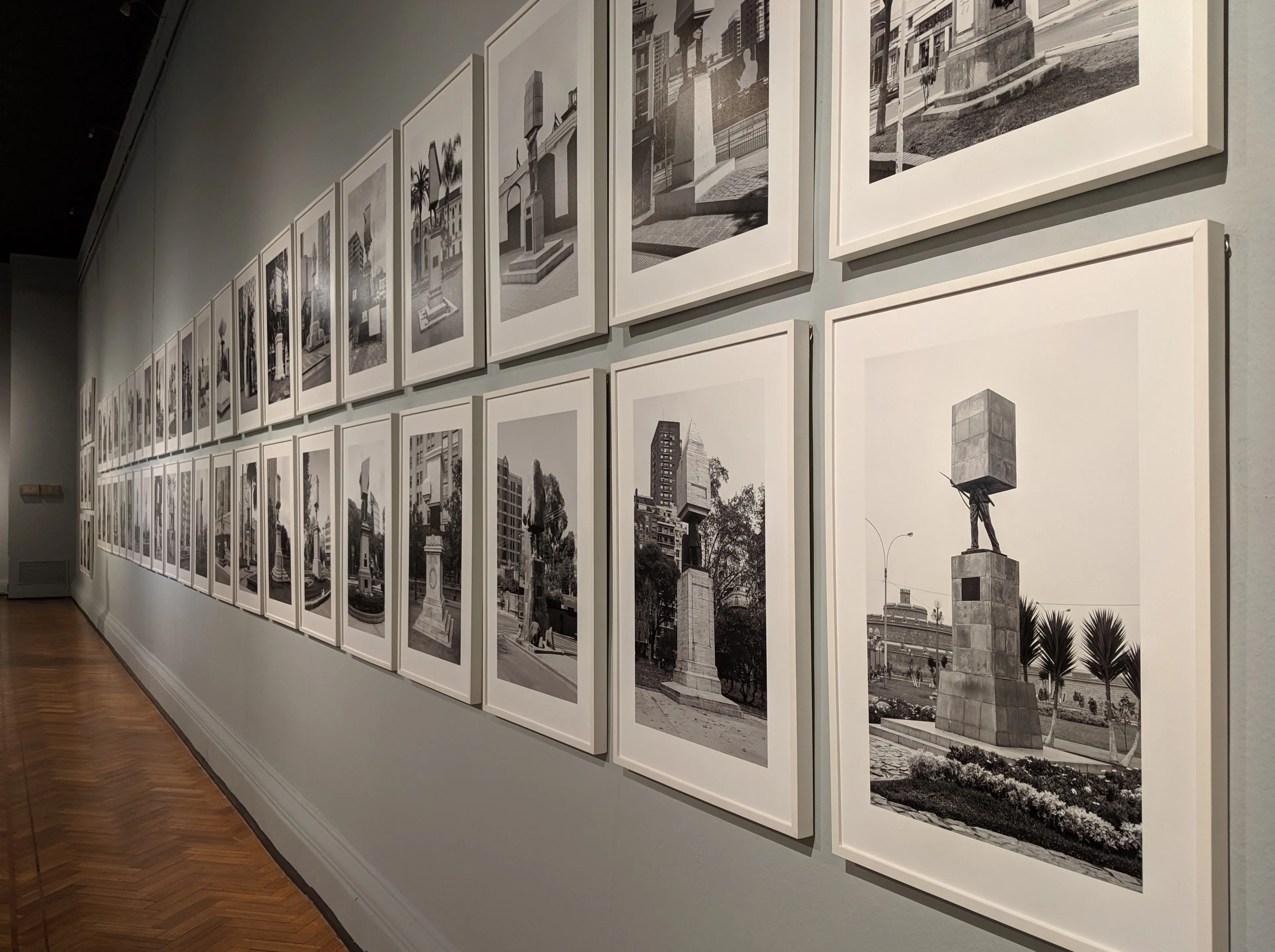
Andrés Durán overlays cubes and other geometric shapes onto the heads of national monuments.
For dinner, we went to Peumayen Ancestral Food, where we enjoyed a meal of 22 "bites" inspired by various Chilean cuisines for less than $40 USD.
Valparaíso
After just a day in Santiago, we drove west to the coast, where we spent two days and a night in Valparaíso. Sprawling across a series of hills and bursting with color, the city reminded me of a mix between Miraflores, Peru and Edinburgh, Scotland. We stayed at a beautiful Airbnb perched at the top of a hill, an experience I’d recommend to anyone visiting the city.
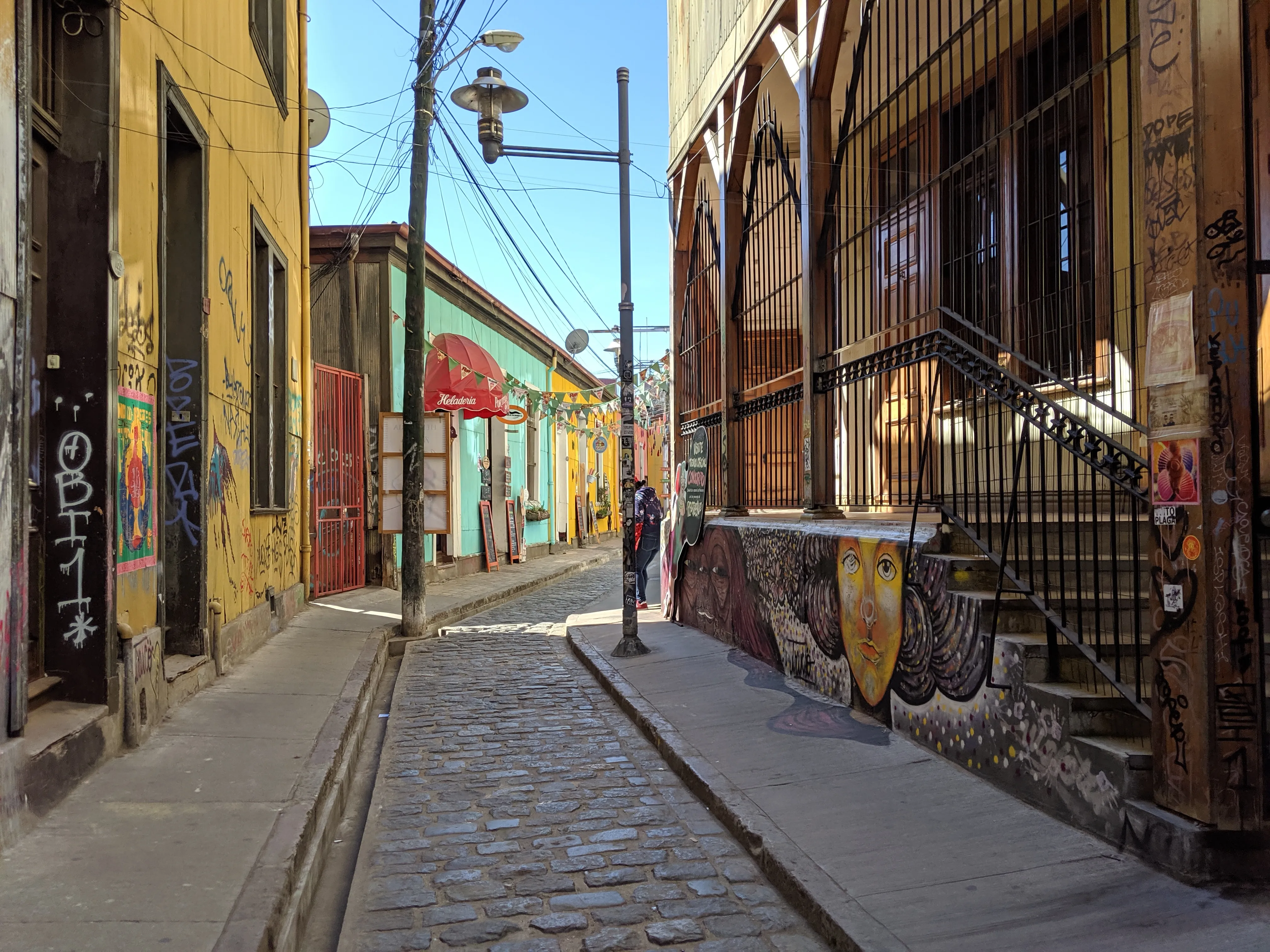
We spent hours exploring the winding streets. The bright, pastel palette of the buildings set Valparaíso apart.
The view from our Airbnb was absolutely stunning.
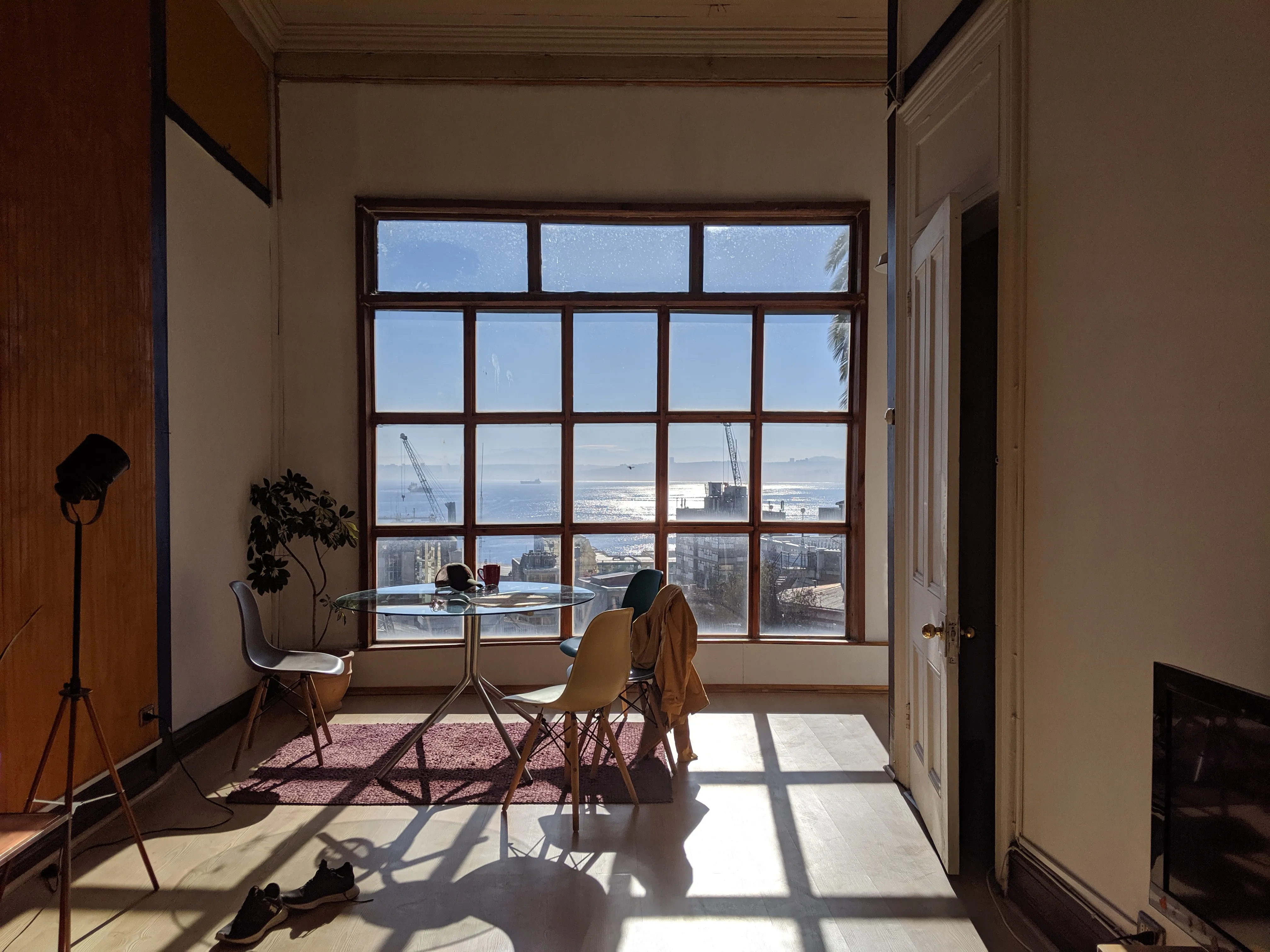
A massive picture window from our living room looks out over the Valparaíso harbor.
A funicular brought us down the hill towards the town market. The waterfront near the civic center offered great views of the shipping yard across Valparaíso bay.
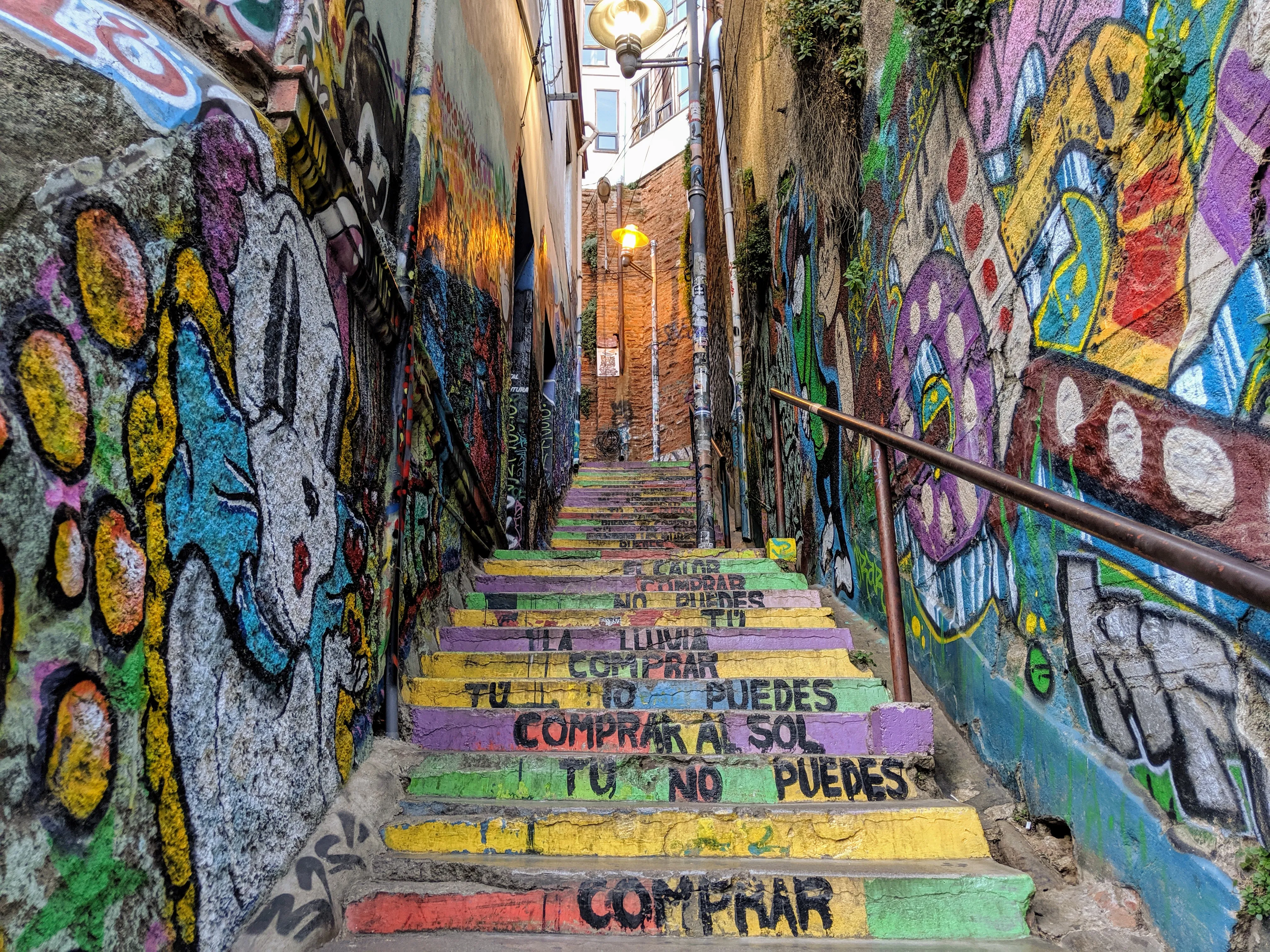
We spent a lot of time walking up and down bright, painted staircases like these.
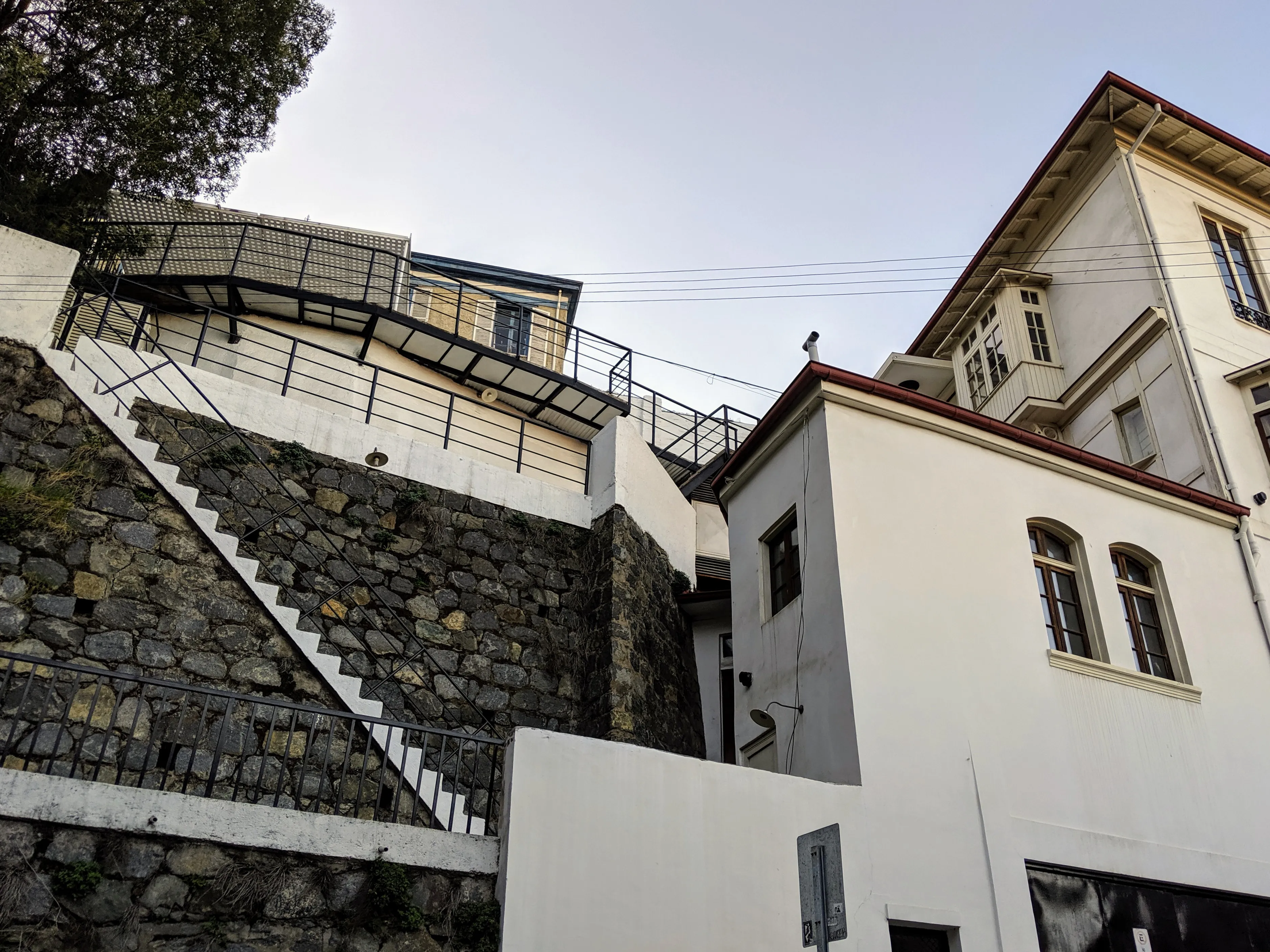
Not every part of Valparaíso was so bright. This apartment building has an awesome mix of white painted plaster and stone masonry.
As we explored the city, I started to remember where we were by the color palette of the surrounding buildings.
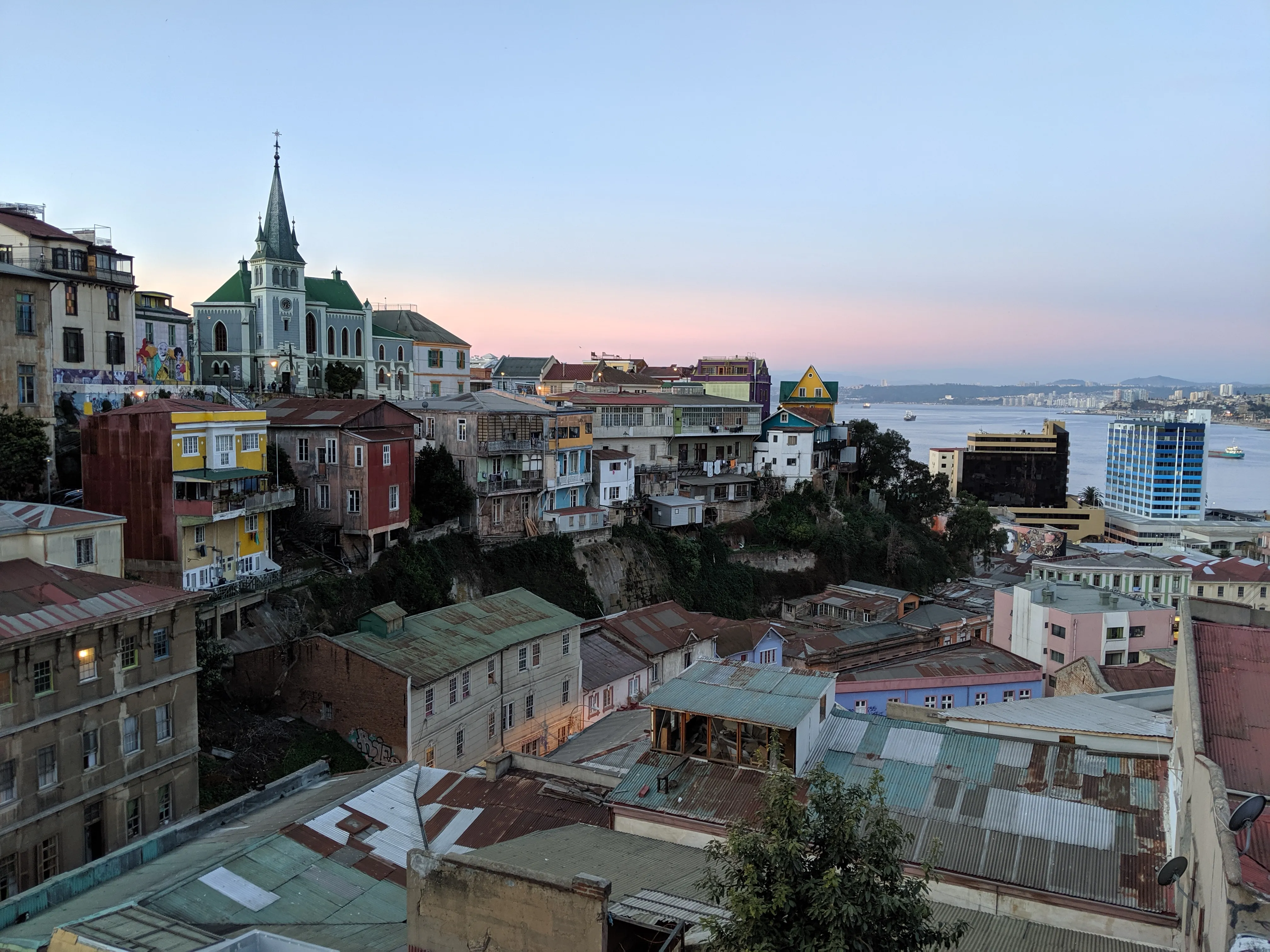
I love how the church stands out amongst the colorful hillside buildings.
On our way to the Santiago airport, we stopped through Viña del Mar to check out the massive sand dunes that line the coast, north of Valparaíso. With the burning hot ground, shoes were a must, but I spent ages getting sand out of them.
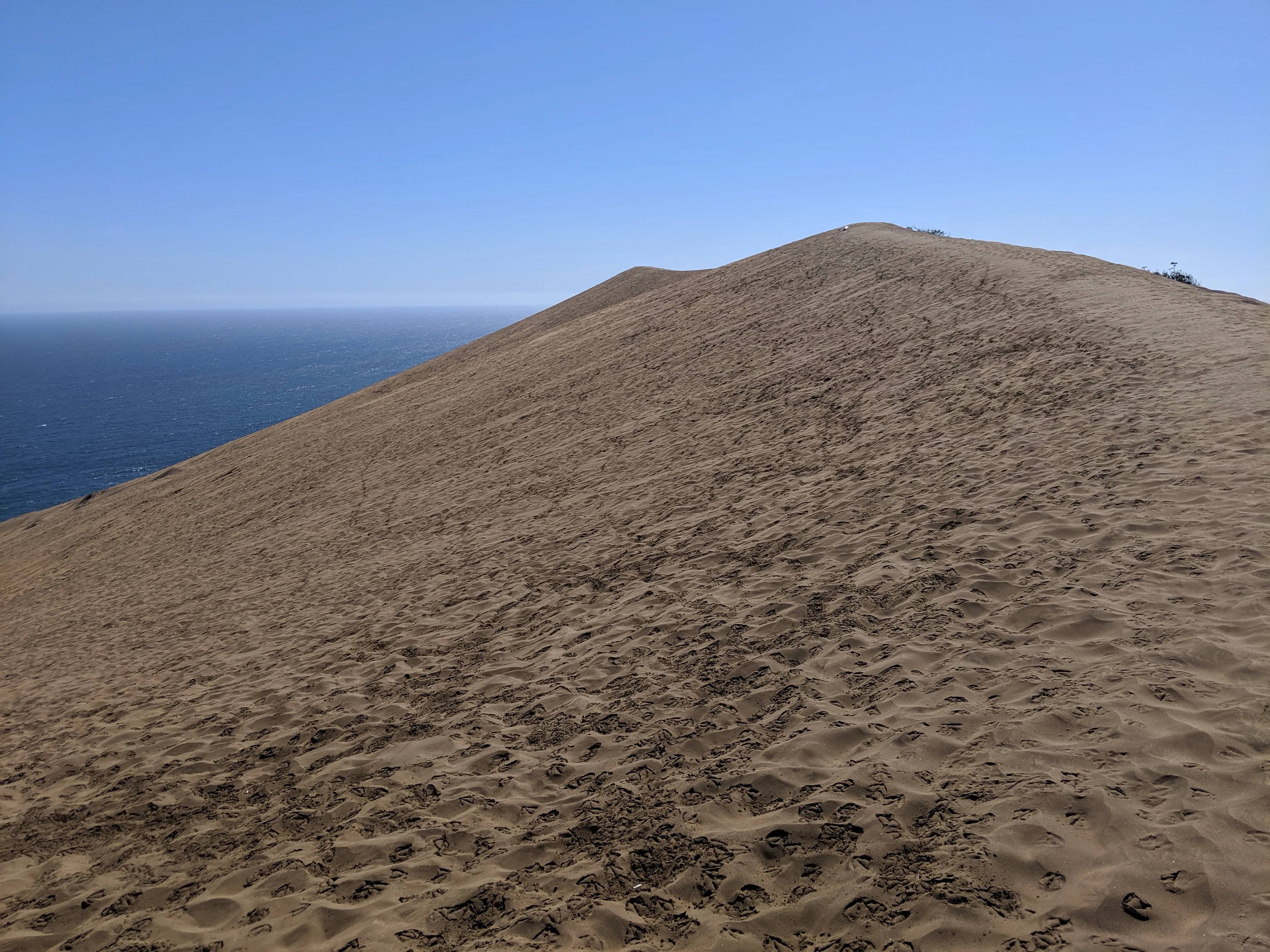
We found a sand board tucked into a bush and tried to ride down, but none of us could figure out how to get enough momentum.
Condo developments encroach on the massive sand dune.
San Pedro de Atacama
After a 90-minute flight from Santiago, we landed in Calama and drove an hour east to San Pedro de Atacama, a high-altitude (7900’) desert town. From San Pedro, we spent three days exploring the mountains, valleys, and flats. Before visiting, my impression of the Atacama desert was that it would be similar to other deserts I’d seen in TV and movies. I imagined sand like in the Sahara and brutally hot temperatures. What we discovered, though, was a diverse set of landscapes. Salt flats, spiky mountain ranges, high-altitude lakes, and, yes, an occasional sand dune.
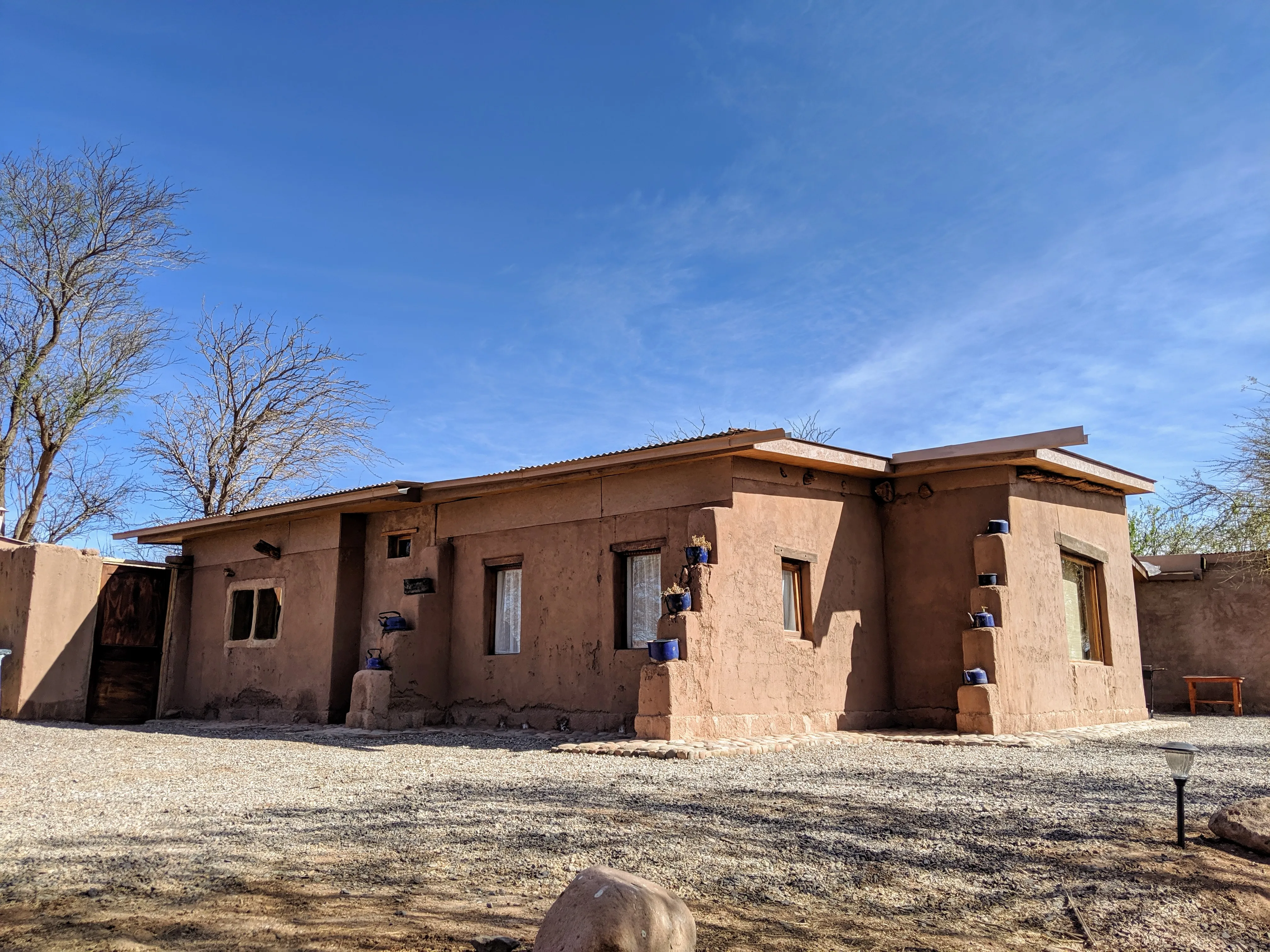
Our Airbnb was an Adobe-style cottage on a beautiful ranch.
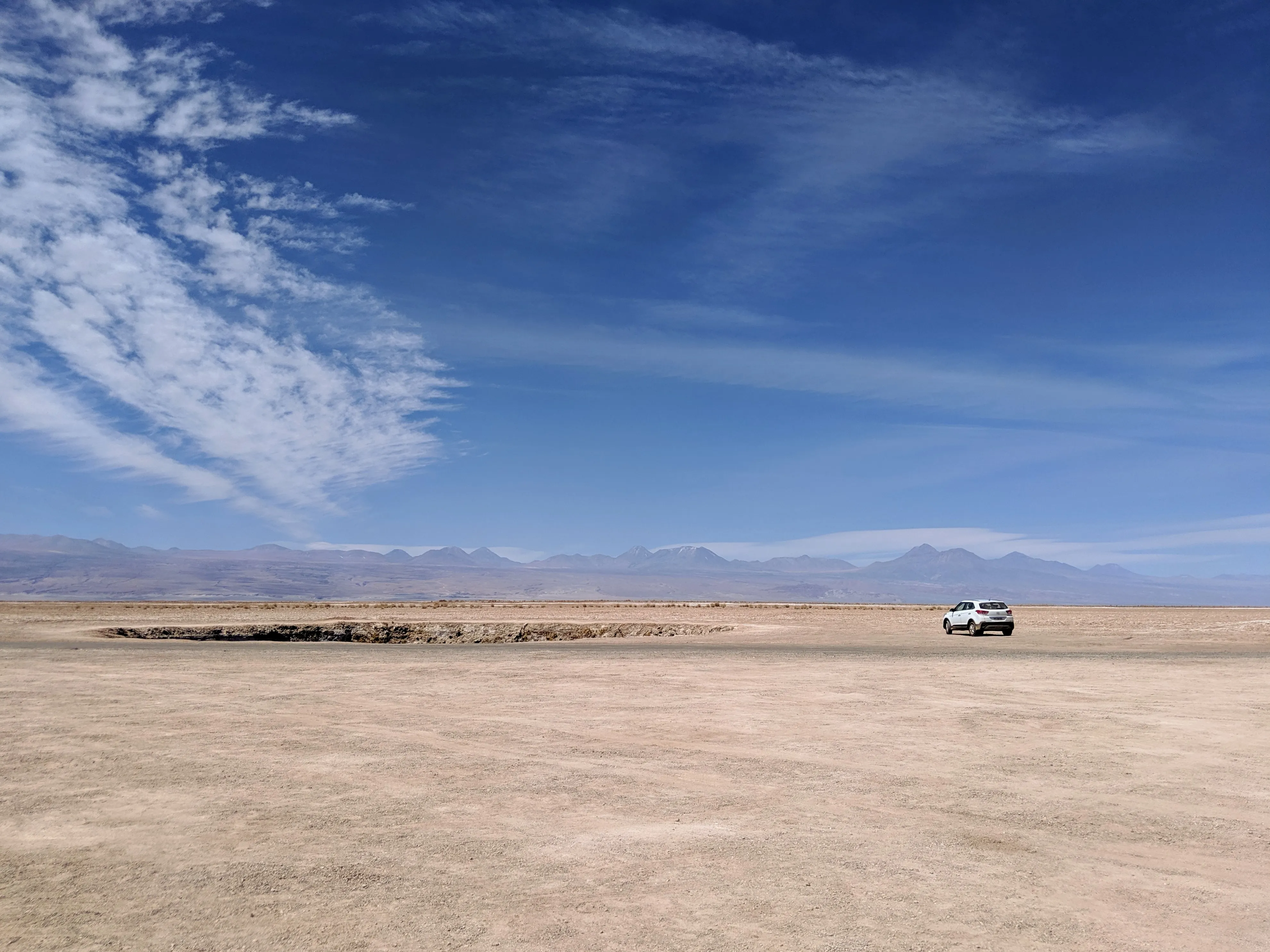
On the way to our first major stop, we stopped at Los Ojos, two out-of-nowhere pools of water that look like a pair of eyes peering out into the sky.
When still, the water of Los Ojos reflects the sky perfectly.
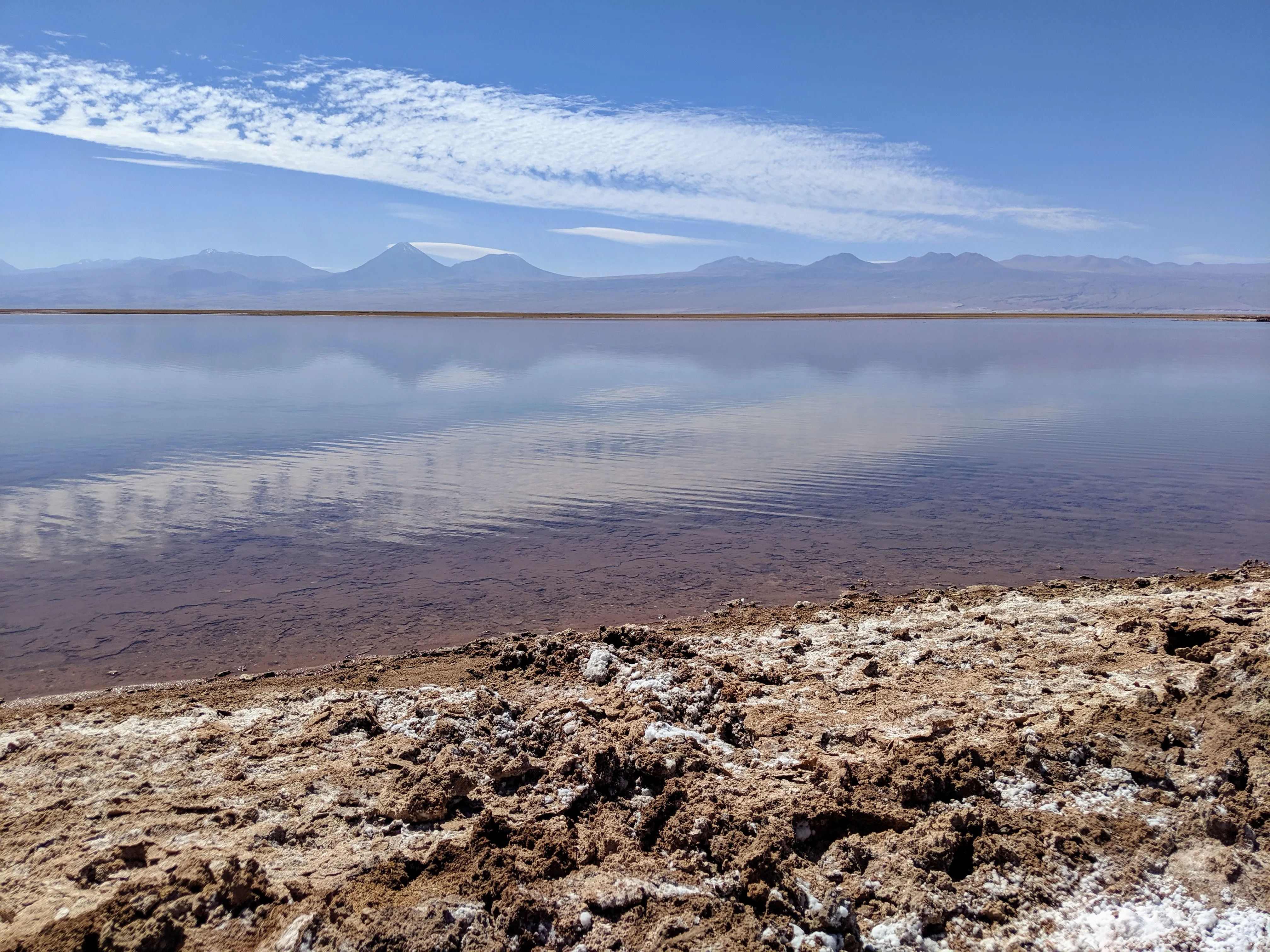
After a few more minutes of bumpy driving, we reached La Laguna Tebinquiche, a lagoon in the middle of the salt flats.
Jeff, Emily, Yih-jen, and I explored the walking paths.
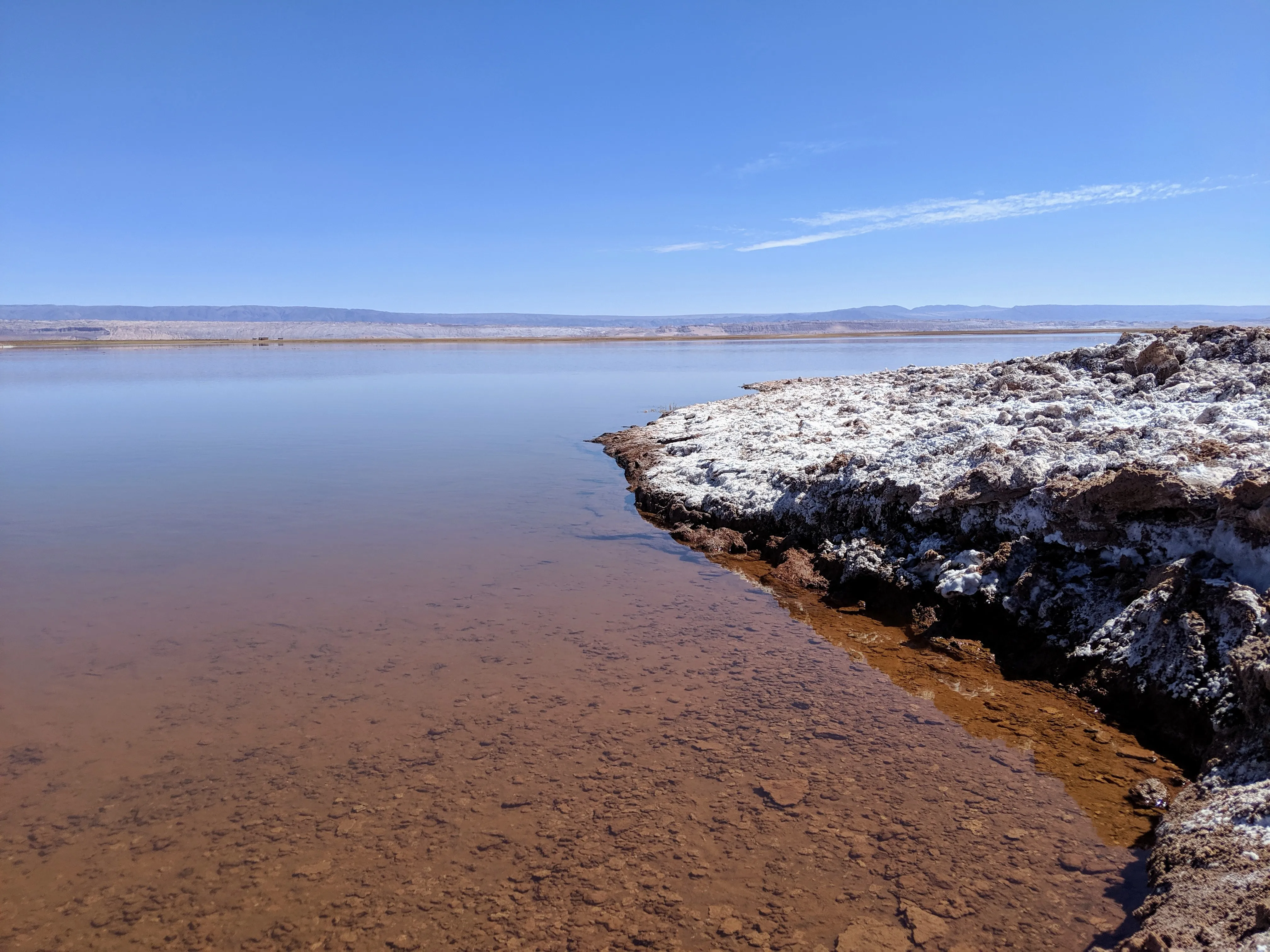
The red, clay color of the sediment has has a beautiful contrast with the blue of the sky and water and the white of the salt.
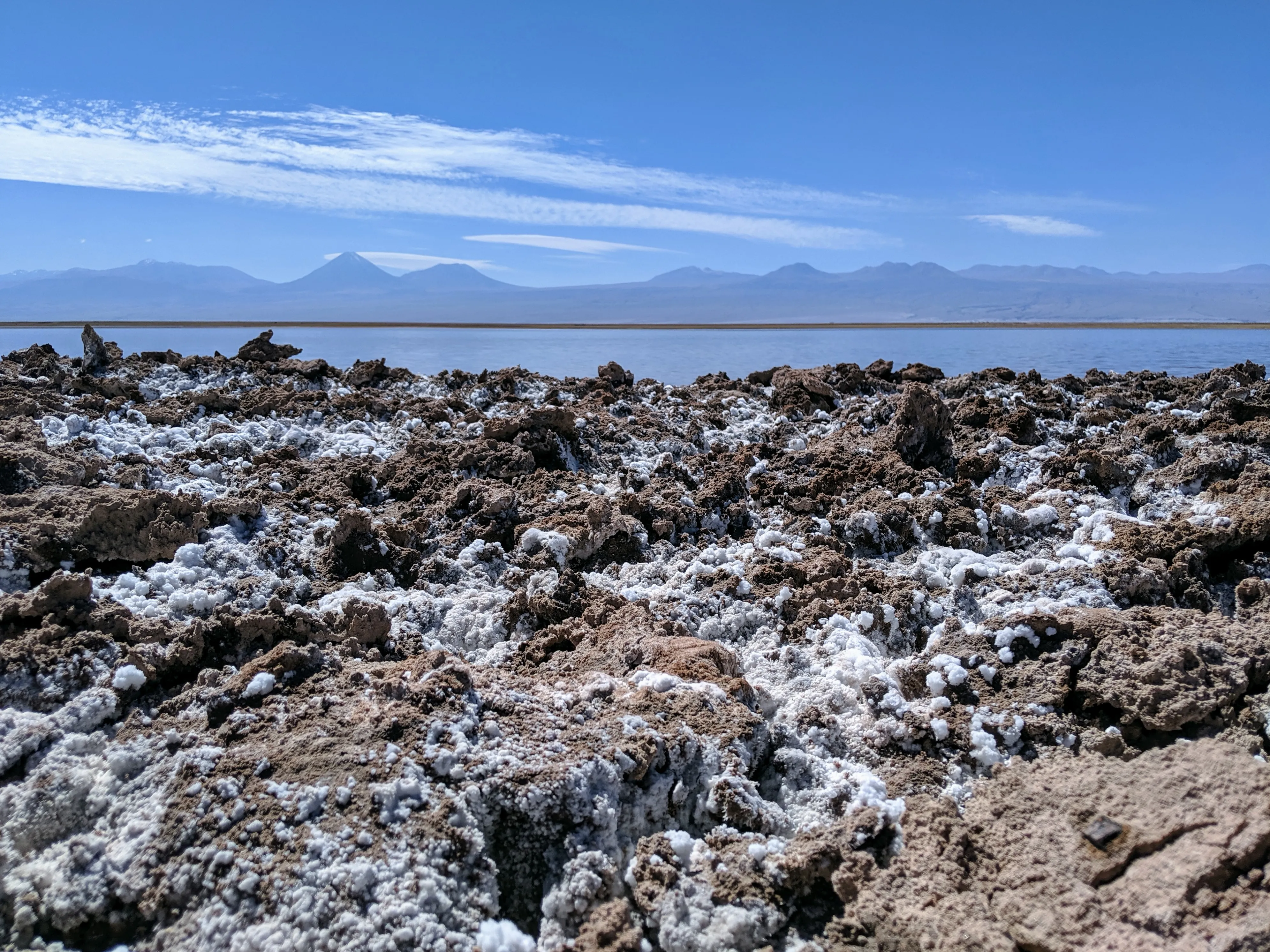
That white is salt, not snow!
After a quick selfie, we were back on our way.
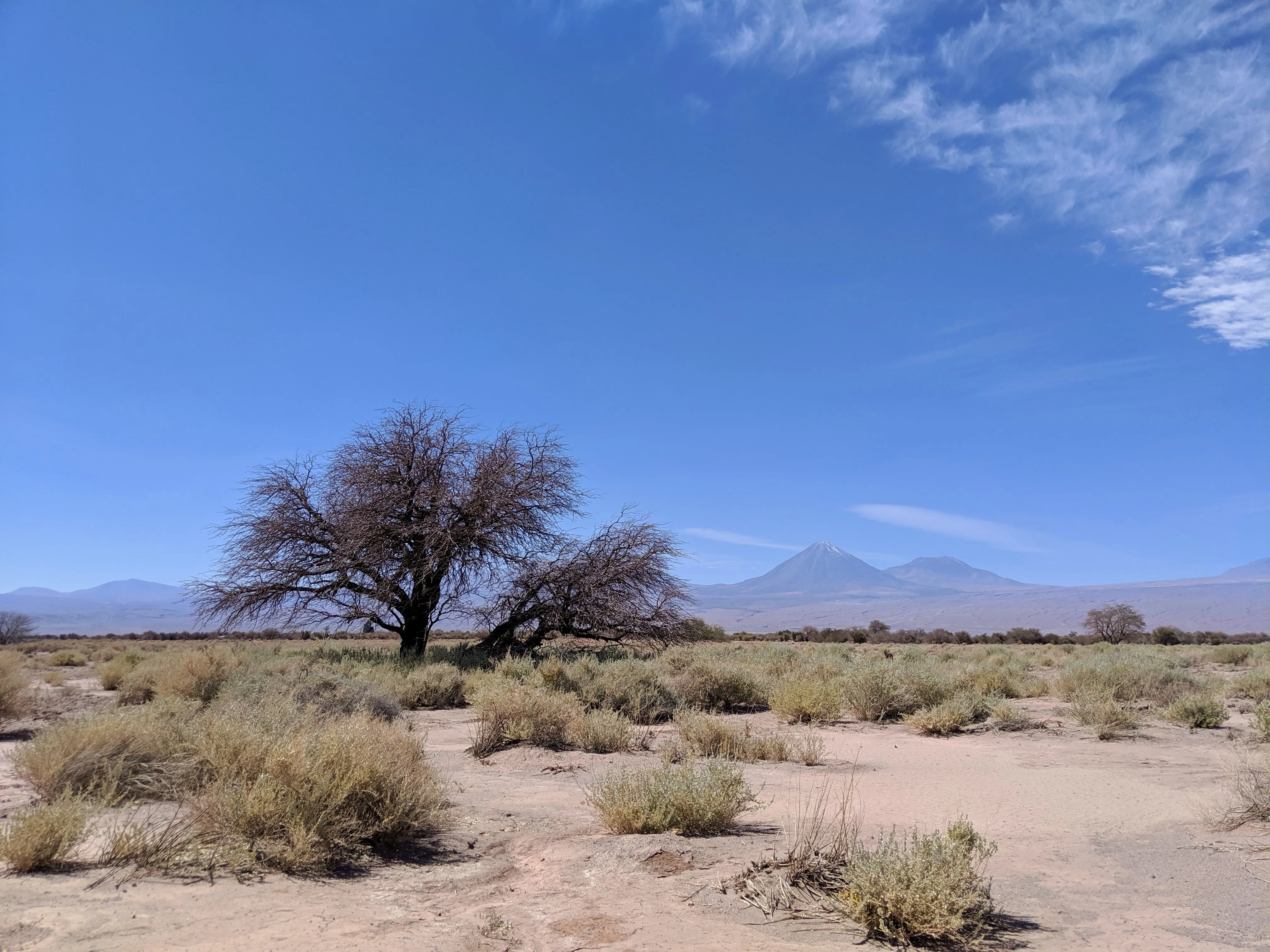
In another unplanned stop, we got off on the side of the road to admire the picturesque flora.
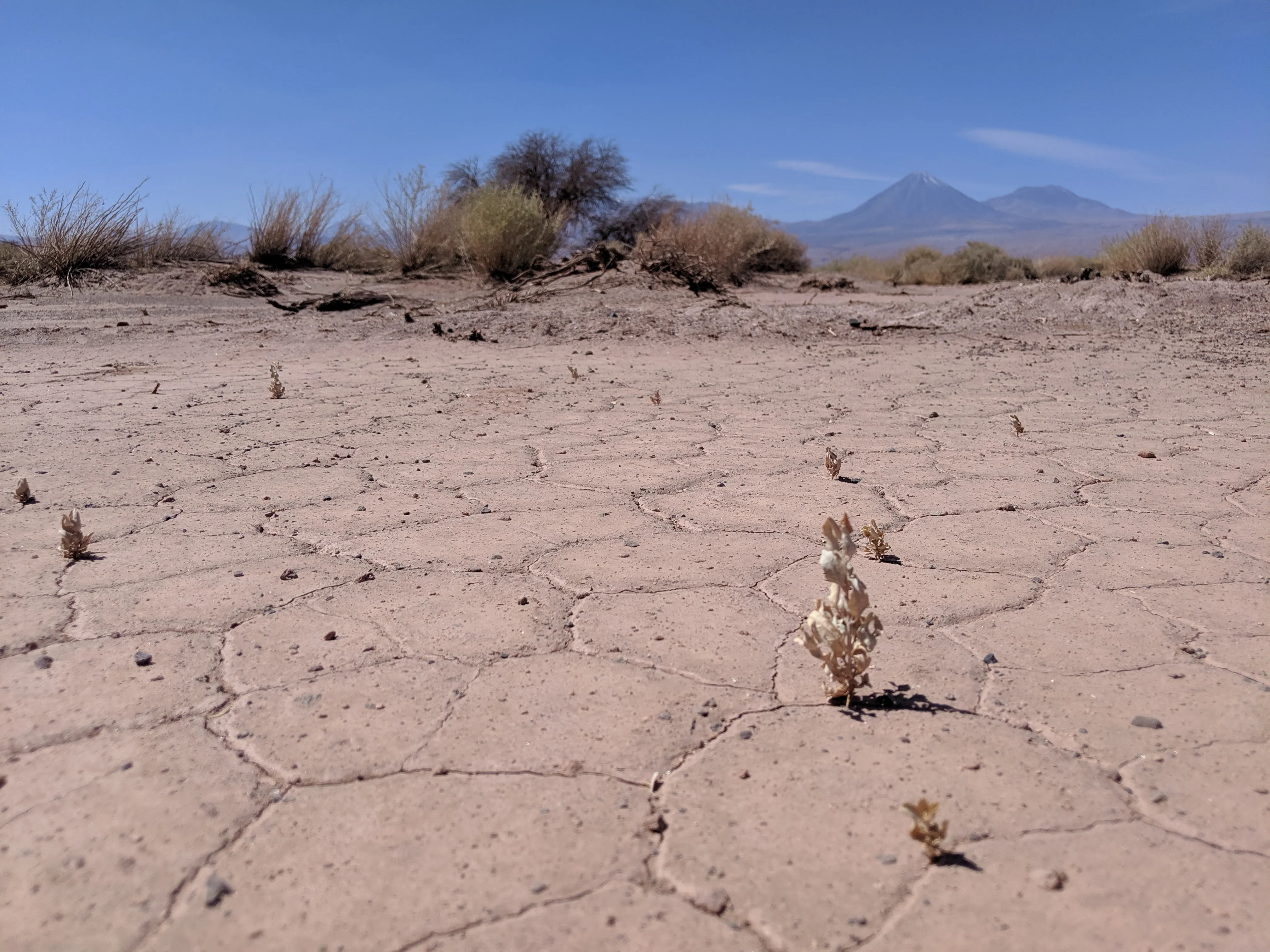
Bushes grow in the cracks in the clay.
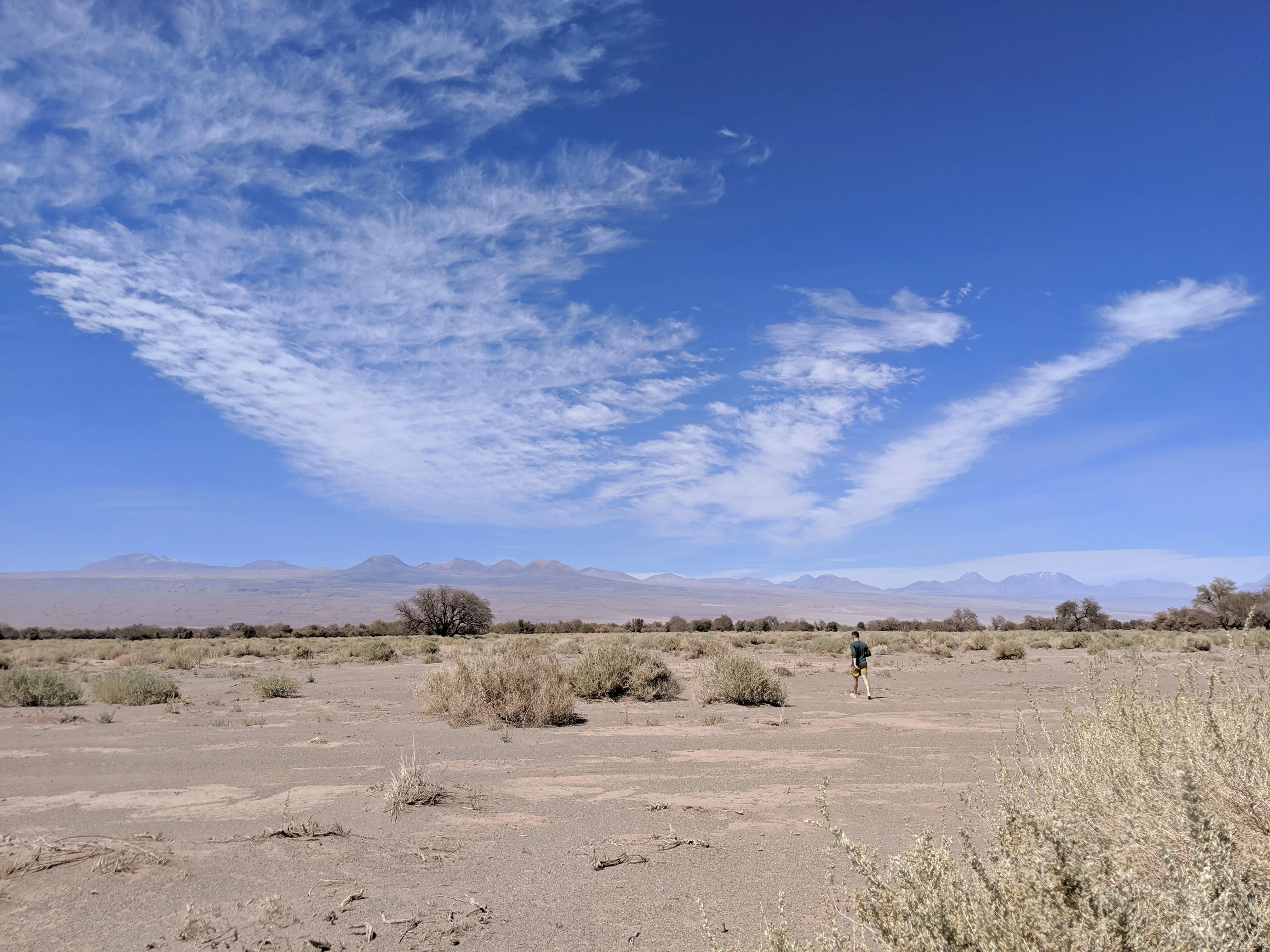
Jeff walked in from the road to get a better photo.
Our next stop was the archaeological site of Pukará de Quitor, with ruins of a 12th-century stone fortress. We hiked up a trail to a summit where we got views of San Pedro and nearby valleys.
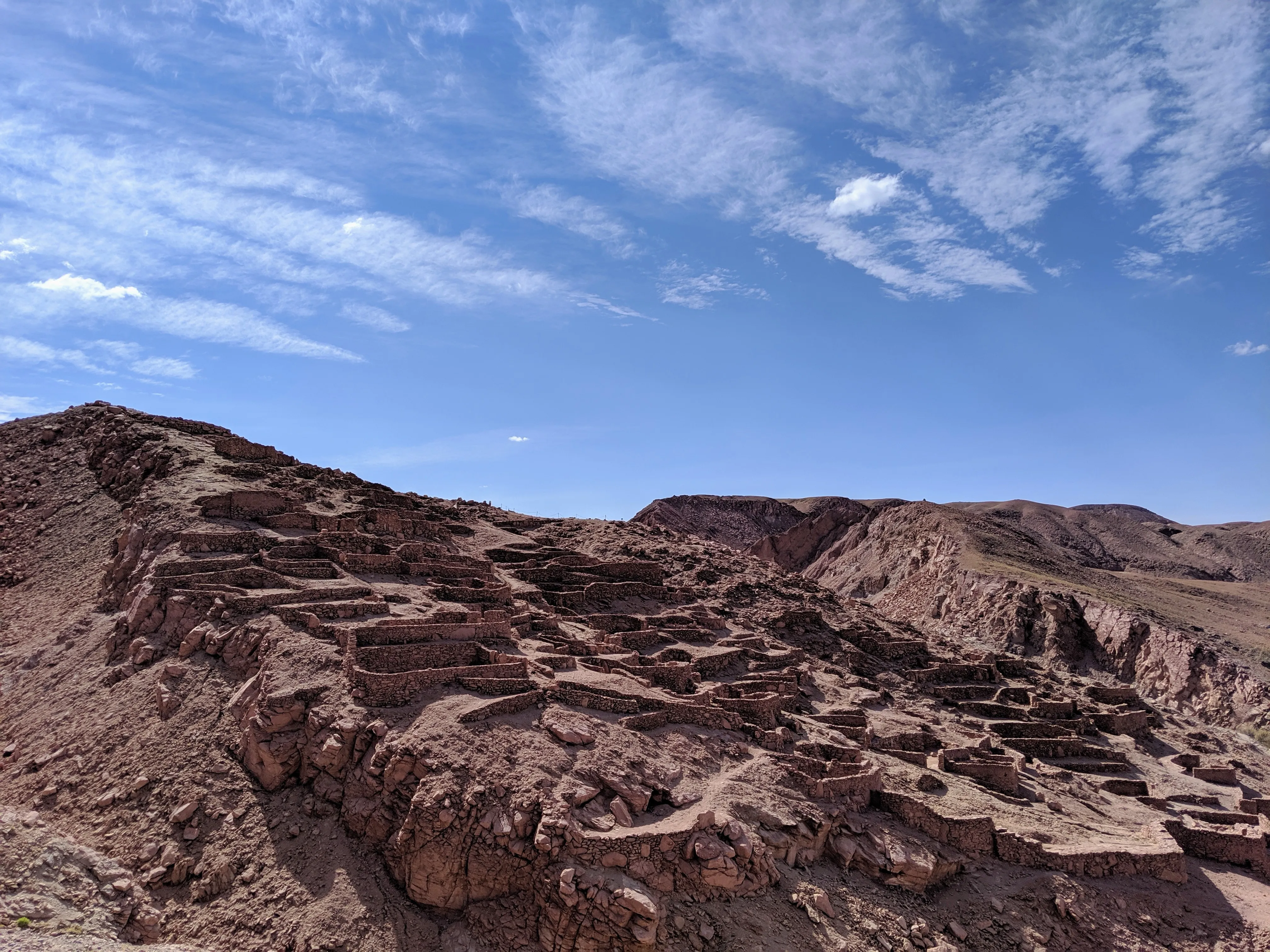
The archaeological site at Pukará de Quitor.
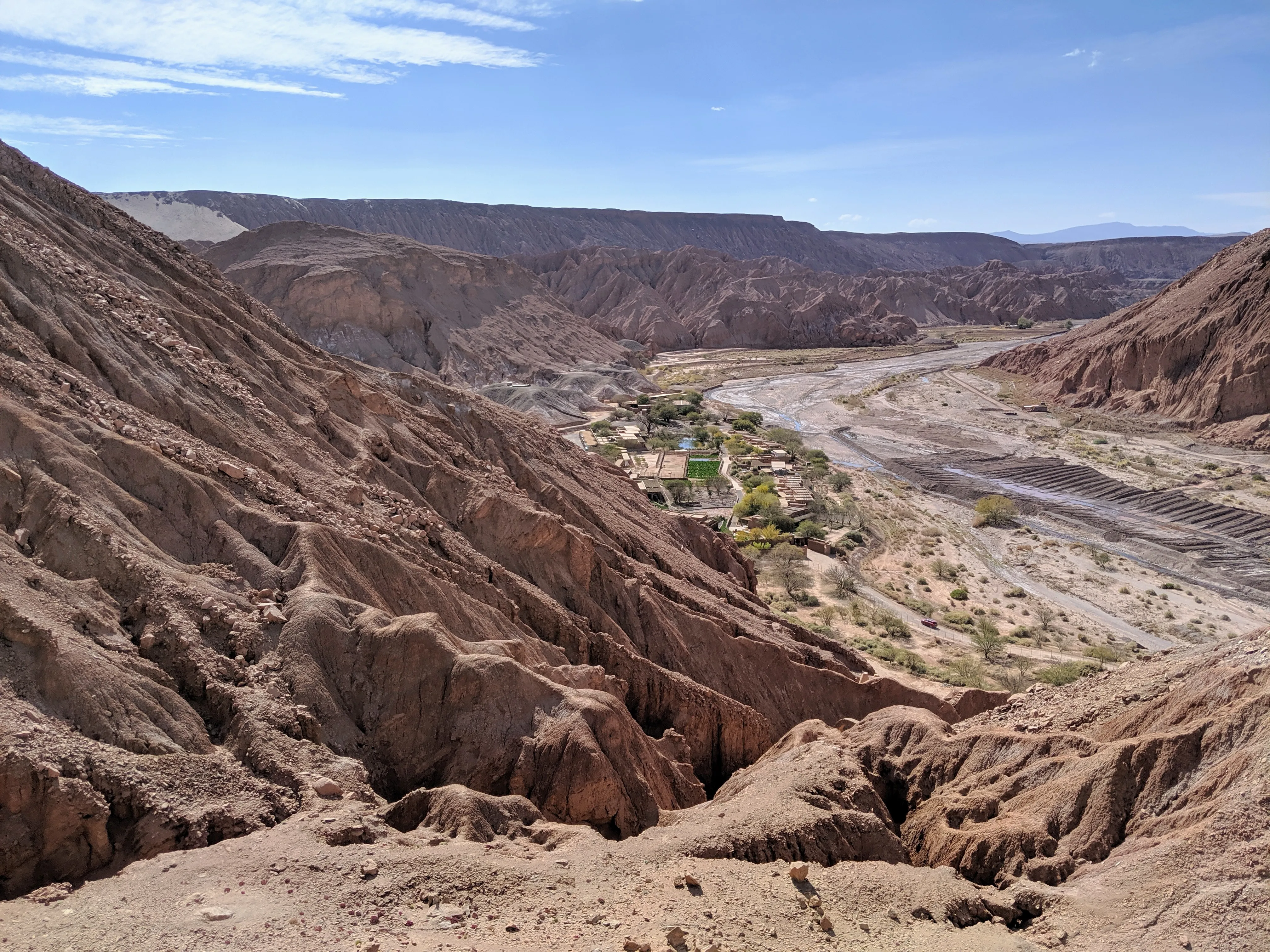
A few more minutes up the trail, we spotted a small farm and village on the other side of the mountain.
At summit of Pukará de Quitor, we were surrounded by mountains.
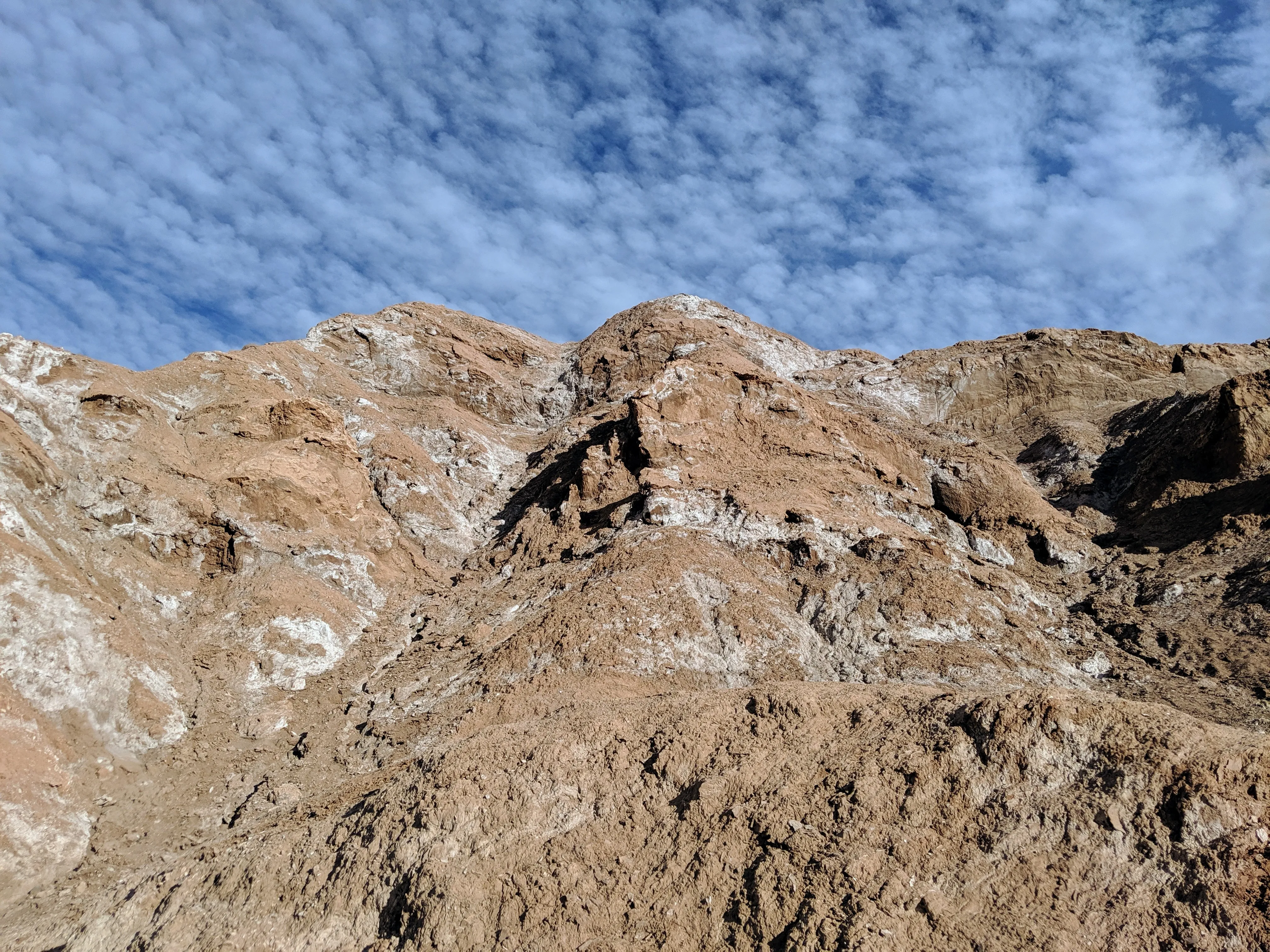
I love the way the mountain ridge stands out against the sky in this photo.
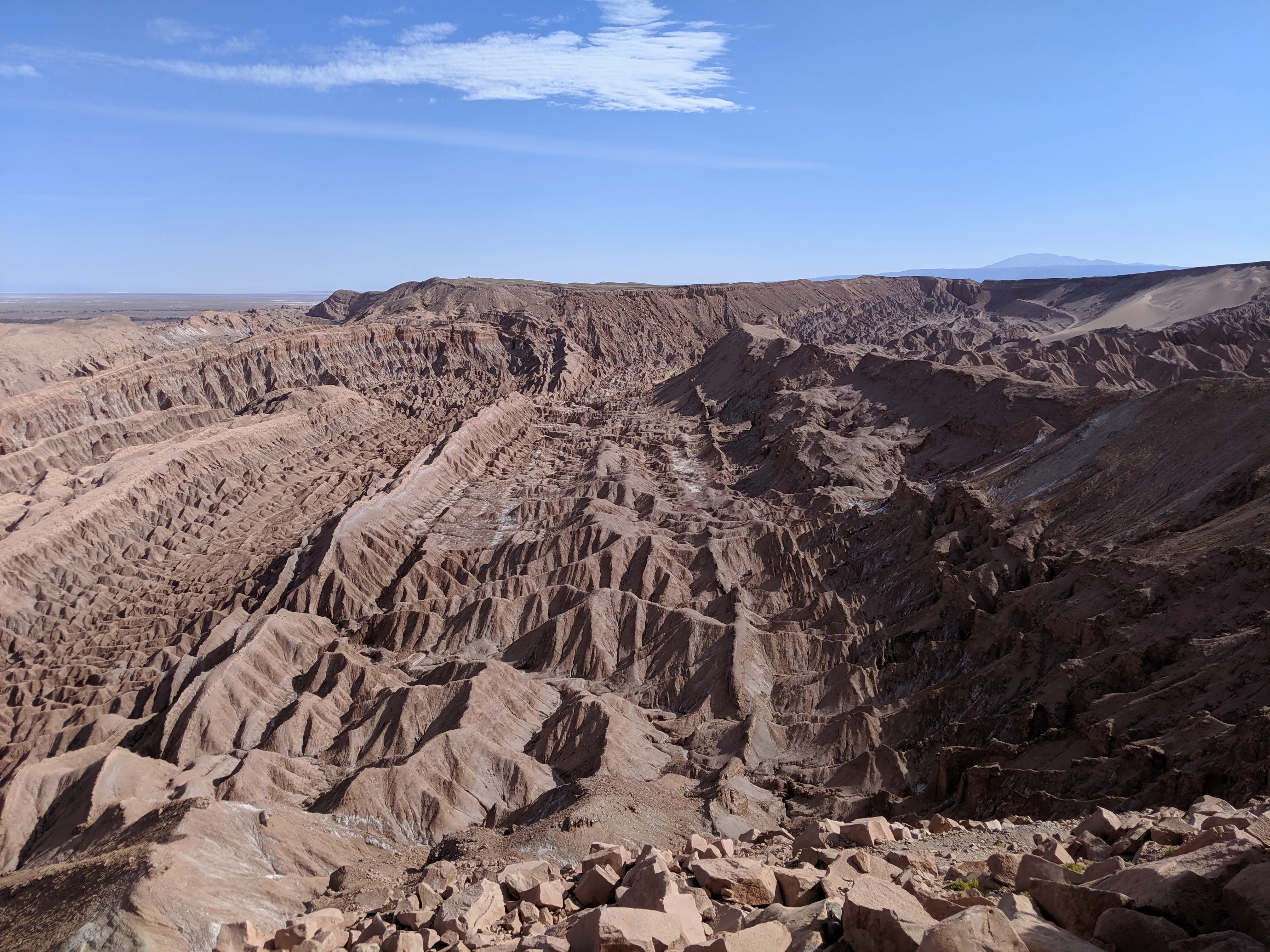
From the summit, we got a taste of Valle de Marte / Valle de la Muerte (Mars / Death valley), our next destination. From above, it's almost hard to register what you're looking at.
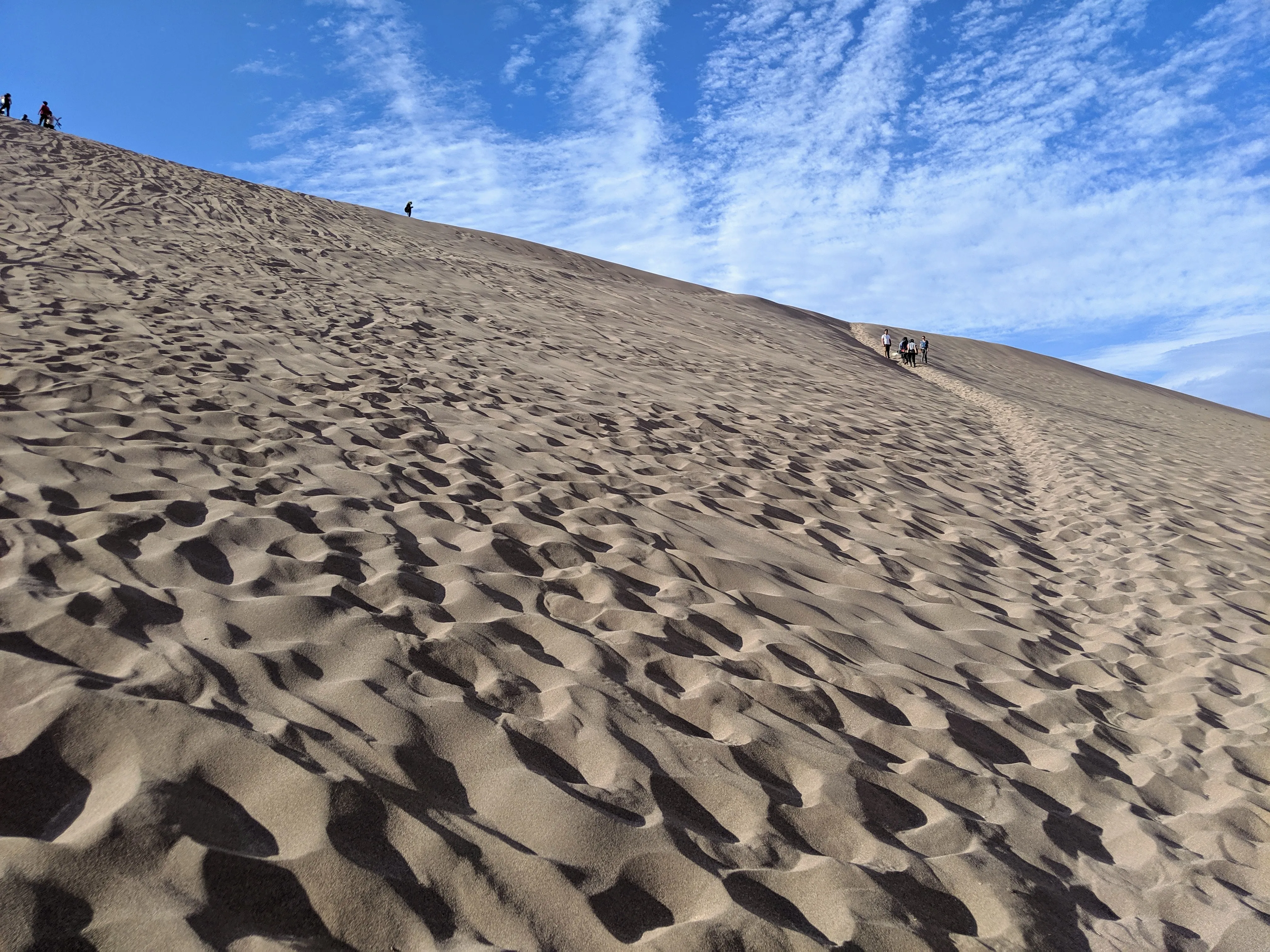
Driving into Mars Valley, we found a sand dune with active sand surfers.
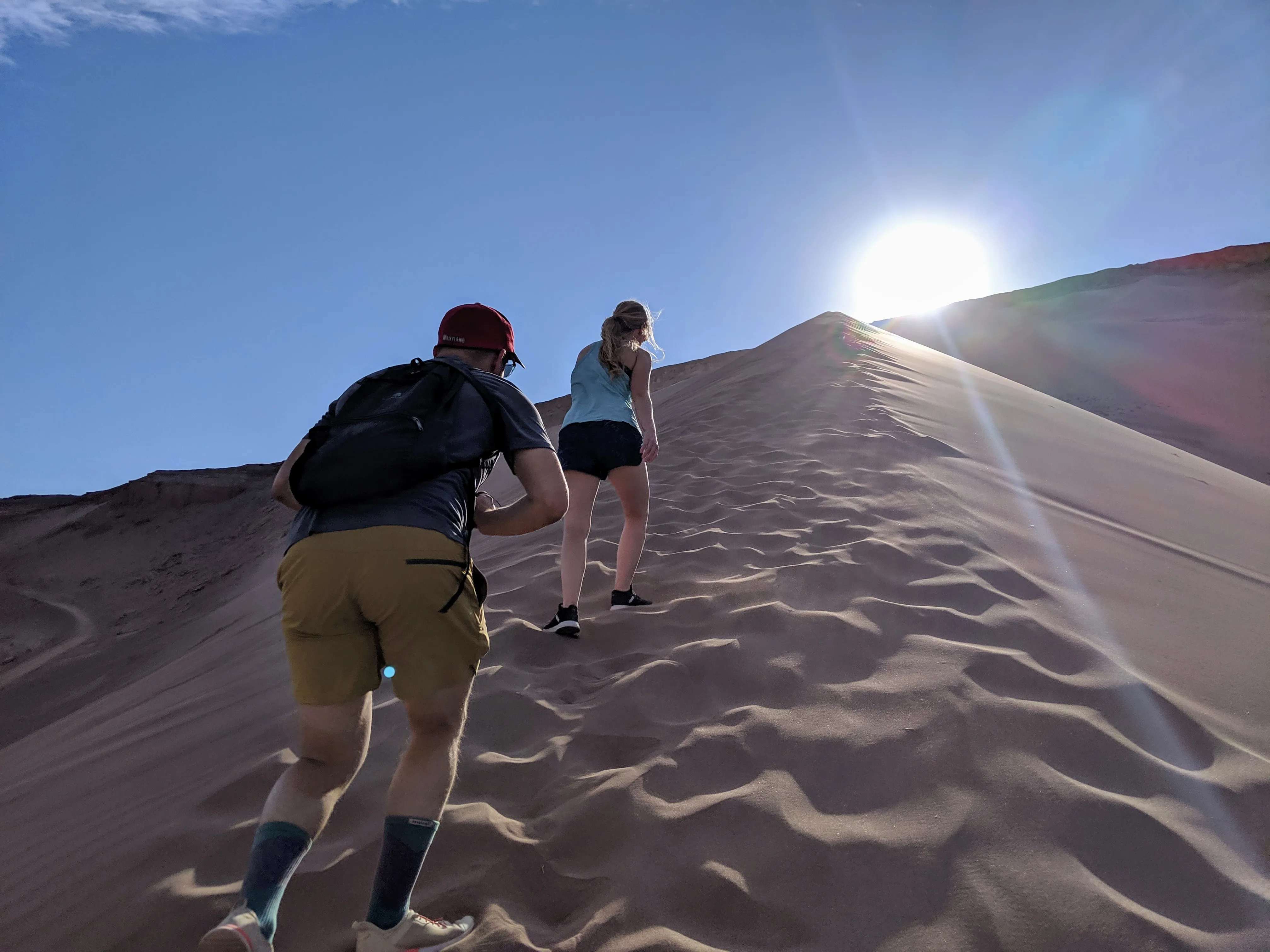
We hiked up the dune to get a better view.
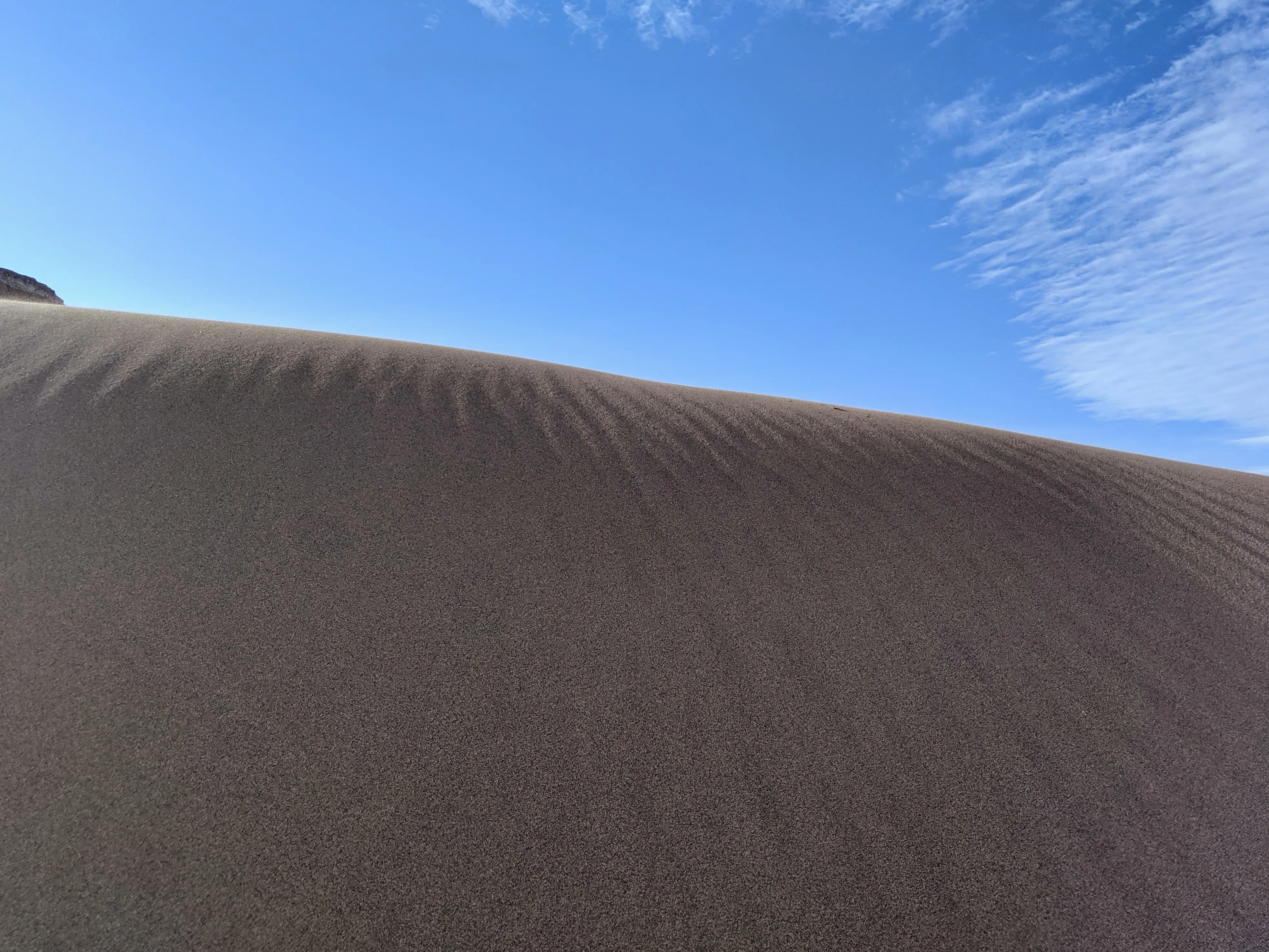
I love this texture of untouched sand.
Yih-jen and I at the top of the sand dune.
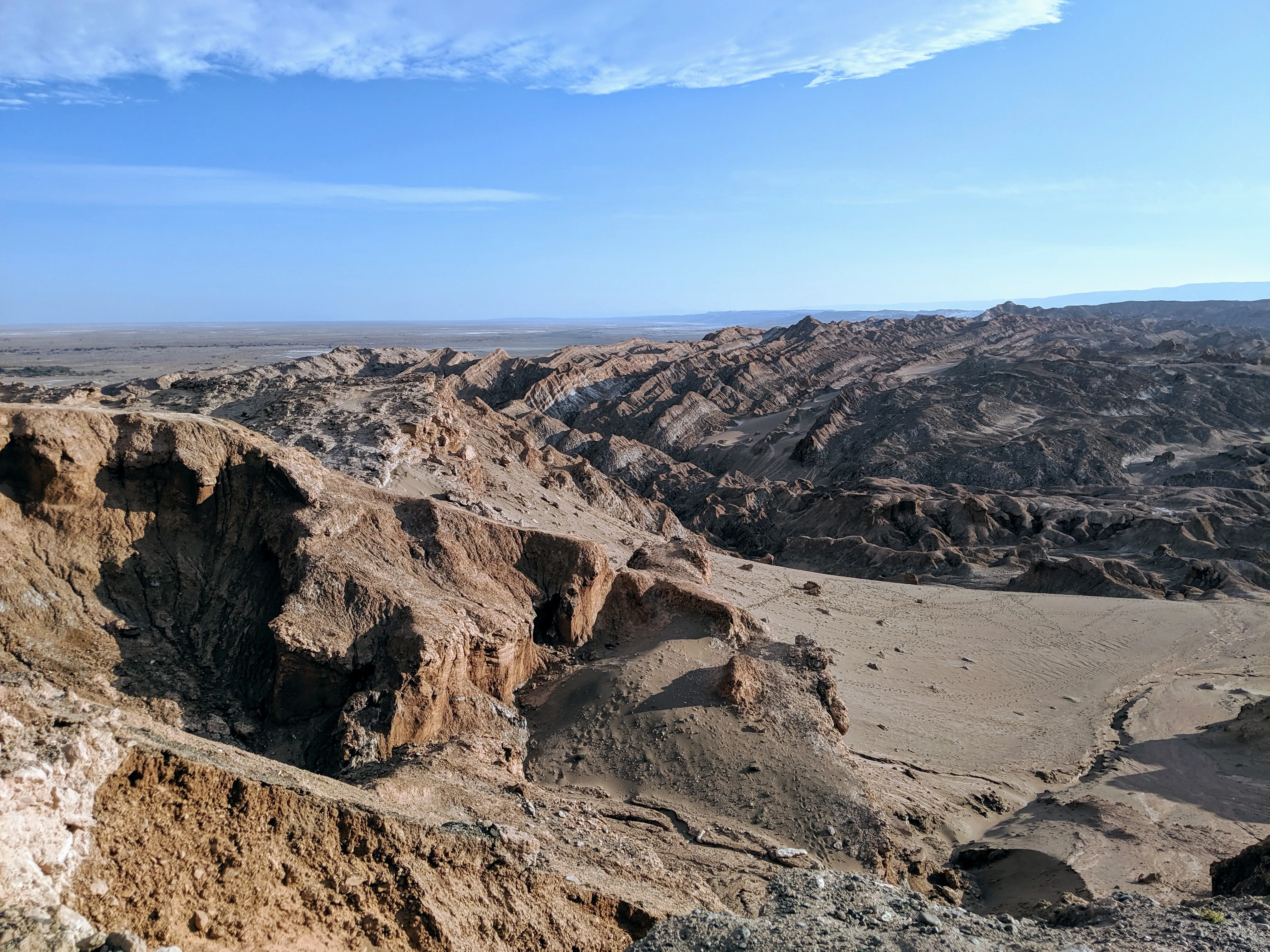
From up top, we got a great view of the surrounding mountains.
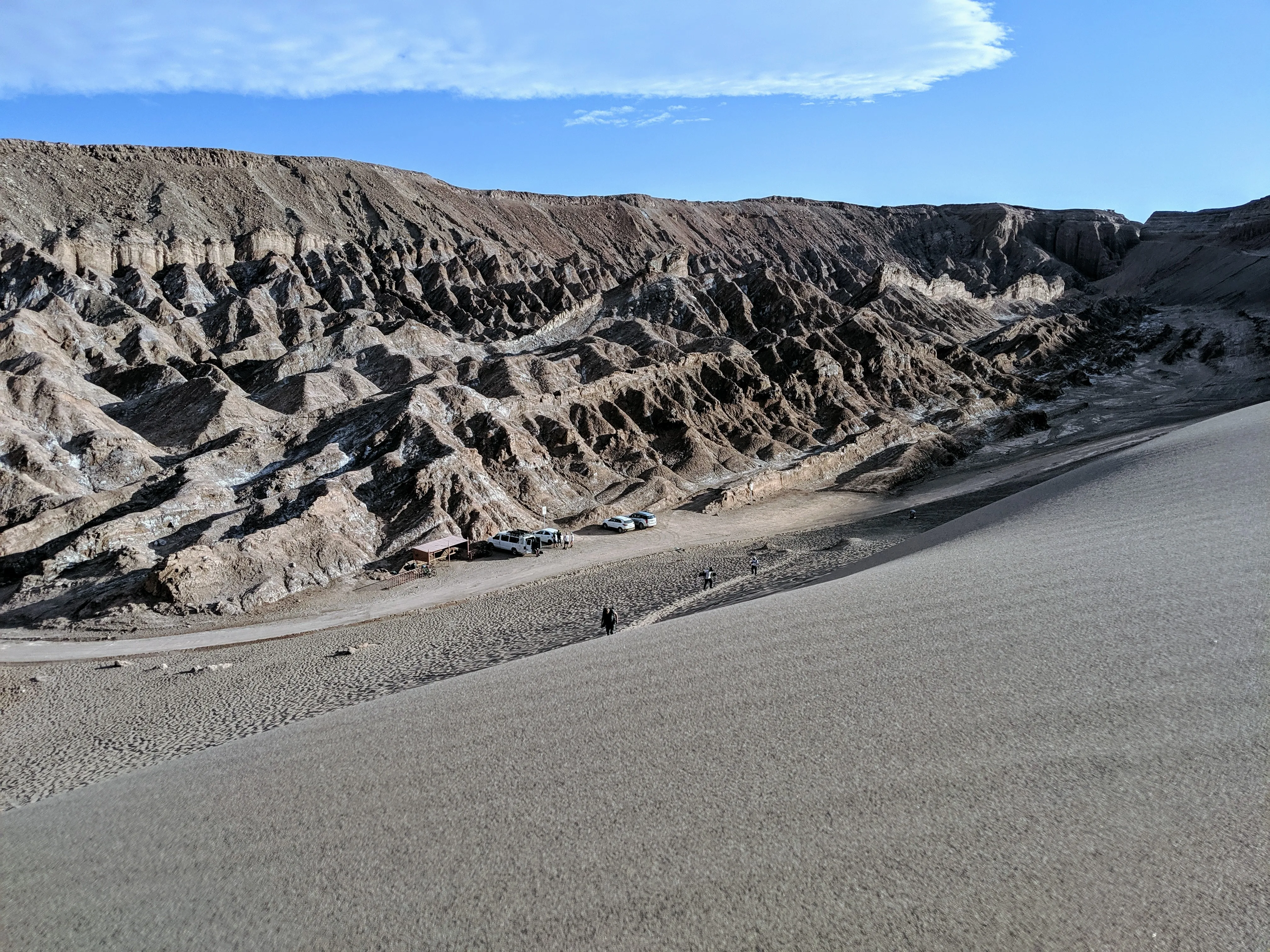
A few moments later, we sprinted down the dune to our car.
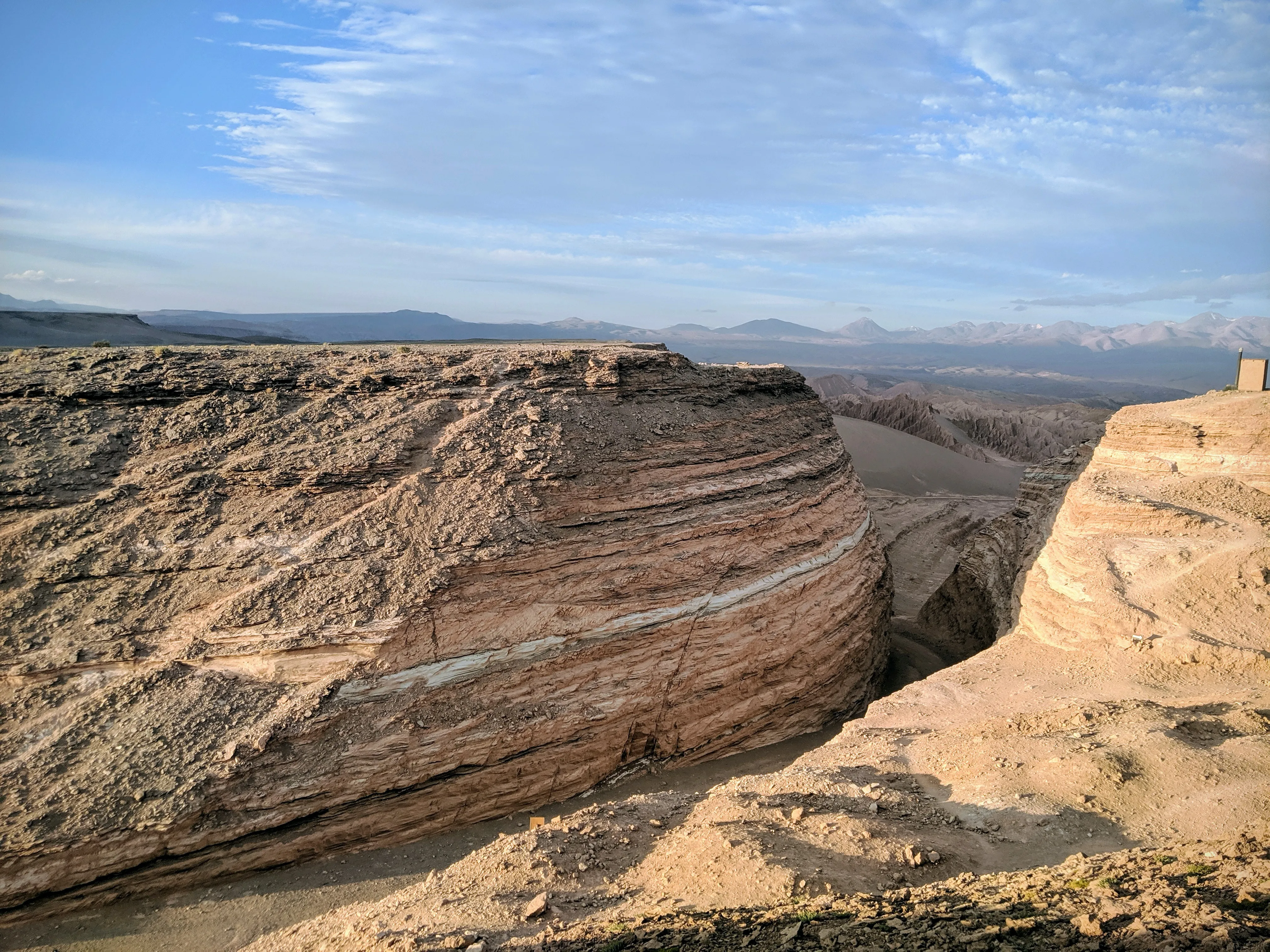
Driving around to the other side of the valley, we parked our car and hiked in to a viewpoint. I love the layers in the cliff face.
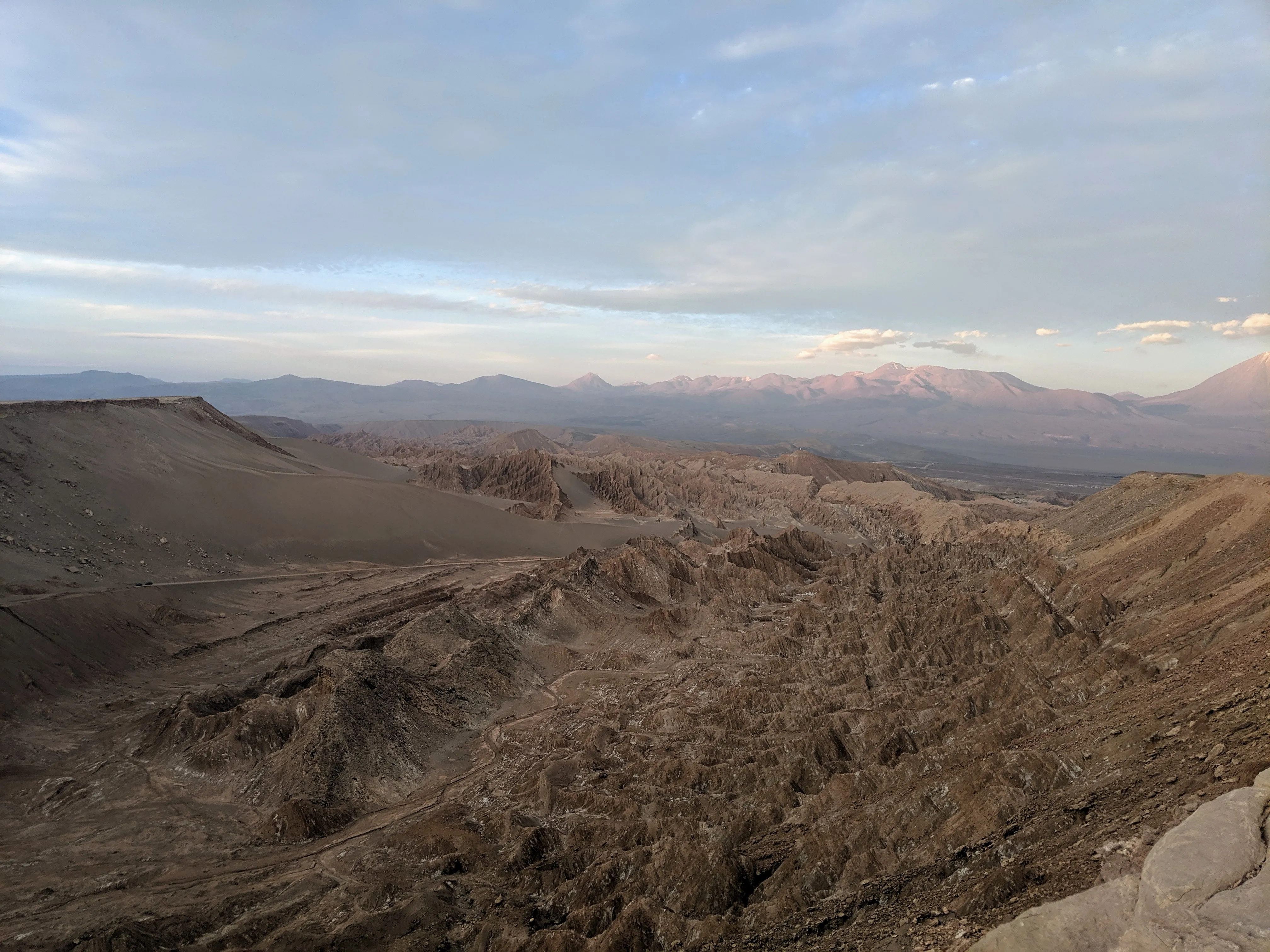
We got a view from the opposite side of the Mars valley. At this point, we were pretty much desensitized to the beautiful views.
Jeff got an amazing photo of the valley. The ridgeline leading up to the viewpoint.
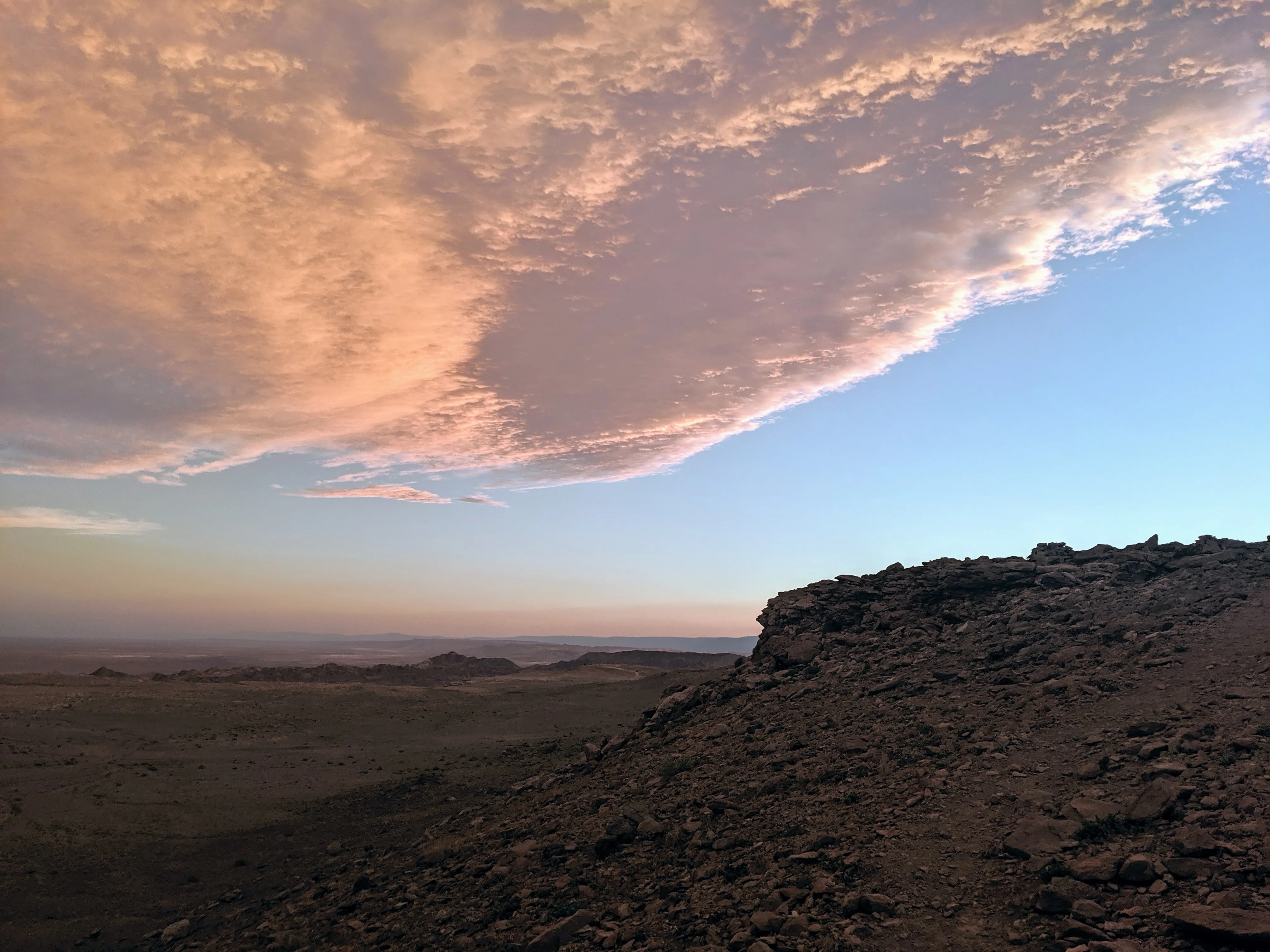
A few minutes later, the sun started to set, sending pink light onto the clouds.
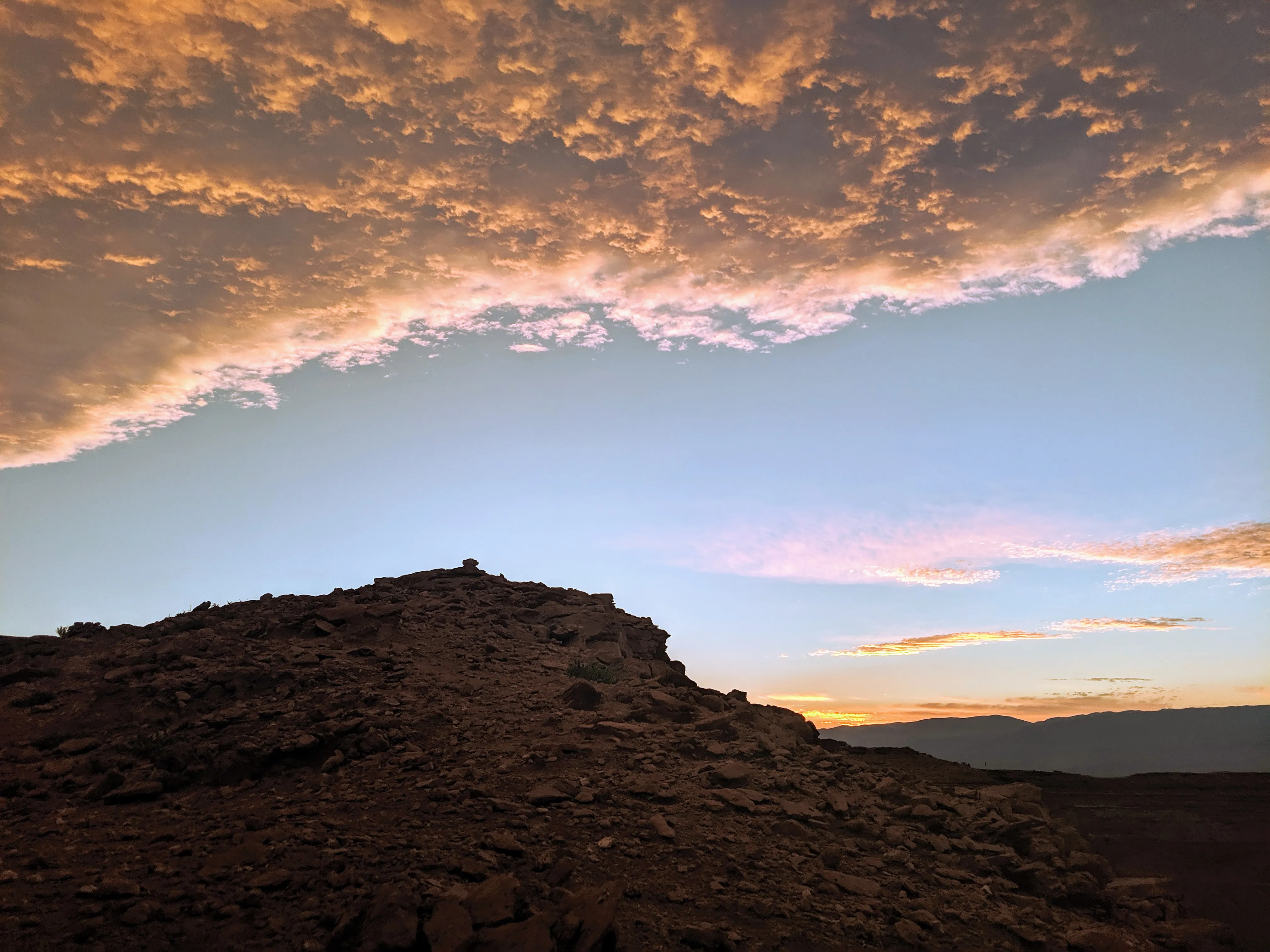
I love how the dramatic clouds mirror the shape of the rock below.
Tired from a long day in the sun, we headed back to our Airbnb to crash. The next day, we had a road trip planned. The first stop was la Valle de la Luna (the Valley of the Moon), where we made sure to arrive just as the park opened.
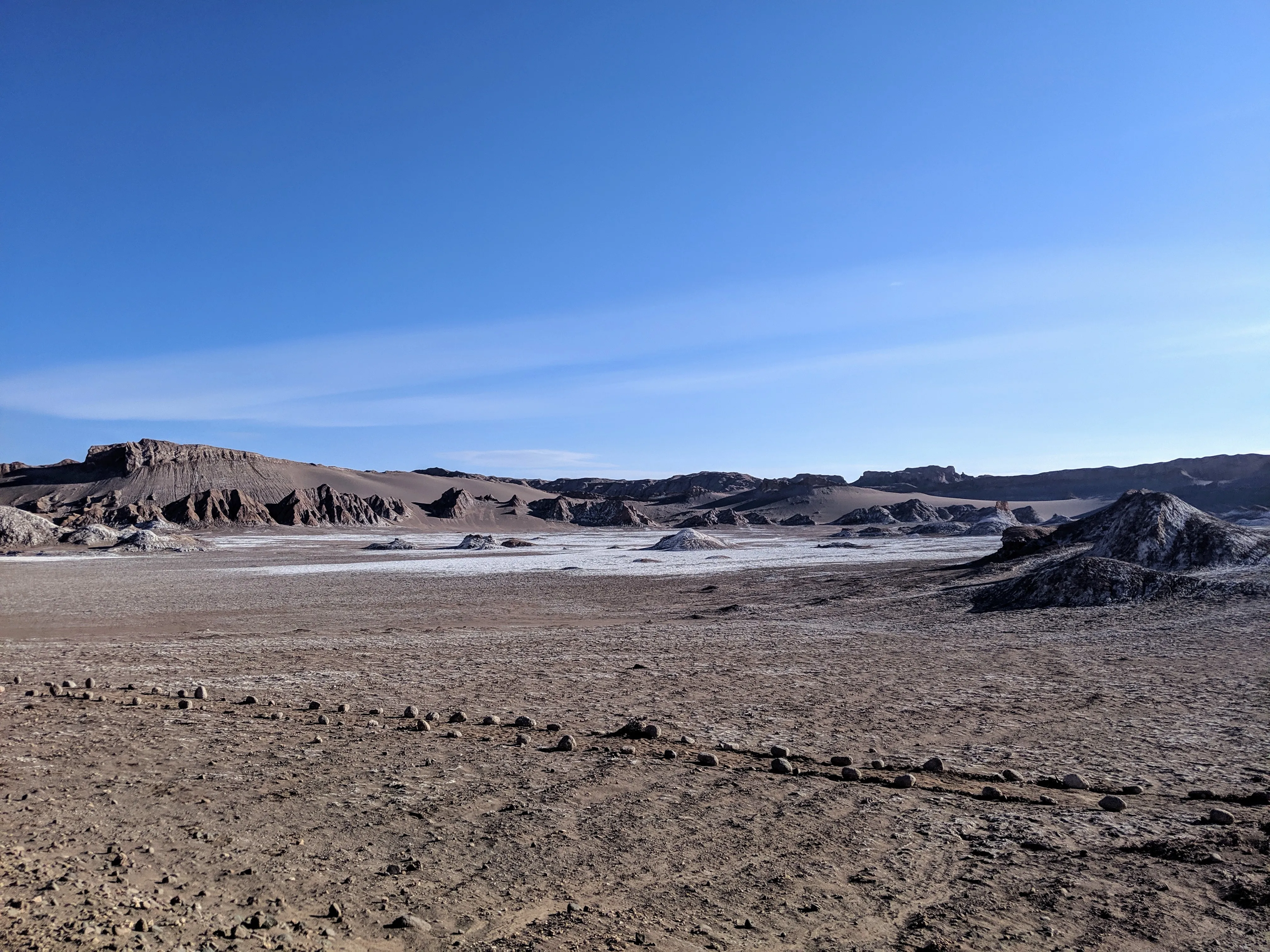
When we arrived in la Valle de la Lunathe sun was still on the horizon. Much more barren than la Valle de Marte, this valley had a thin coat of white salt across its flat surface.
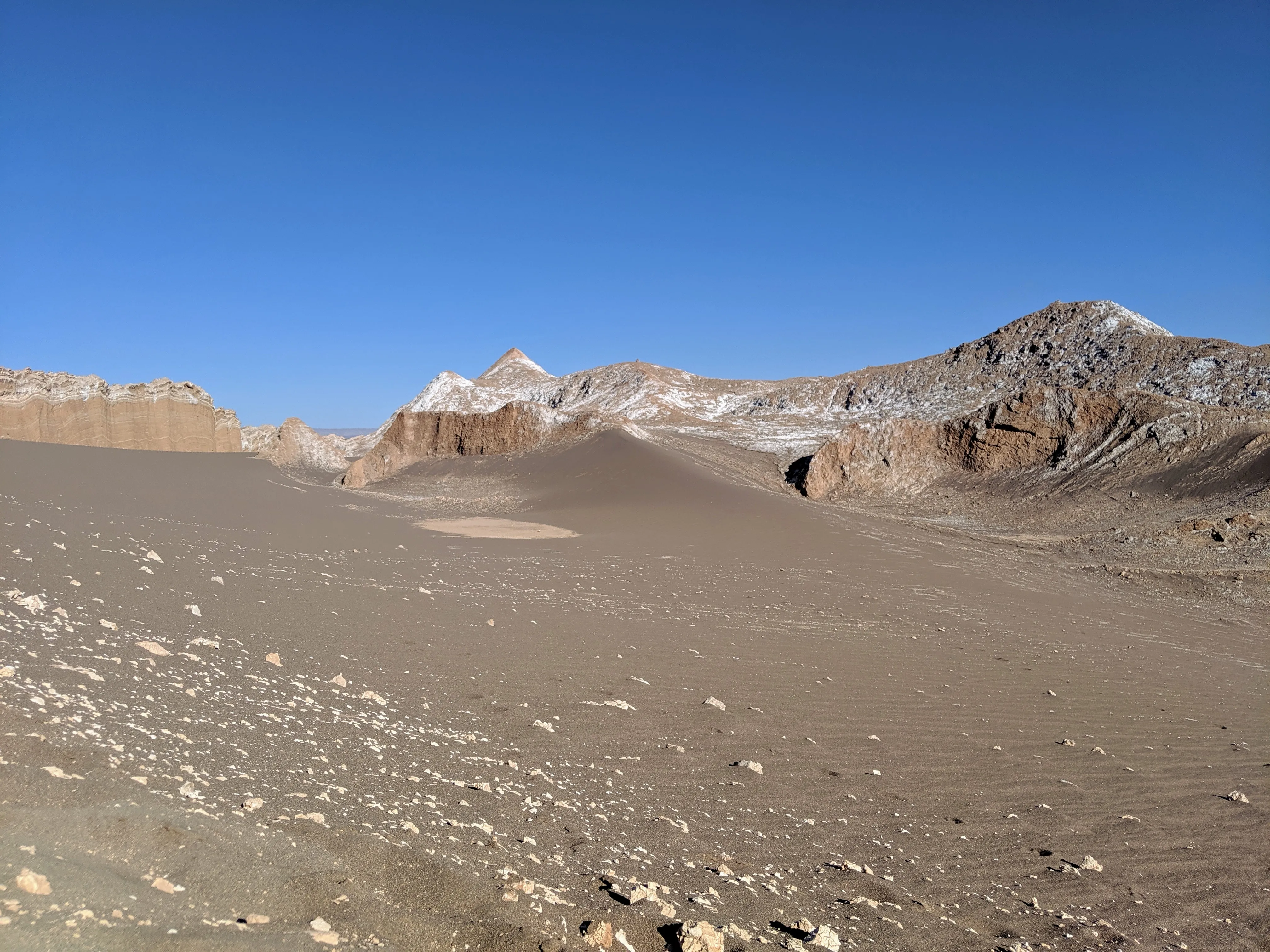
I was impressed by the scattered rocks in the sand. It almost looks like they were flung straight from a volcano, strewn across the sand.
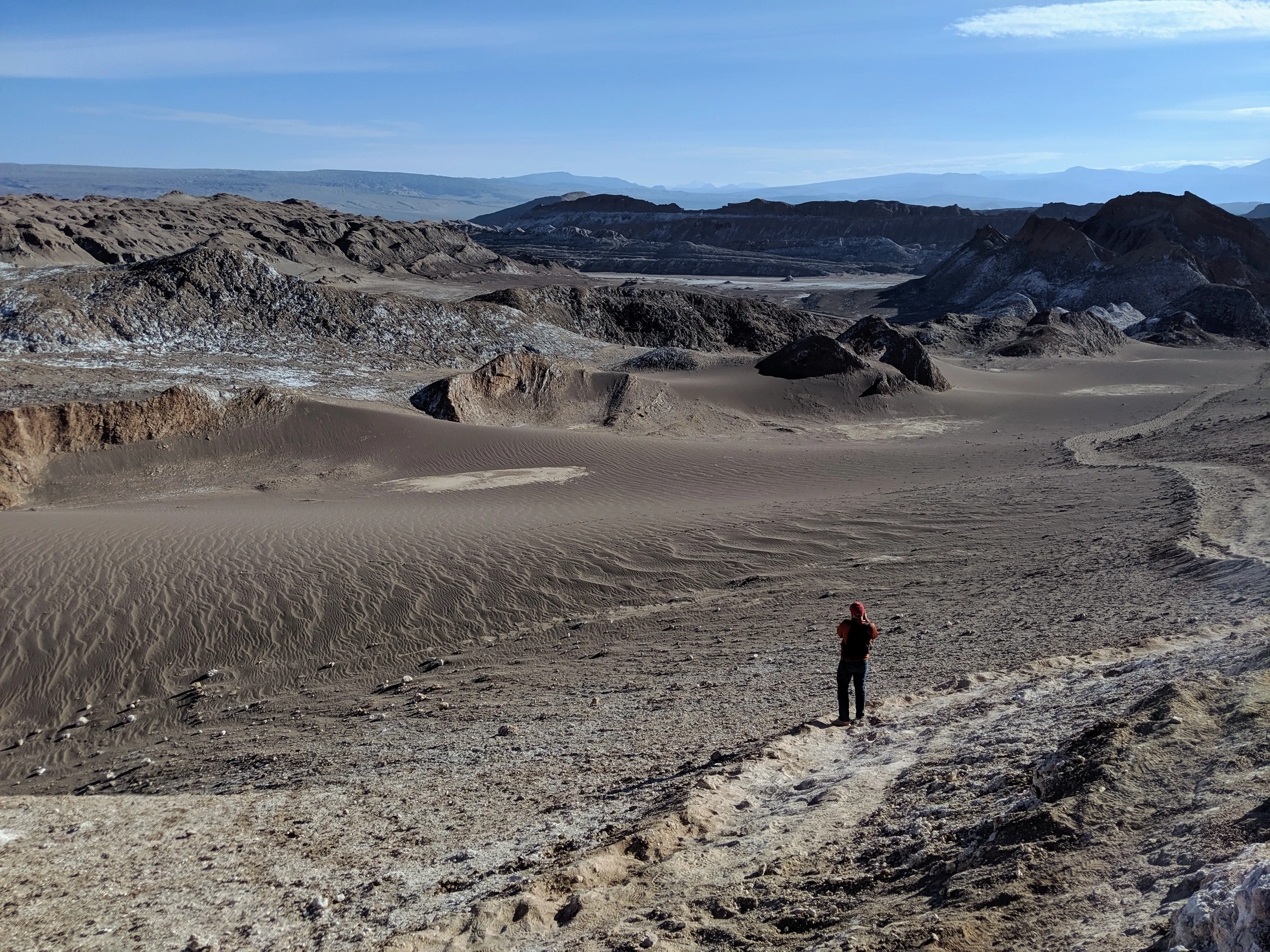
We parked our car and hiked up towards a mountain ridge. I turned around and caught Jeff photographing the empty valley.
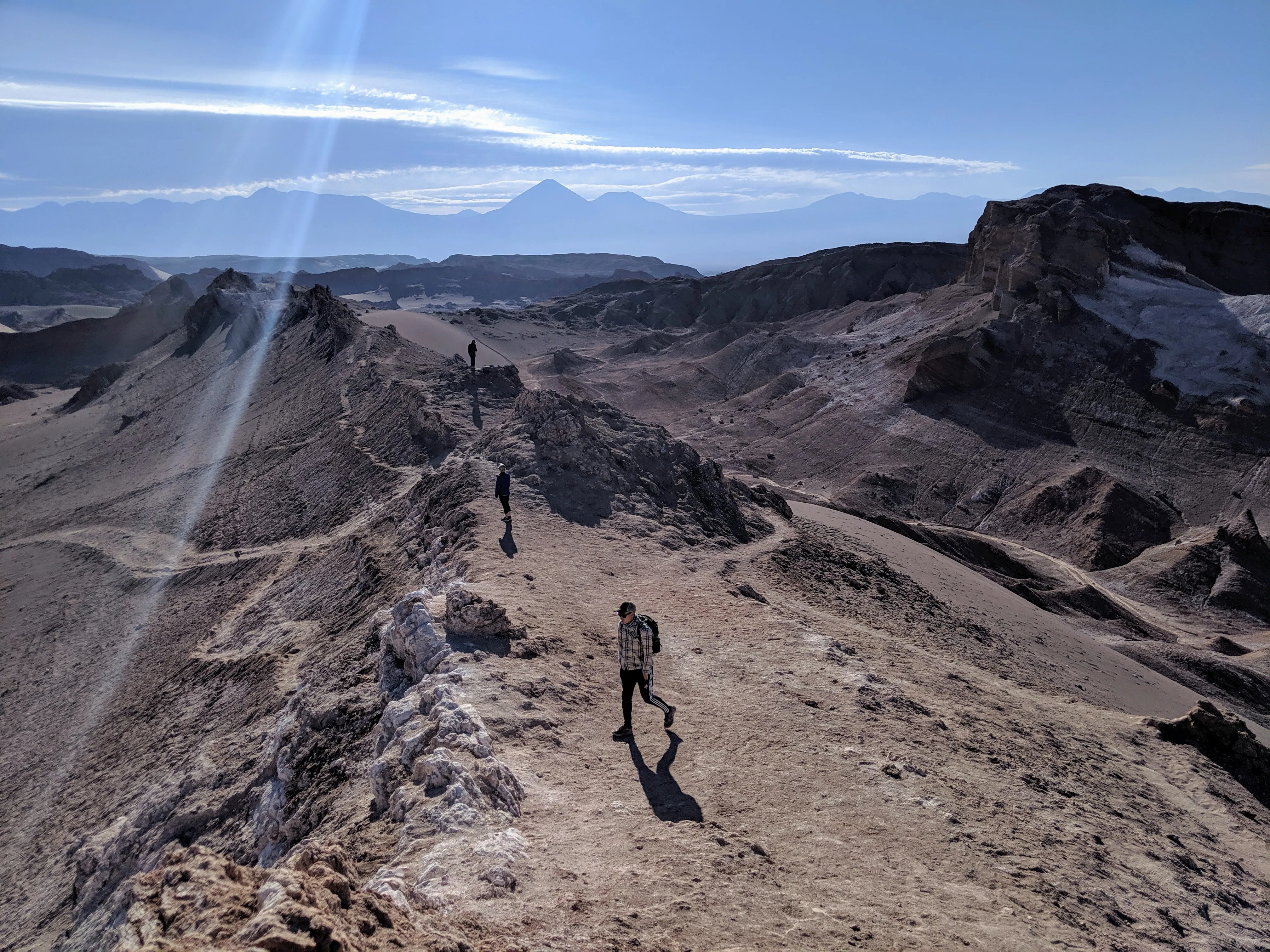
Yih-jen, Emily, and Jeff along the ridge.
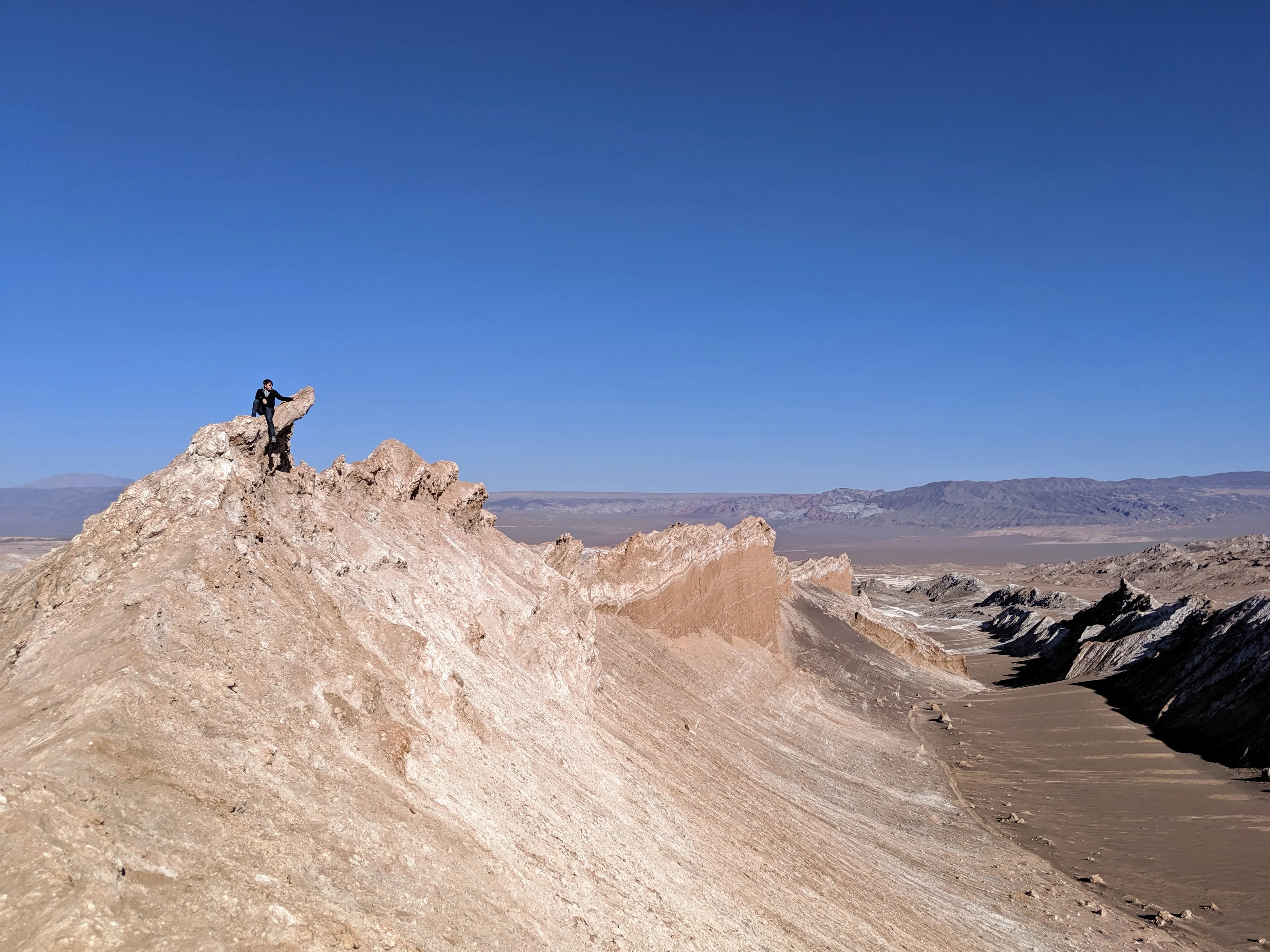
Yih-jen got this photo of me, sitting and enjoying the view.
After enjoying our time alone in this part of the valley, we returned to our car and drove further in to the park.
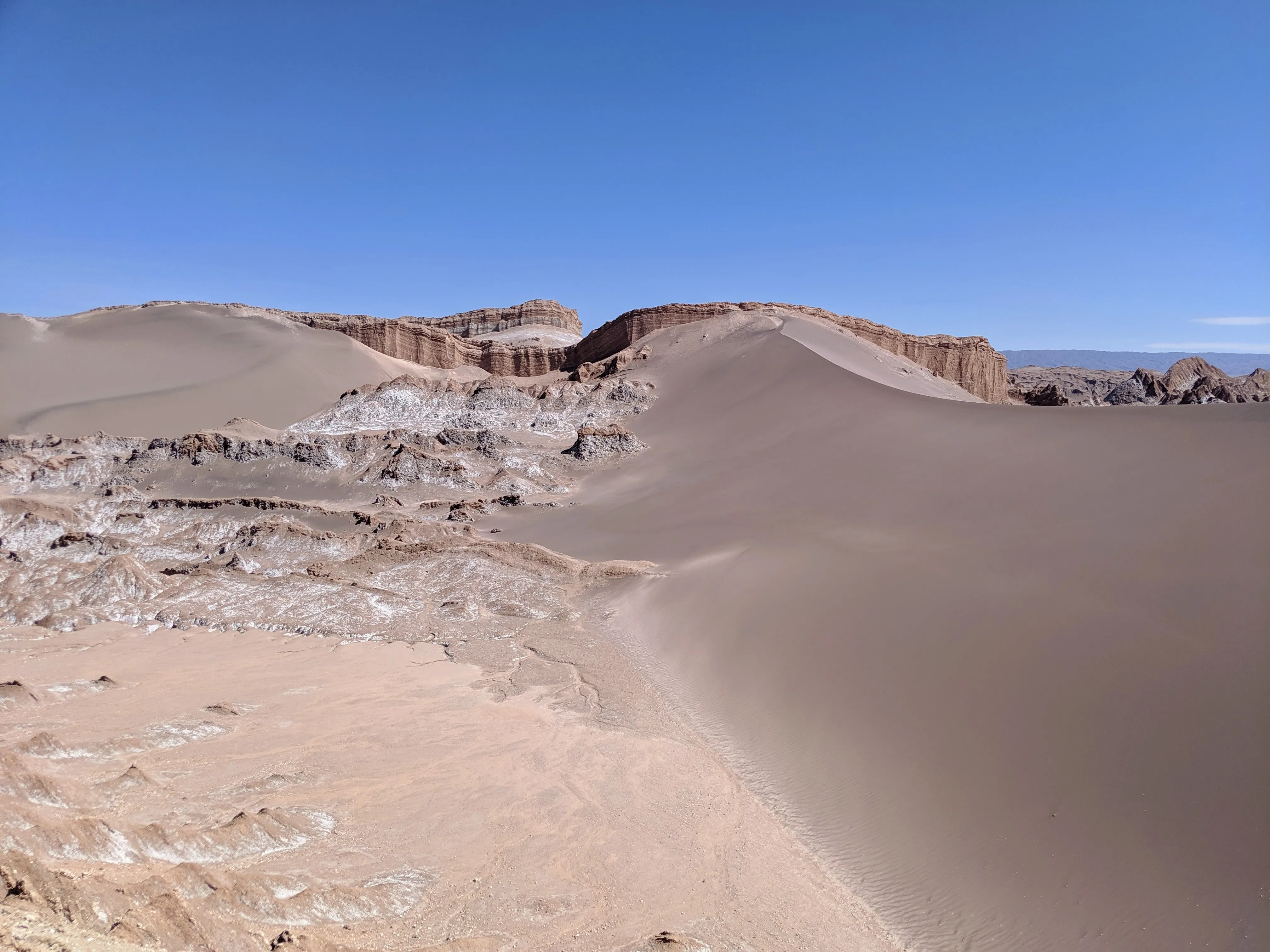
Later in the morning, we hiked up another massive dune. It almost looks like a massive snow plow pushed all the sand into one big pile.
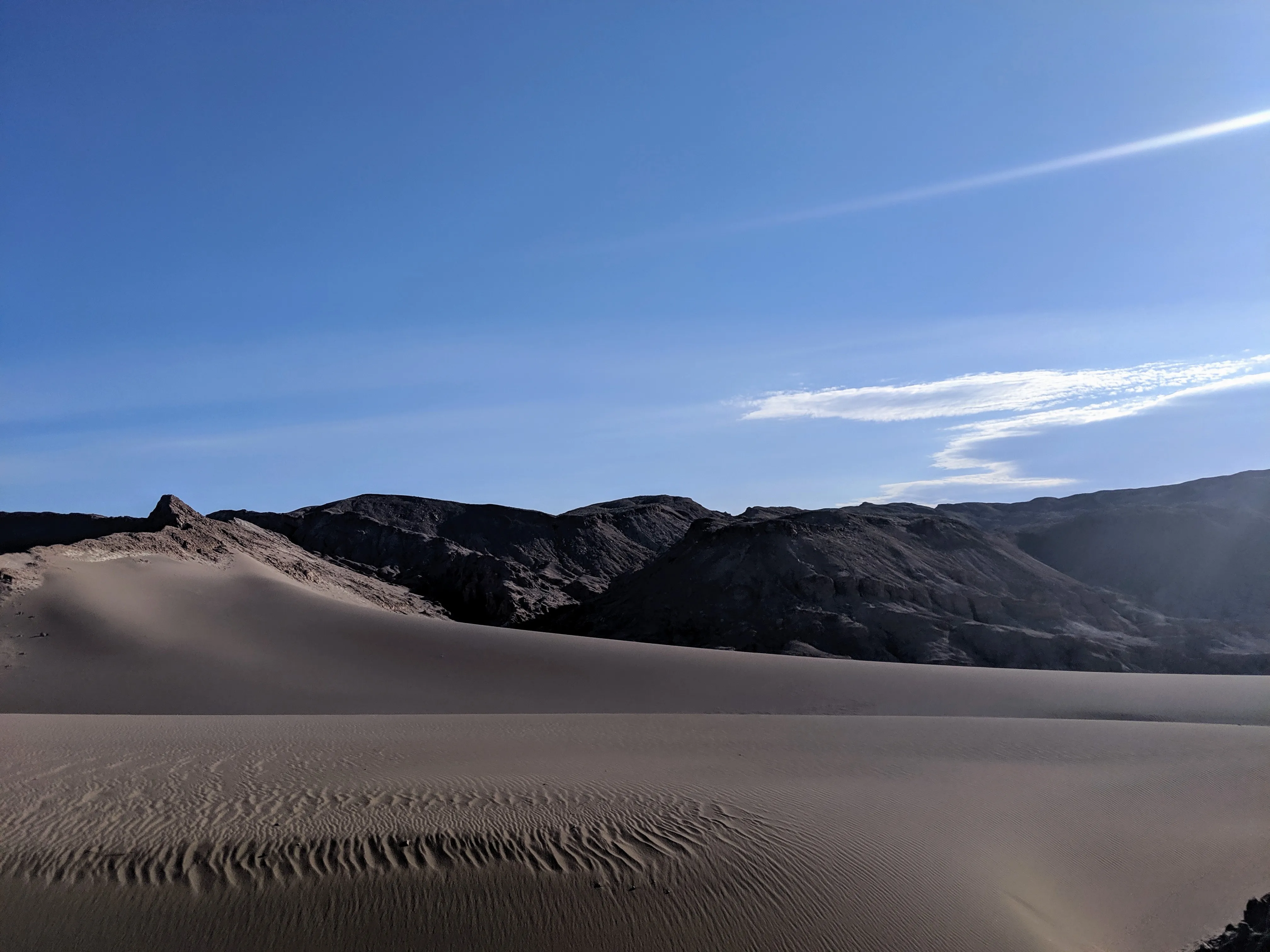
As we left the valley, I took this photo. The texture of the sand almost looks like a wrinkled bed sheet.
After leaving la Valle de la Luna, we drove south from San Pedro. We had a long drive ahead of us, two hours before our next stop. Jamming out to 90s and 00s hits, we cruised down the highway surrounded by dust, dirt, and rock.
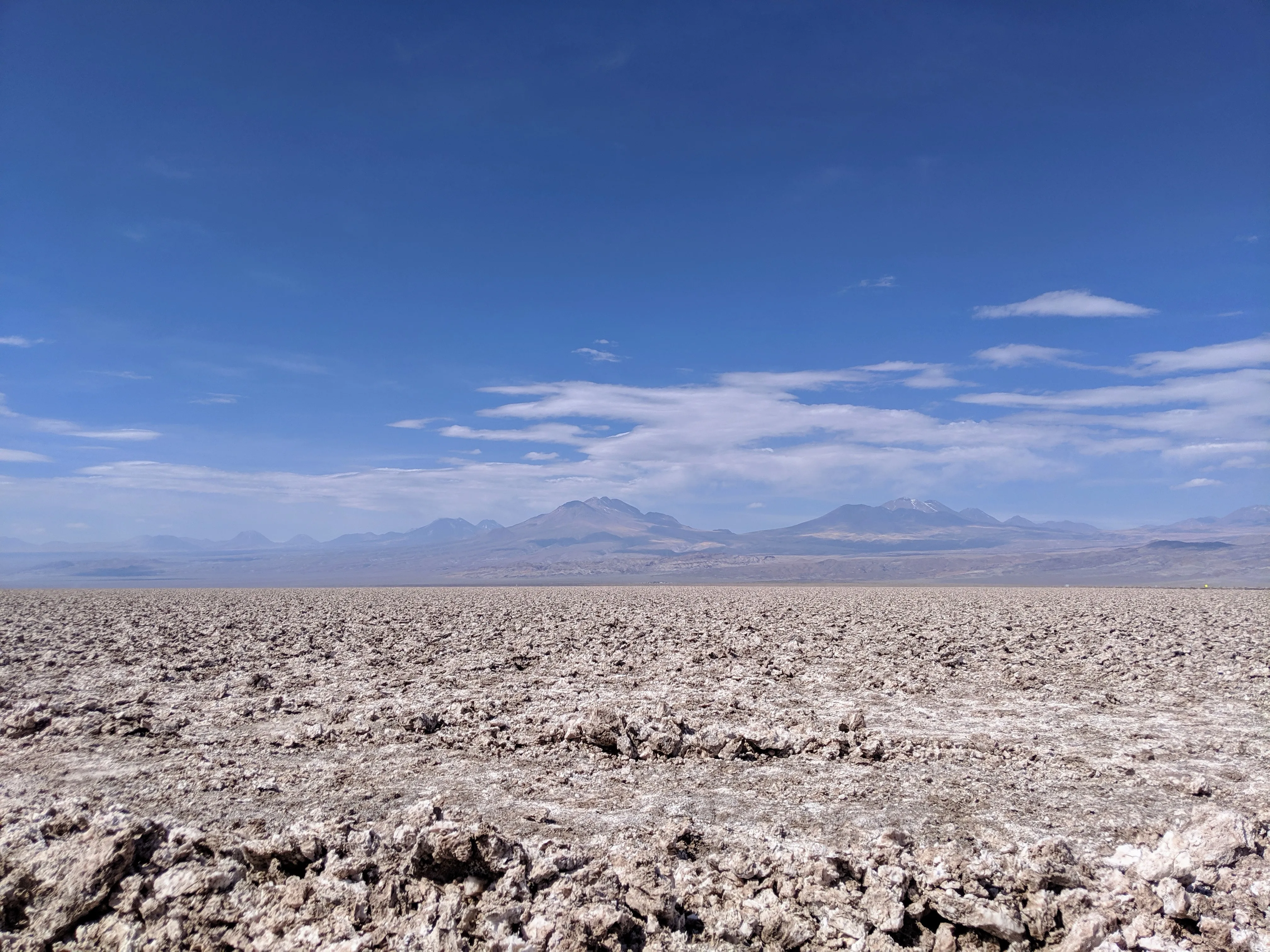
Our next stop was a bit of disappointment. We planned to see another lagoon, but the access road was blocked. We turned around and drove back through the salt flats back to the highway.
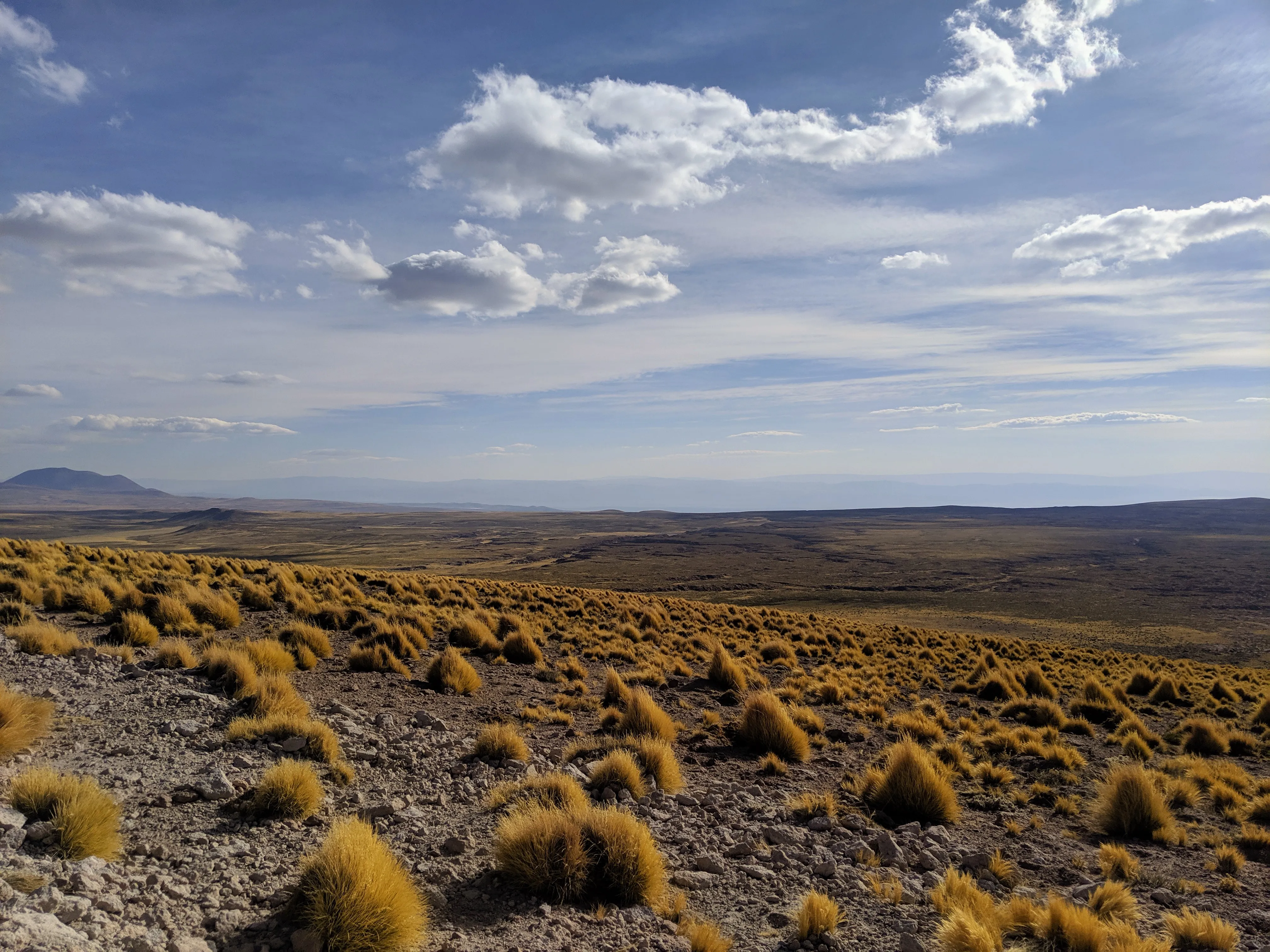
Over the next hour, we started to ascend into the surrounding mountains. Slowly, the sand and salt disappeared, replaced by flat rocky terrain dotted with orange bushes.
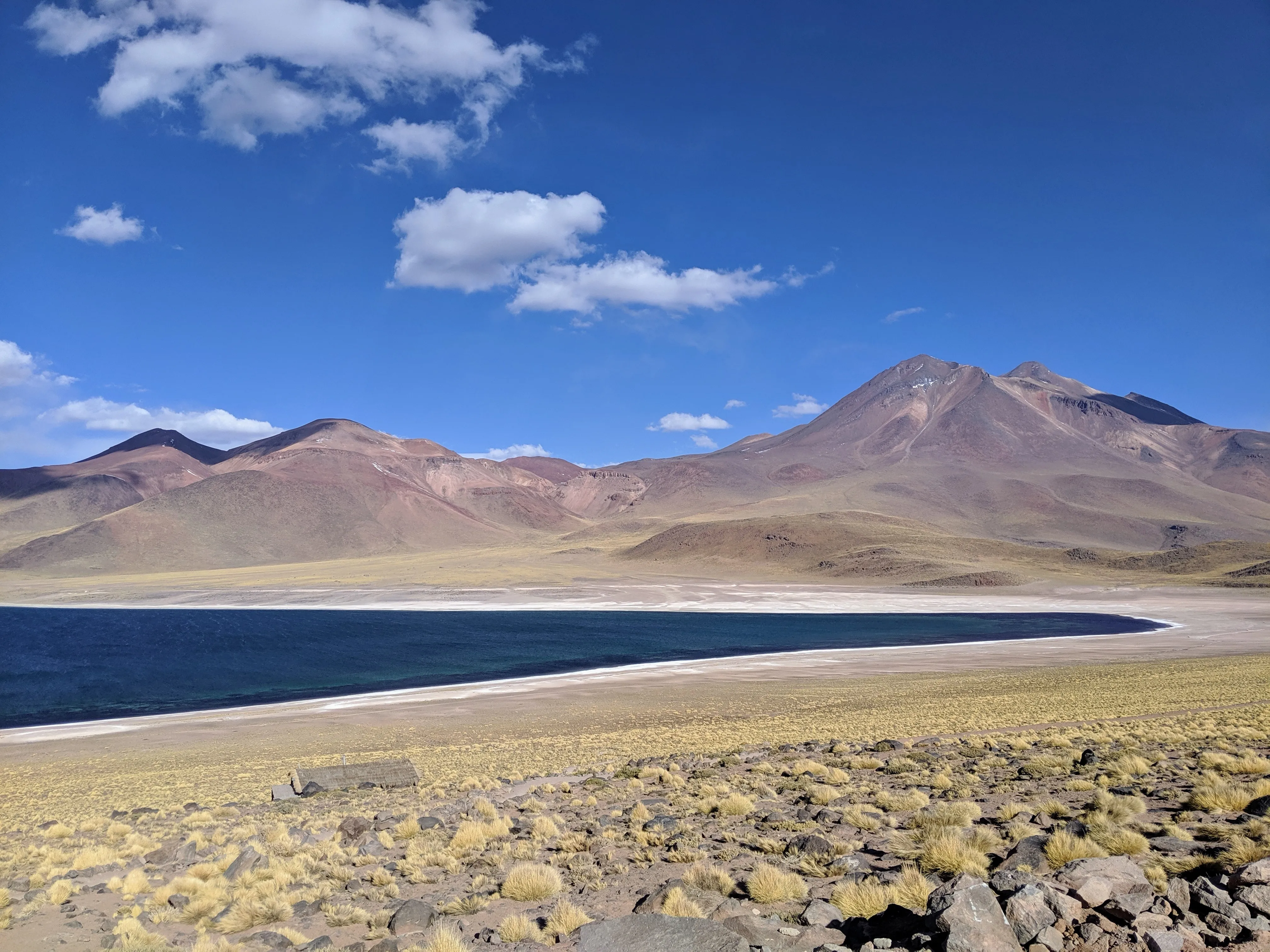
After crossing 13,500', we reached Miñiques and Miscanti, two lakes in the top of an altiplano southeast of San Pedro. As we got out of the car to walk around, a cold wind knocked us around violently. At the high elevation, I struggled to breath regularly, even just walking around.
Miñiques and Miscanti lakes. Not pictured is the wild fox we saw scouting for food.
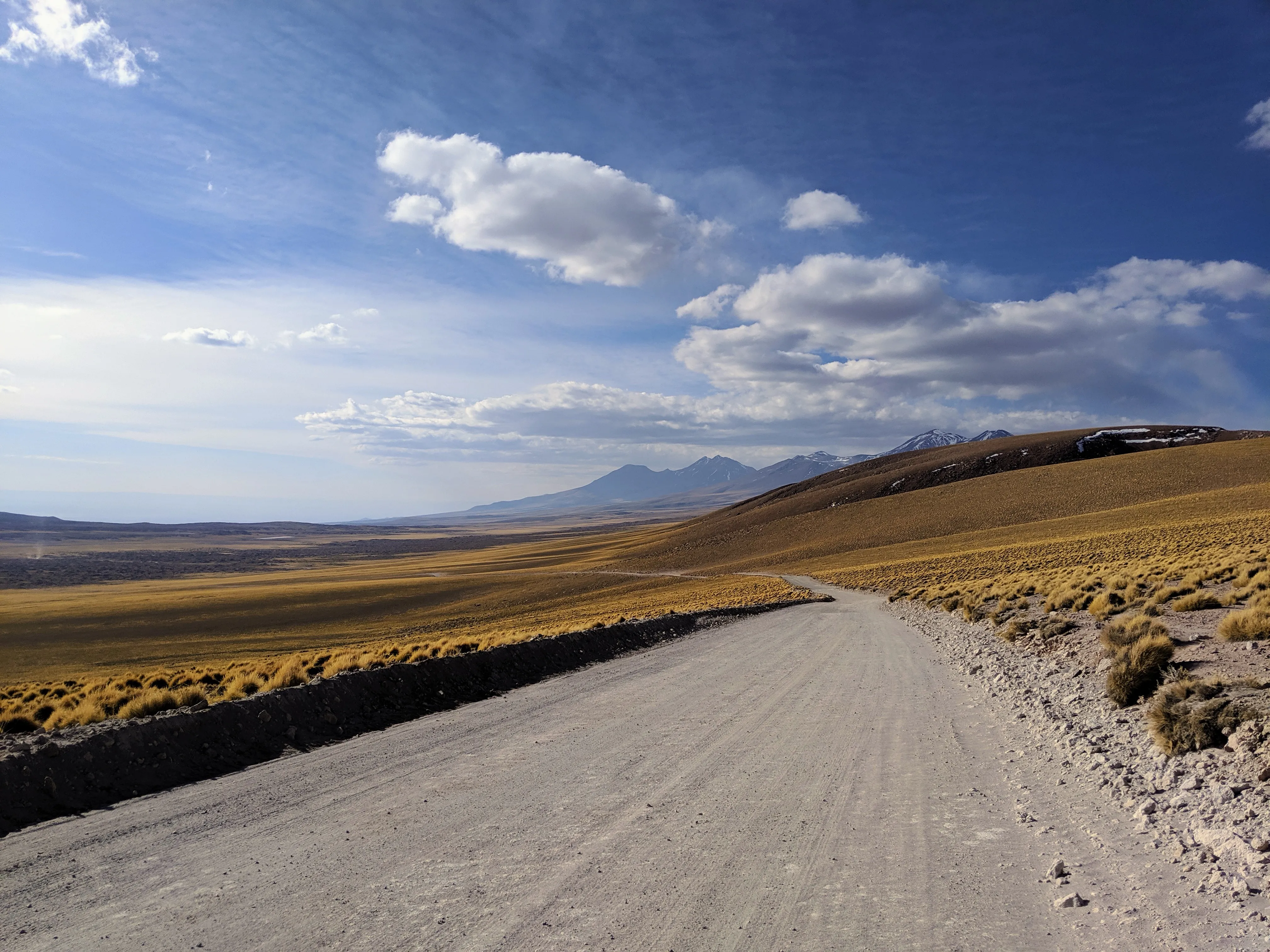
On the way down, we stopped the car and got out to admire our surroundings. I loved how incredibly still it was.
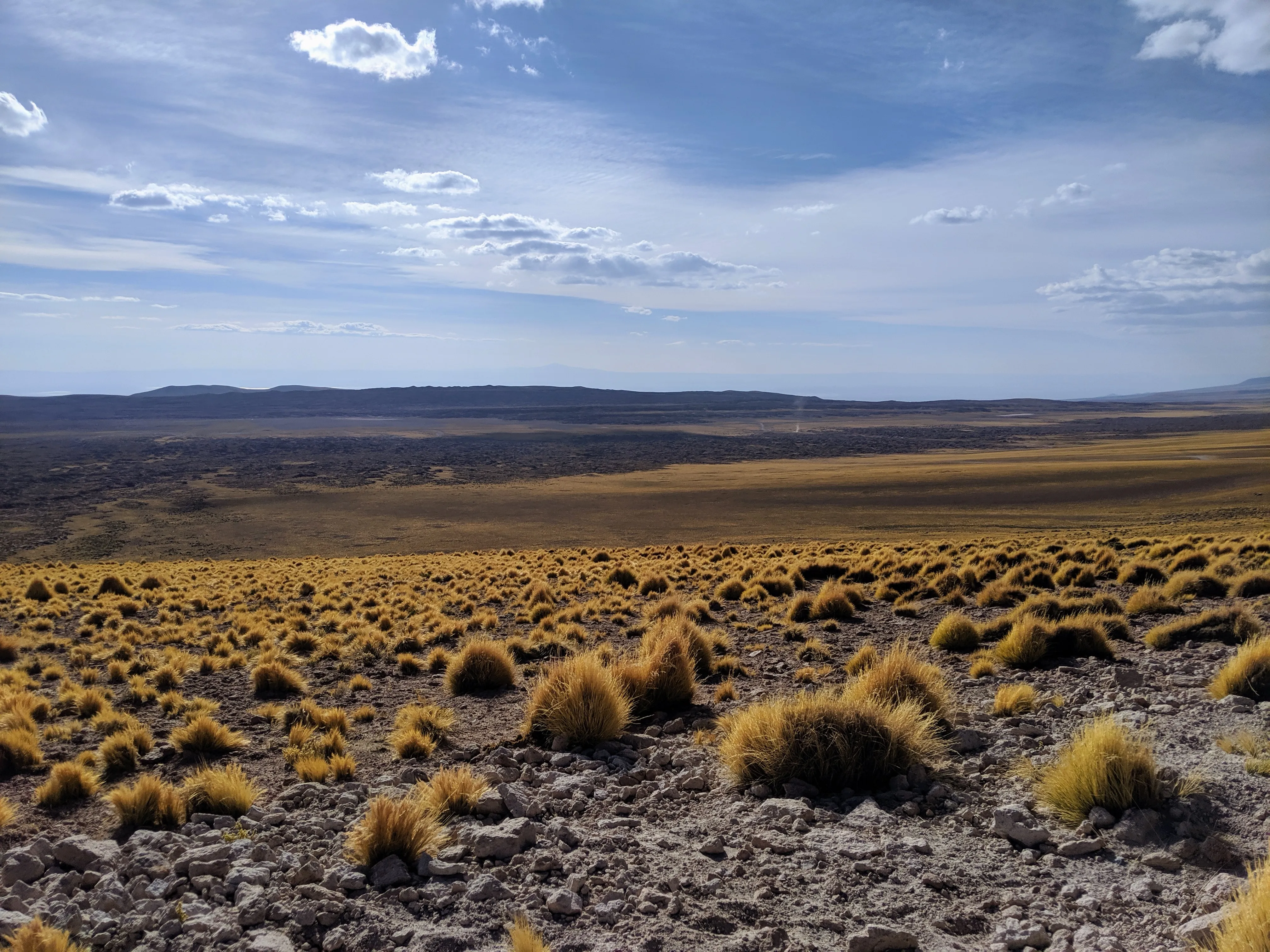
I love how this photo captures the pointillism of these shrubs. In the distance, they meld together and form a single uniform texture.
As the sun began to set, we sped back to San Pedro. After watching sunset over la Valle de Marte the previous night, we wanted to do the same over la Valle de la Luna. We drove to an outlook just as the sun started to creep below the horizon.
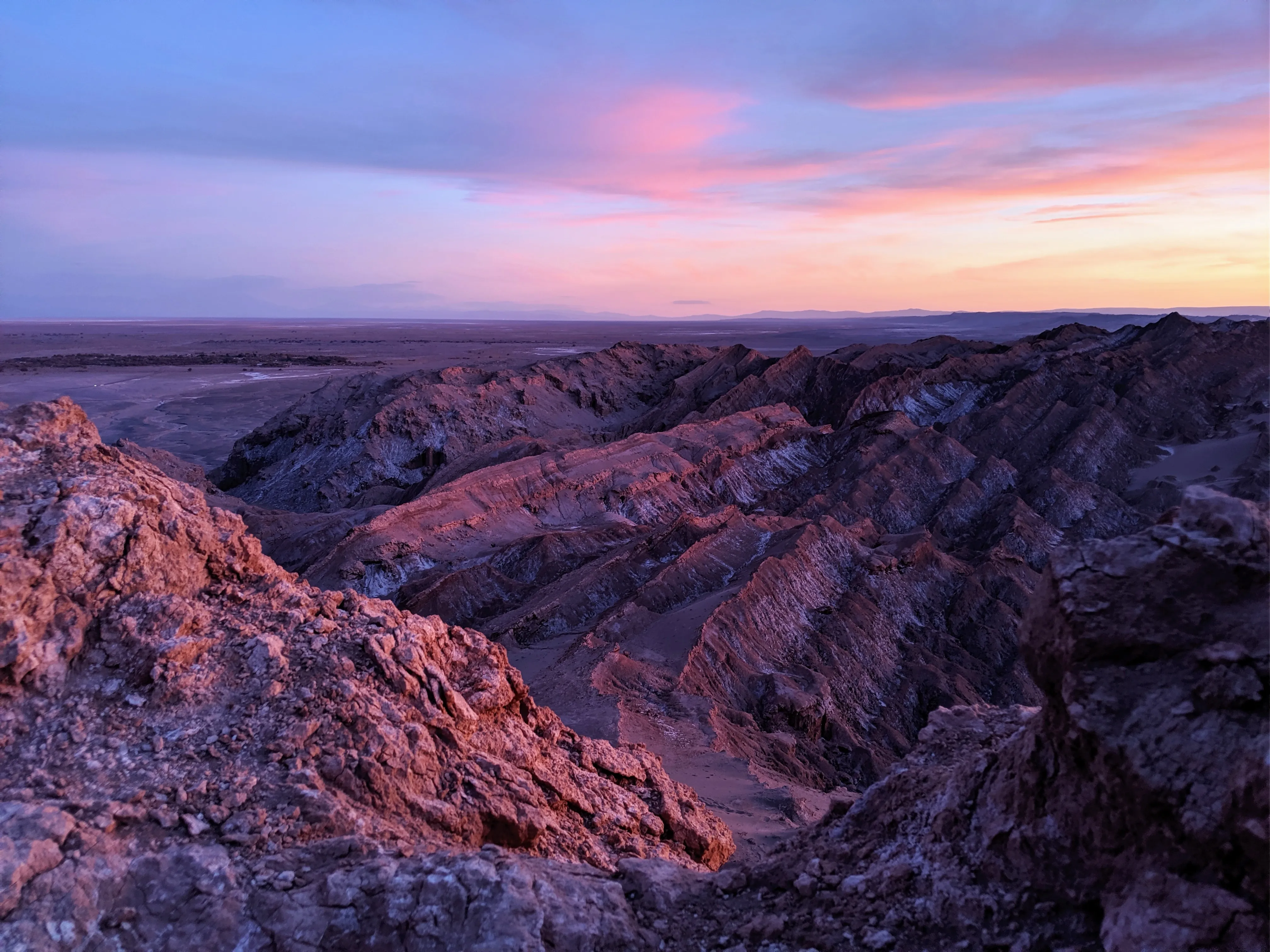
The purple, pink, orange, and blue of the photo captures an almost surreal moment.
At a certain hour, the land disappears and only the sky and silhouettes are visible.
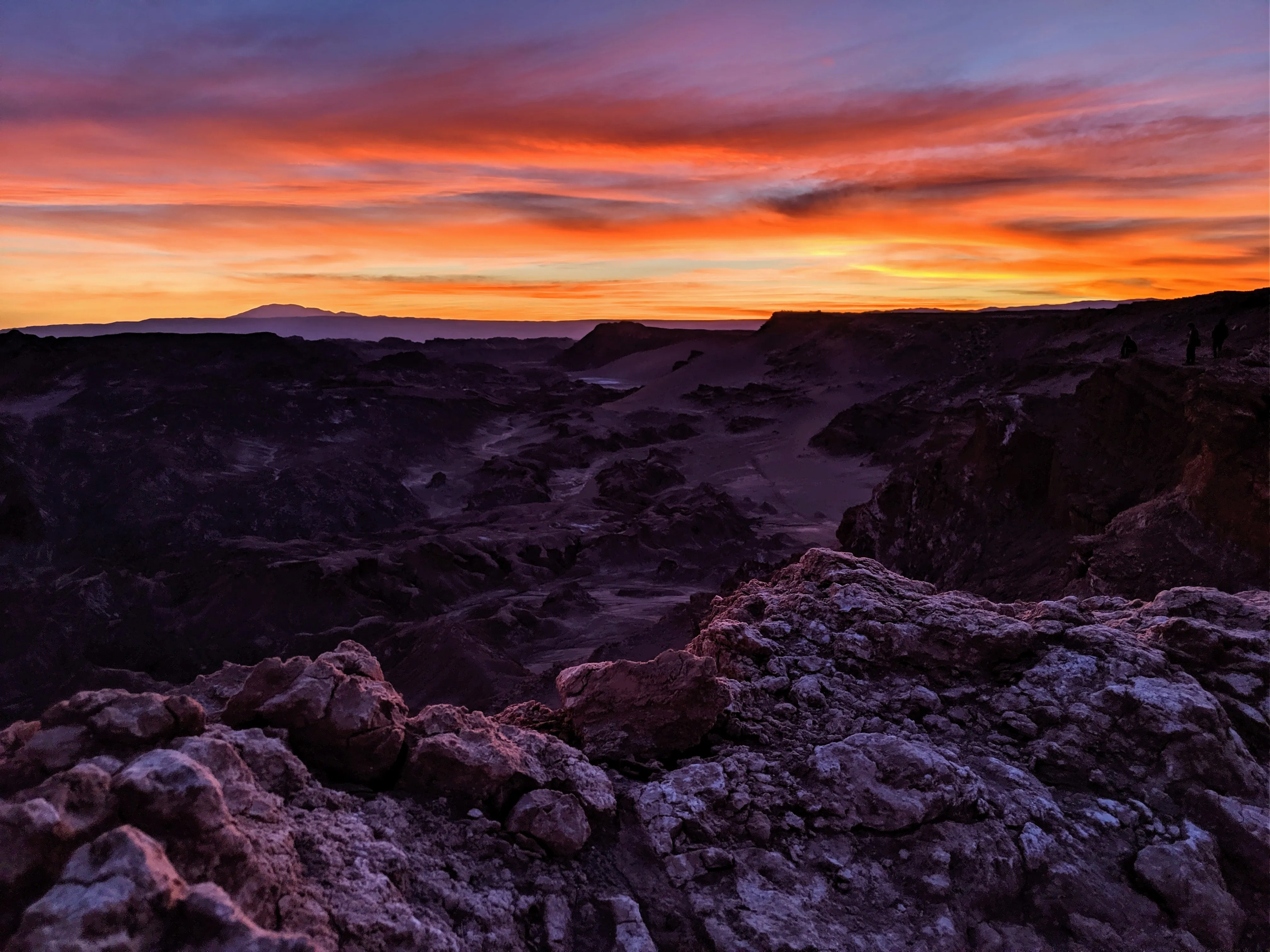
Fiddling with camera settings, I was able to capture both the texture of the rock and the sunset.
On our last day in Valparaíso, we drove up into another set of mountains, this time north of San Pedro. Our agenda was simple: geysers, hot springs, and flamingos. We saw all three, although my photos of the latter are horrible.
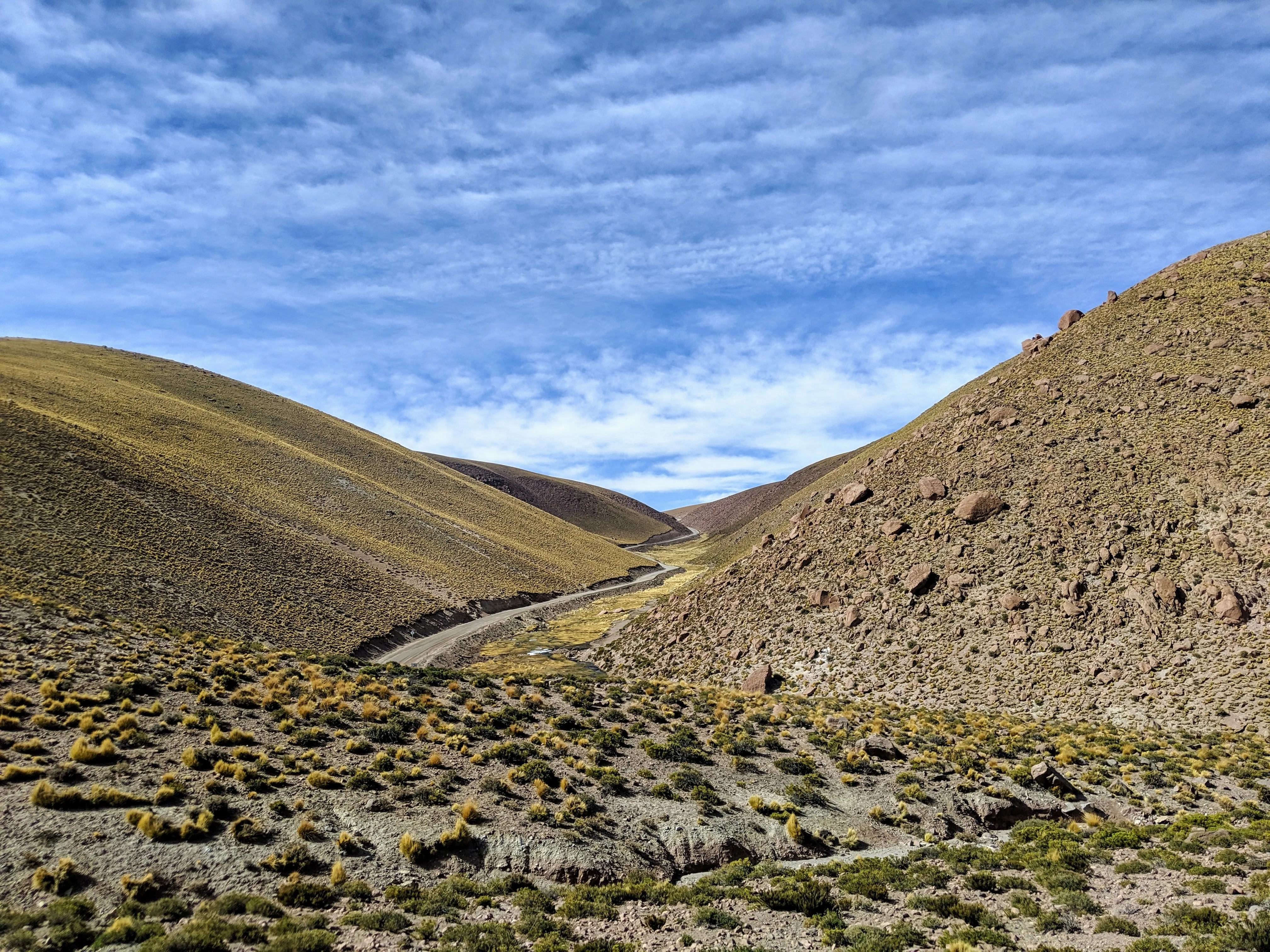
Without fail, as we ascended into the mountains, the sand disappeared and the shrubs were back!
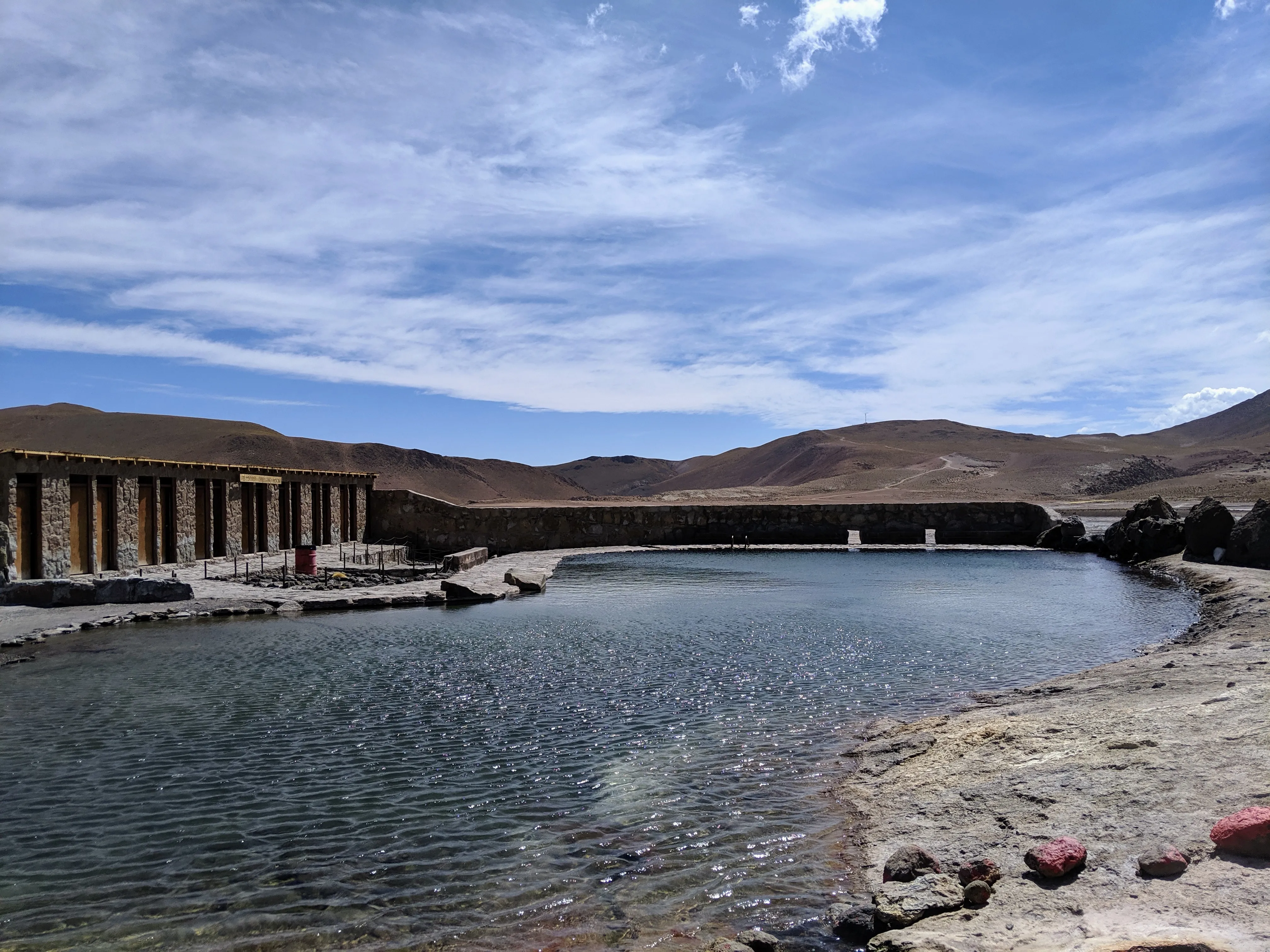
We took a dip in this hot spring. We got it to ourselves!
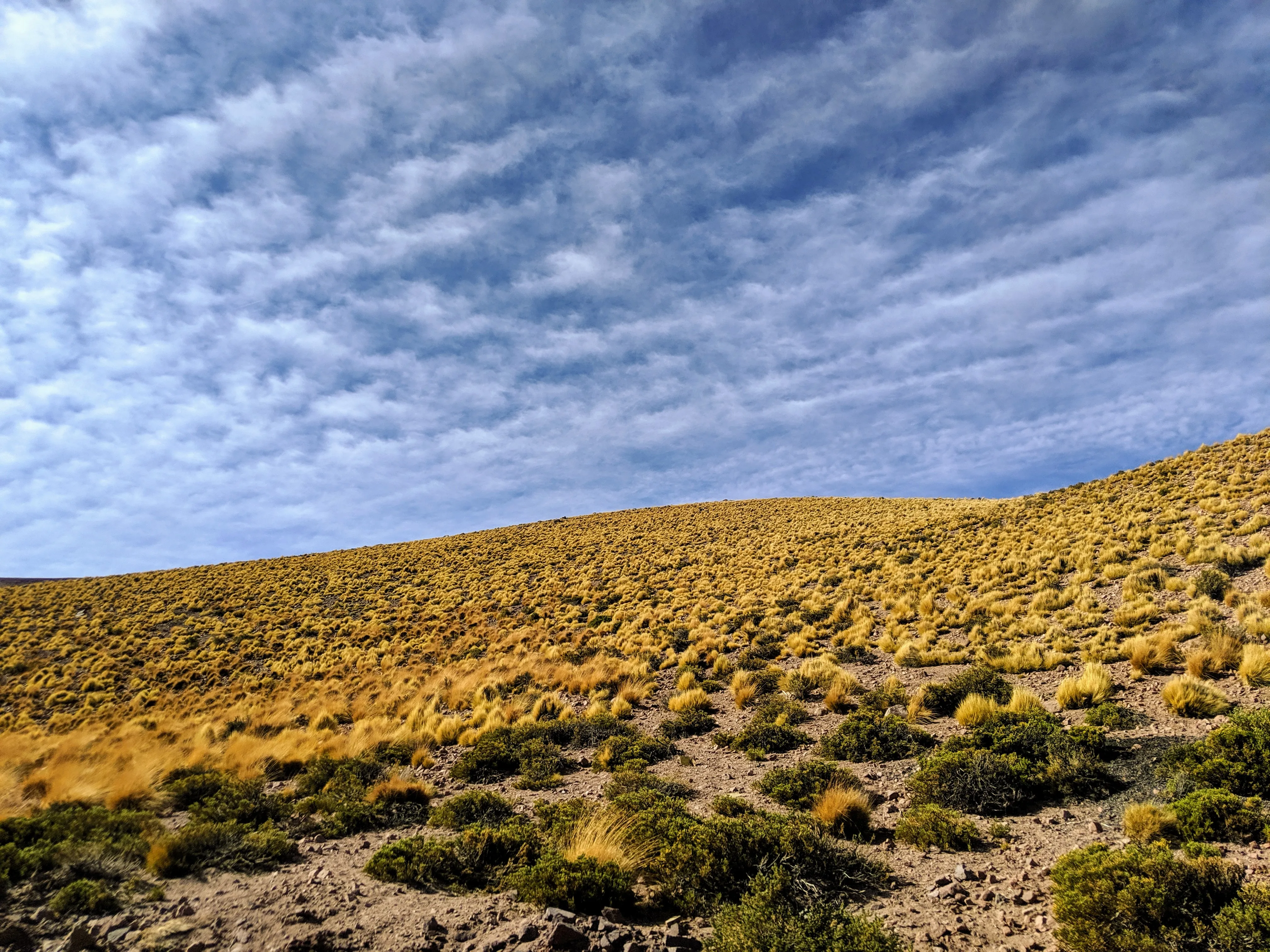
I took this photo on our way back down the mountain. It sort of reminds me of the Windows XP wallpaper. Anyone?
Santiago
Our last two days in the country were spent in Santiago. We spent most of our time hopping between museums, cafés, and restaurants. Not a bad way to end a trip! Our first stop was to the Museum of Memory and Human Rights, which commemorates the victims of human rights violations committed by the nationalist military dictatorship between 1973 and 1990. The museum, while challenging, was extremely educational and well designed. I highly recommend the audio guide for non-Spanish speakers.
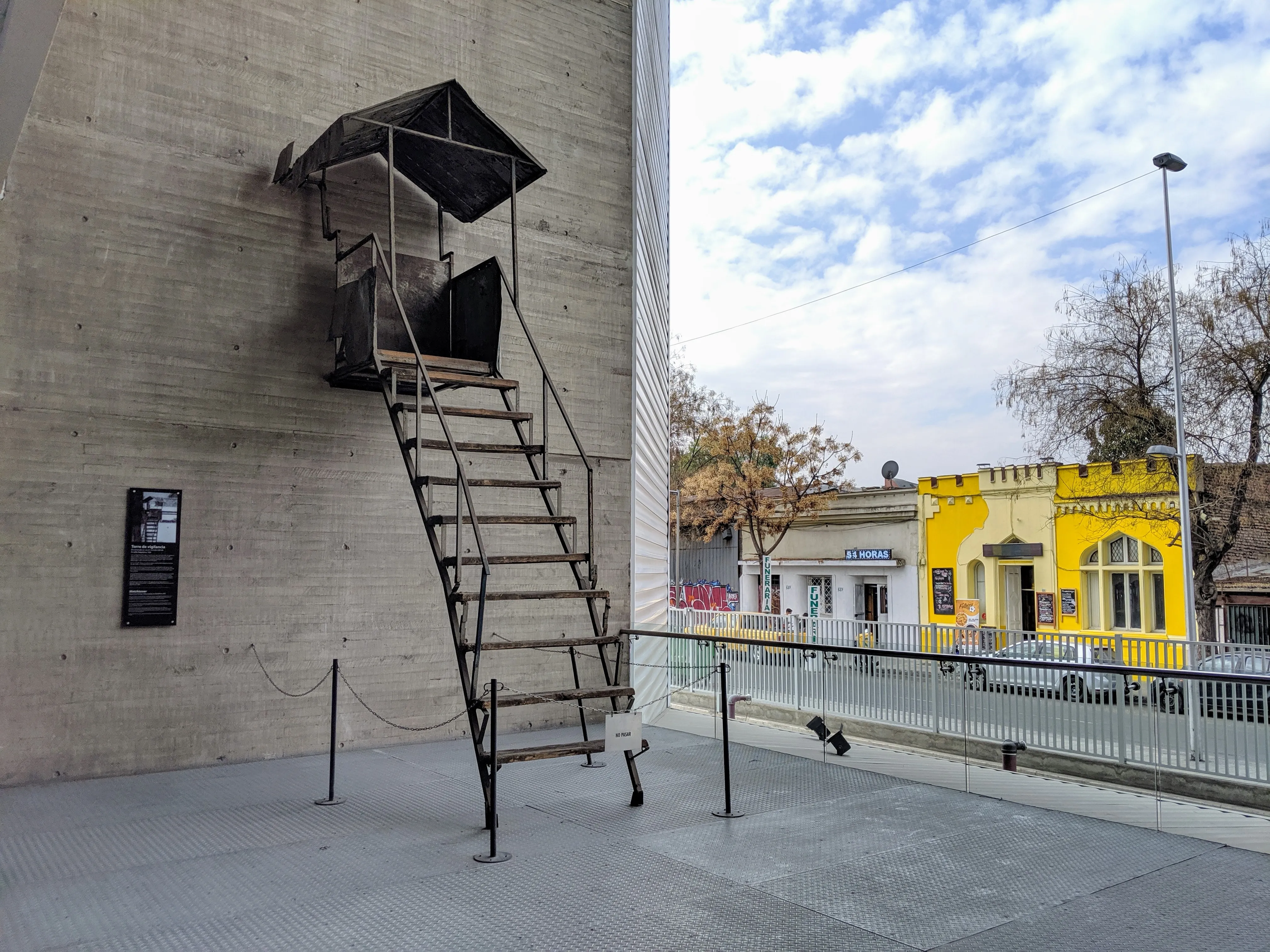
This watch tower was setup in a neighborhood of Santiago by the Pinochet government, and transported to the museum as an artifact of the surveillance state.
The museum was beautifully curated and designed. This wall of faces of the disappeared Chileans was a centerpiece of the exhibit.
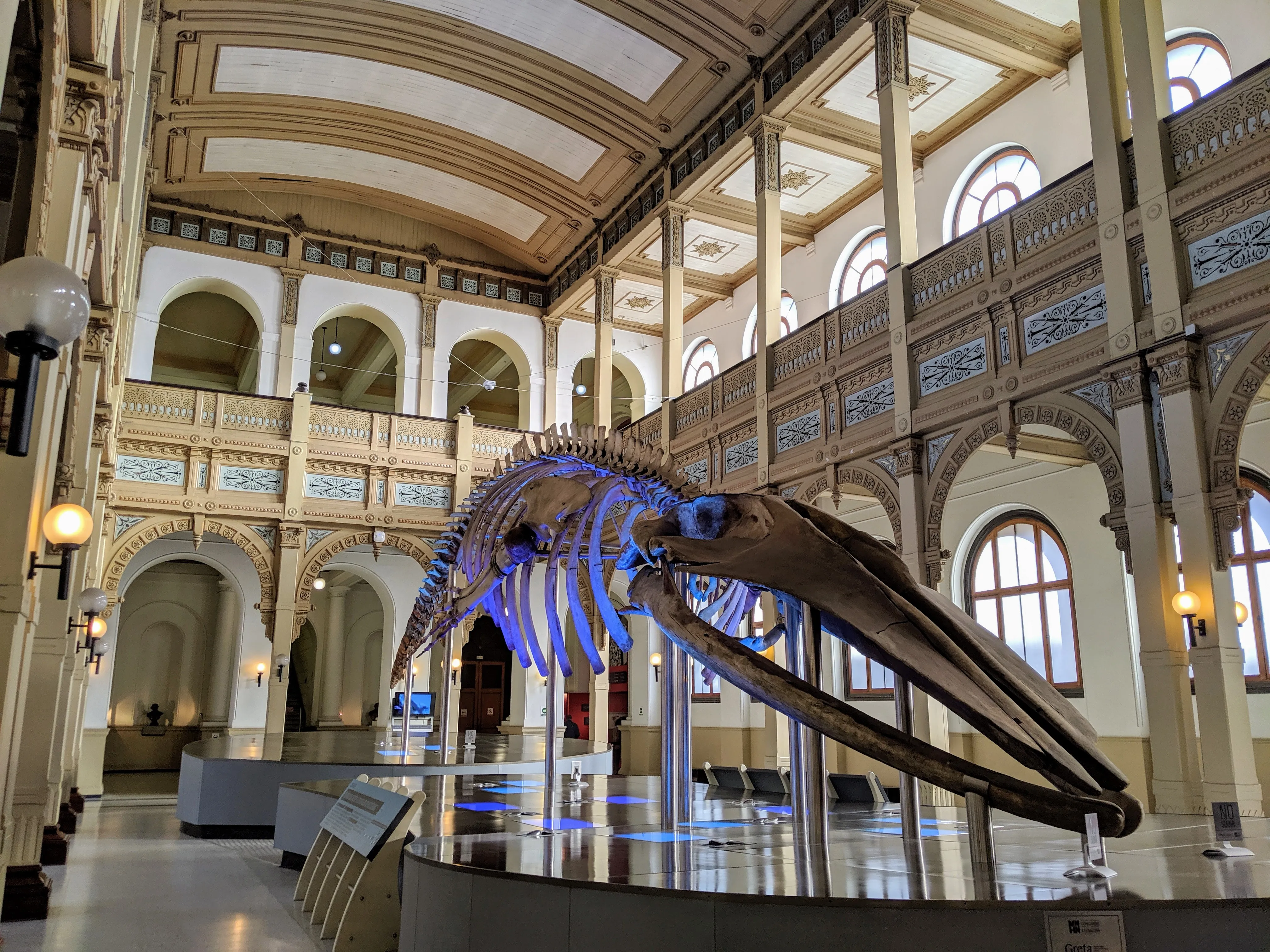
We visited the natural history museum almost exclusively to check out this massive, massive dinosaur skeleton.
El Museo de Arte Contemporáneo had several provocative exhibits.
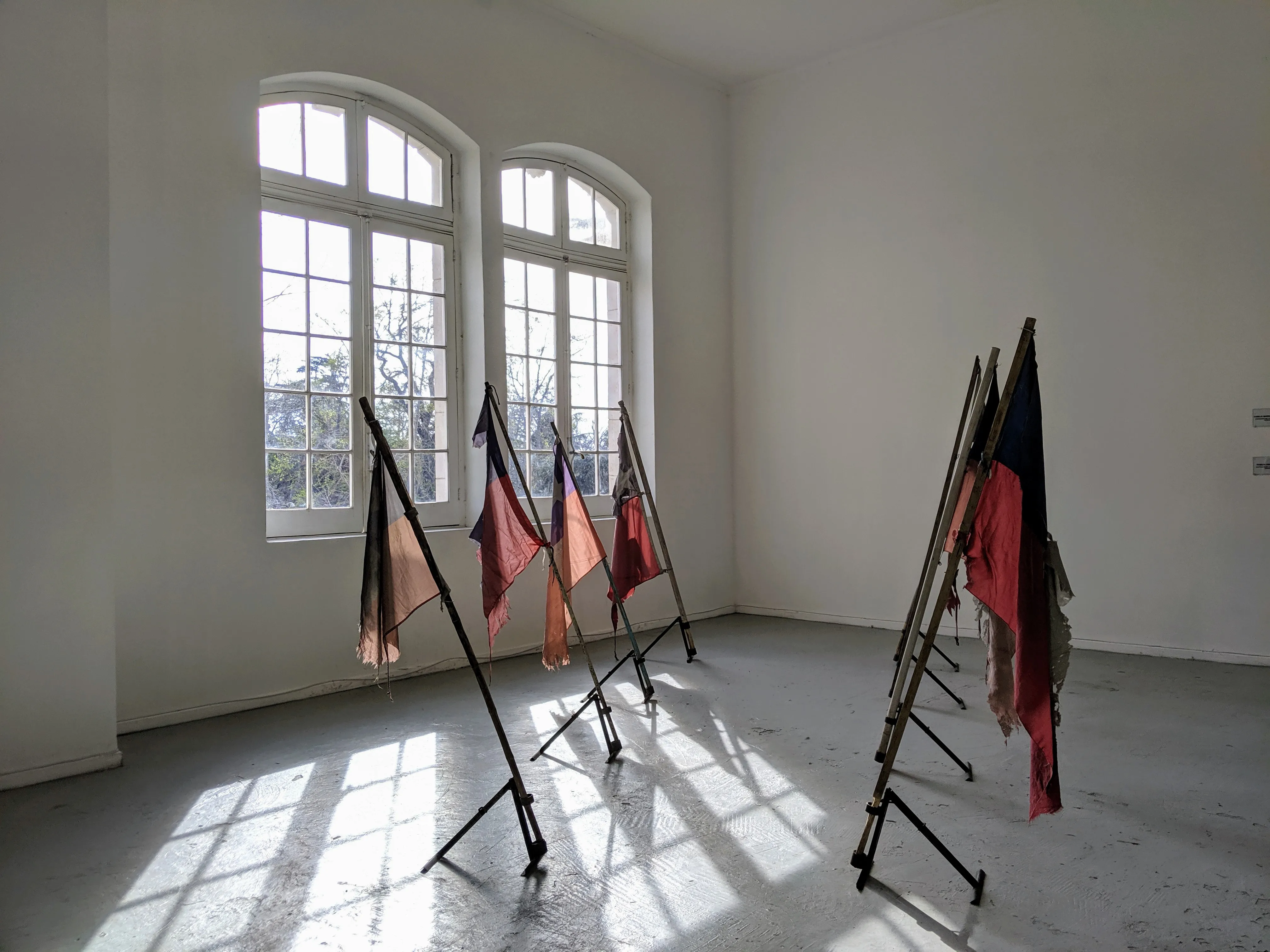
I love the how the light plays with the flags in this piece.
Aline Maire's paper light boxes are masterfully crafted.
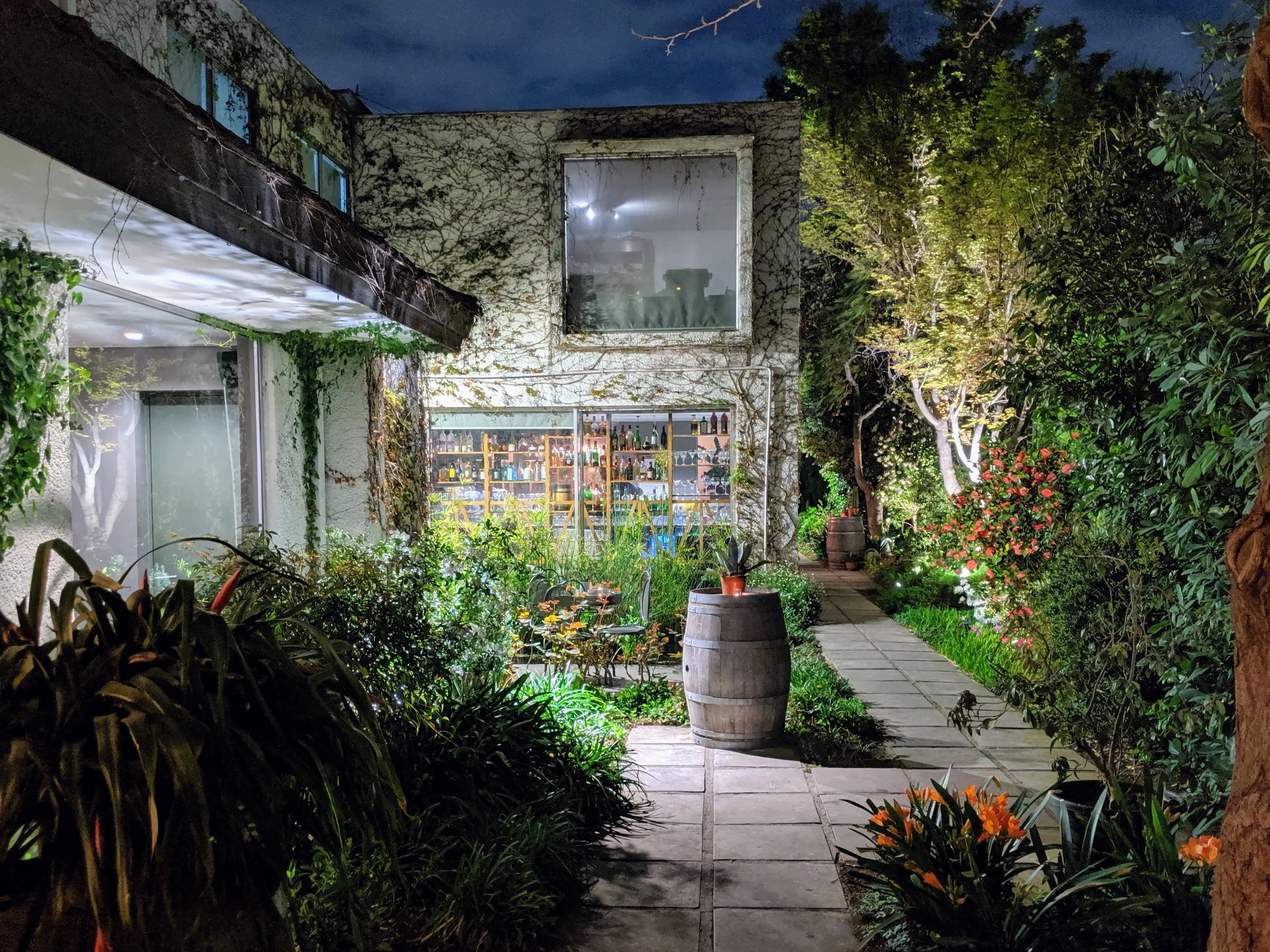
Dinner at Ambrosia, while out of the way, was absolutely worth the trip.
